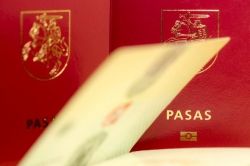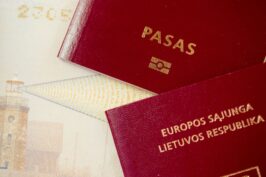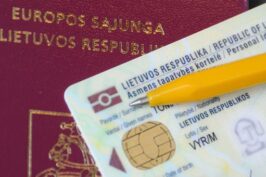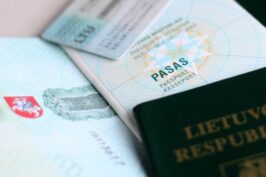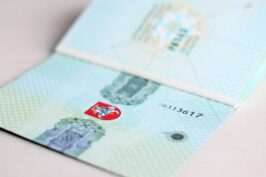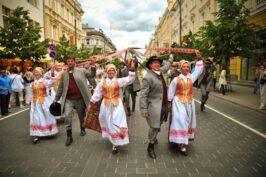Author: zoomilar

What is Lorem Ipsum?
Lorem Ipsum is simply dummy text of the printing and typesetting industry. Lorem Ipsum has been the industry’s standard dummy text ever since the 1500s, when an unknown printer took a galley of type and scrambled it to make a type specimen book. It has survived not only five centuries, but also the leap into electronic typesetting, remaining essentially unchanged. It was popularised in the 1960s with the release of Letraset sheets containing Lorem Ipsum passages, and more recently with desktop publishing software like Aldus PageMaker including versions of Lorem Ipsum.
Lorem Ipsum is simply dummy text of the printing and typesetting industry. Lorem Ipsum has been the industry’s standard dummy text ever since the 1500s, when an unknown printer took a galley of type and scrambled it to make a type specimen book. It has survived not only five centuries, but also the leap into electronic typesetting, remaining essentially unchanged. It was popularised in the 1960s with the release of Letraset sheets containing Lorem Ipsum passages, and more recently with desktop publishing software like Aldus PageMaker including versions of Lorem Ipsum.
Why do we use it?
It is a long established fact that a reader will be distracted by the readable content of a page when looking at its layout. The point of using Lorem Ipsum is that it has a more-or-less normal distribution of letters, as opposed to using ‘Content here, content here’, making it look like readable English. Many desktop publishing packages and web page editors now use Lorem Ipsum as their default model text, and a search for ‘lorem ipsum’ will uncover many web sites still in their infancy. Various versions have evolved over the years, sometimes by accident, sometimes on purpose (injected humour and the like).
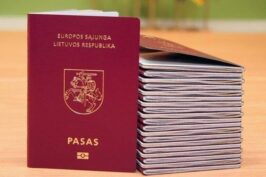
Lithuanian Citizenship by Descent in 2025
Lithuanian citizenship by descent has become a highly sought-after opportunity for individuals of Lithuanian ancestry. As we move into 2025, this pathway remains one of the most accessible ways to reconnect with your Lithuanian heritage while obtaining the rights and benefits of an EU citizen. This article will guide you through the essential details of obtaining Lithuanian citizenship by descent in 2025.
What Is Lithuanian Citizenship by Descent?
Lithuanian citizenship by descent allows individuals with Lithuanian ancestry to reclaim their citizenship rights. It is especially popular among descendants of Lithuanian emigrants who wish to re-establish ties with their ancestral homeland.
Key Eligibility Criteria
To qualify for Lithuanian citizenship by descent, you must meet specific eligibility requirements. Here are the main criteria:
- Proof of Ancestry: Applicants must demonstrate that they have Lithuanian ancestors who were citizens of Lithuania before June 15, 1940, prior to the Soviet occupation.
- Documentary Evidence: Acceptable documents include birth certificates, passports, military records, or other official documents proving your ancestor’s Lithuanian citizenship.
- Connection to Emigration: Your ancestor or ancestors must have emigrated from Lithuania before March 11, 1990, or been exiled from Lithuania before March 11, 1990. This requirement applies specifically to cases of dual citizenship.
Dual Citizenship in 2025
One of the most significant aspects of Lithuanian citizenship by descent is the possibility of retaining dual citizenship. Lithuania’s laws permit dual citizenship for individuals reclaiming citizenship by descent, making it an attractive option for those who wish to retain their current citizenship.
Conditions for Dual Citizenship
- Lithuanian citizenship before 15 June 1940;
- departure from Lithuania before 11 March 1990; or
- exile from Lithuania before 11 March 1990.
Application Process
Obtaining Lithuanian citizenship by descent involves several steps:
- Gather Documents: Collect all necessary documents proving your Lithuanian ancestry and your connection to your ancestor. This might require retrieving records from Lithuanian archives or other sources.
- Submit an Application: Applications must be filed with the Migration Department of Lithuania. Ensure that all documents are translated into Lithuanian by a certified translator.
- Wait for Approval: The review process can take 4-12 months, and in certain cases, even longer. The Migration Department will verify the authenticity of your documents and assess your eligibility.
For more detailed information, visit the Lithuanian citizenship section on our website.
Free Legal Assessment for Lithuanian Citizenship Eligibility
Free Legal Assessment: Lithuanian Citizenship Eligibility
The lawyers of MIGRATION LAW CENTER offer a free legal Assessment (analysis) of your options for obtaining Lithuanian citizenship. To receive a detailed analysis, please complete an application form by clicking this link – FORM.
Following a thorough legal analysis of your options that would allow to obtain Lithuanian citizenship, our lawyers will provide you with a written response (analytical results) regarding your options of obtaining Lithuanian citizenship and further requirements as well as procedure processes.
Benefits of Lithuanian Citizenship
By obtaining Lithuanian citizenship, you gain several advantages:
- EU Citizenship: Access to live, work, and study in any EU country.
- Cultural Reconnection: An opportunity to reconnect with your Lithuanian heritage and participate in the country’s cultural and social life.
- Visa-Free Travel: Enjoy visa-free or visa-on-arrival access to numerous countries worldwide.
Common Challenges and Tips
While the process is straightforward, applicants may face challenges such as:
- Locating Documents: Historical records can be challenging to find, especially if your ancestors emigrated long ago.
- Language Barriers: Documents must be translated into Lithuanian, which requires certified translators.
- Legal Complexities: Understanding the nuances of Lithuanian citizenship laws can be daunting without professional guidance.
Tips for Success:
- Work with a genealogist or a professional familiar with Lithuanian archives.
- Consult an immigration attorney if you encounter legal uncertainties.
- Start the process early to account for potential delays.
Conclusion
Lithuanian citizenship by descent in 2025 offers a unique opportunity to reconnect with your roots while enjoying the benefits of EU citizenship. By understanding the eligibility criteria and following the application process carefully, you can successfully reclaim your Lithuanian heritage. Start your journey today and embrace the possibilities of dual citizenship in Lithuania.
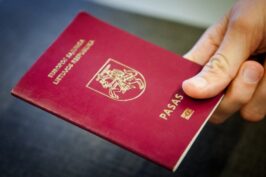
Lithuanian passport. Order of issuing and deadlines
The Lithuanian passport is one of the most important personal documents, confirming a person’s citizenship of the Republic of Lithuania and identity. This article provides essential information on the procedure for issuing passports and identity cards, document validity periods, applicable state fees, and the possibility to obtain a passport both in Lithuania and abroad. You will also learn about urgent issuance options and discounts available for children and senior citizens.
Quick Overview of Lithuanian Passport and ID Issuance (2025)
Lithuanian citizens can obtain a passport or ID card in standard (1 month) or urgent (1 or 5 business days) processing times.
Passport fees: €50 (standard), up to €200 (urgent)
ID card fees: €8.60 to €27
50% discount applies to minors and retirees
Applications are accepted at Migration department offices in Lithuania or Lithuanian consulates abroad.
What Is a Lithuanian Passport?
Lithuanian passport is a personal document attesting Lithuanian citizenship of a person. Lithuanian passport and identity card are the principle documents identifying personal data, such as first name, surname, date of birth, sex, personal number and citizenship. Each personal document has a unique number which allows identifying that the document was not counterfeit and is issued by a relevant institution. All inscriptions in a Lithuanian passport are provided in Lithuanian, English and French.
Who Must Apply for a Lithuanian Passport?
Each person having 16 years of age and living in Lithuania must address for issuing of a Lithuanian passport or an identity card. At a request of a person, a Lithuanian passport or an identity card might be issued to a person under 16 years of age. In such a case, a request to issue the document shall be submitted by one of the parents (adoptive parents), guardians (carers) of the minor person. The person in whose name the request is submitted, if he is over 1 years old, must also participate in submission of the request to obtain the identity document.
Validity Period of Lithuanian Identity Documents
A document attesting person’s identity is issued:
-
To persons under 5 years of age for no longer than 2 years.
-
To persons from 5 to 16 years of age for no longer than 5 years.
-
To persons from 16 to 75 years of age for 10 years.
-
To persons from 75 years of age the identity document is issued for 20 years.
A Lithuanian citizen who wishes to obtain a Lithuanian passport or an identity card shall address to a chosen migration service, irrespective of where the person has declared his or hers residence.
How Can Lithuanians Abroad Get Their Passport?
Persons, Lithuanian citizens living in other foreign states shall address to a Lithuanian diplomatic representation or a consular institution in order to obtain documents attesting person’s identity. In other case, they should come to Lithuania and address to the migration service in order to obtain documents attesting person’s identity.
Replacing a Lithuanian Passport or Identity Card
A Lithuanian citizen who wishes to replace the document attesting person’s identity shall submit a replaced document in the migration service. After this procedure, the old passport or the identity card are returned to the person wishing to replace the document.
What to Do If You Lose Your Lithuanian Passport?
Having lost a document attesting person’s identity, a Lithuanian citizen shall immediately inform about it by filling in a notification in the established form and submitting it to the police, the migration service or a Lithuanian diplomatic representation or a consular institution in a foreign state or by connecting to the Information System of Public Services related with issuance, consultation, provision of personal and other documents to citizens of the Republic of Lithuania and foreign states. Having received a notification in the established form regarding the loss of a document attesting a person’s identity, a competent institution shall declare this document null and void.
Fees and Deadlines for Lithuanian Passport and ID Issuance
A state fee must be paid for the issuance of a Lithuanian passport or identity card. The fee depends on how urgently the document is needed.
Lithuanian Passport and ID Issuance: Key Info at a Glance (2025)
Need a Lithuanian passport or ID card? Here’s what you should know:
Standard issuance: In 1 month
Urgent service: In 5 or even 1 business day
Passport fee: From €50 to €200, depending on urgency
ID card fee: From €8.60 to €27
50% discount for minors and pensioners
- Documents can be requested in Lithuania or abroad via embassies or consulates.
Fees and Deadlines for Lithuanian Passport Issuance
📅 Issuance Deadlines
-
Standard procedure: The document is issued within 1 month.
-
Urgent procedure:
-
Within 5 business days
-
Within 1 business day (if the request is submitted before 12:00 in Vilnius or before 9:00 in other cities)
-
Note: If the urgent request is submitted after the indicated hours, the document can be collected the next business day after 11:00, but only at the Migration Department office in Vilnius (Vytenio St. 18).
💶 State Fees (as of 2025)
| Document Type | Standard (1 month) | Urgent (5 business days) | Urgent (1 business day) |
|---|---|---|---|
| Passport | €50 | €100 | €200 |
Discounts apply – persons under 18 years old and seniors of retirement age pay 50% less.
Fees and Deadlines for Lithuanian Identity Card (ID) Issuance
A state fee must be paid for the issuance of a Lithuanian identity card (ID). The fee depends on the urgency of the request.
📅 Issuance Deadlines
Standard procedure: Issued within 1 month
Urgent procedure:
Within 5 business days
Within 1 business day (if submitted before 12:00 in Vilnius or before 9:00 in other cities)
Note: For urgent requests submitted later in the day, the ID card can be collected the next business day after 11:00 only at the Migration department Vilnius office (Vytenio St. 18).
💶 State Fees for Identity Card (2025)
| Document Type | Standard (1 month) | Urgent (5 business days) | Urgent (1 business day) |
|---|---|---|---|
| ID Card | €8.60 | €19.60 | €27 |
Discounts apply: Persons under 18 years old and pensioners are eligible for a 50% fee reduction.
If you have any questions regarding Lithuanian citizenship or should you require more information or help, please contact us by e-mail info@migration.lt or tel. + 370 6 1861886. We will gladly help you.

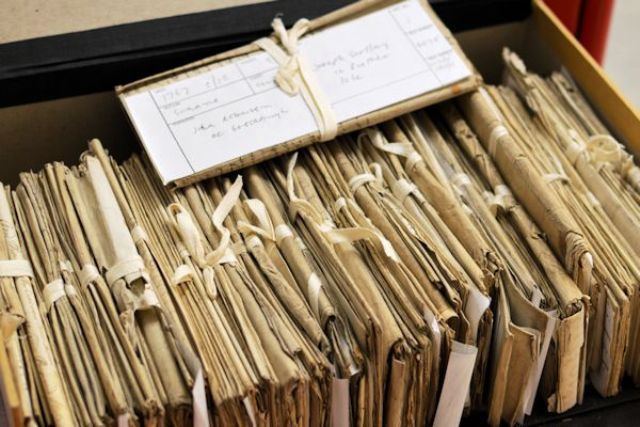
Lithuanian archives are state institutions that collect, preserve, and manage documentary heritage. They ensure the long-term preservation and accessibility of important historical, legal, administrative, and cultural documents to the public.
LITHUANIAN STATE HISTORICAL ARCHIVES
This is the largest and most important repository of archival documents for the Lithuanian history from the 13th century up to the declaration of the Independence of Lithuania in 1918, which is located in Vilnius, Mindaugo Str. 8. The documents stored in the Lithuanian State Historical Archives are the following:
- A set of documents of offices of the Grand Duchy of Lithuania (GDL), which is comprised of funds of offices of GDL in the 15th-18th These are book microfilms of GDL Chancellery (Lithuanian Metrics) of the 15th-18th century, GDL King’s Manor Board (the 16th-19th century), GDL Chief Tribunal (the 15th-19th century), GDL Treasury Commission (the 16th-18th century), GDL War Commission (the 18th century) funds, funds of various land, castle, magdeburger, submarine, compromise, ex-division, caprine, confederative courts (the 15th-19th century).
- A complex of documents of offices of the Russian Empire, which consists of funds of the Tsarist Russia offices and organizations in Lithuania at the end of the 18th century – beginning of the 20th century and funds of commissions responsible for the liquidation of offices to be evacuated to the Soviet Russia. The following funds shall be distinguished by their significance: The Lithuanian Chief Board; Vilnius General Governor’s Chancellery; Vilnius Civilian Governor and the Suwalki Governor’s Chancelleries; authorities, courts, banks, treasury chambers, gendarmerie and military institutions operating in Vilnius, Augustow, Suwalki Governorates; Vilnius City Magistrate, Duma and Board; Meeting of deputies of nobles from the Vilnius Governorate; the nobles of Vilnius and Kaunas Governorate counties; year 1831 and 1863-1864 insurrectionists, political investigation commissions; Agriculture and State Property Board funds of the Vilnius and Kaunas Governorates. This complex of documents also embraces documents significant to the Lithuanian history of science, culture and education, accumulated in the funds of the Society of Friends of Science in Vilnius, Vilnius Education District, Vilnius University and other offices.
- A set of documents of offices relating to the period of occupation by Kaiser Germany (year 1915-1918) is probably the smallest in the Archives. It consists of four funds of offices which operated during the First World War, i.e. funds of the Commander of the Lithuanian Military Board and the German courts of Vilnius Region.
- A complex of documents of confessional institutions and communities includes funds of the Lithuanian religious communities, the oldest documents whereof are of the 15th The largest part of the complex is made up of funds of the Roman Catholic Church institutions: Vilnius, Telšiai (Žemaičiai), Seinai Roman Catholic Dioceses, Kaunas Metropolitan Archdiocese, document funds of Panevėžys Diocese Curia, churches, monasteries, church books of birth, marriage and death records of year 1599-1941. This complex also includes document funds from other confessions: Lithuanian Bishopric of Units, Vilnius Orthodox Bishopric and its separate Orthodox churches, Evangelical Reformers and Evangelical Lutherans, Judaism religious, Muslim (Tartar) and Karaim religious communities.
- Various documents are collected in thirty funds of private persons, families and kins, the documents whereof comprise the period from the 15th century up to year 1941. Various documents accumulated reflect the history of famous Lithuanian kins and families and persons of vital importance to that region, as well as their political and cultural activities. It is worth to mention the funds of families of dukes Radvilos (1416-1939), Sapiegos (1524-1830), Oginskiai (1447-1915), counts Pliateriai (1501-1905) and Tiškevičiai (1451-1915).
- A set of document collections (the 15th-20th century) consists of 10 funds kept in the Archives. One collection is made up by collectors and transferred to the archives as a set of documents, while others are formed in the Archives, by selecting one characteristic. Noteworthy are privileges and writings of the heads of Lithuania and Poland for the Vilnius Jesuit Academy and the Jesuit colleges of Vilnius and Gardin (1578-1767), documents of Vilnius University professors (1738-1858), a collection of various documents (1489-1936), and the collection of Rekašius (1579-1914).
- A complex of Civil Vital Records is comprised of civil status act books made up in civil registry offices of towns and districts which operated in Lithuania from 15 August 1940.
- Collections of microfilms of documents consist of microfilms of written historical sources of the 13th-20th century kept in the archives and libraries of Belarus, Russia, Latvia, Poland, Ukraine, Sweden.
LITHUANIAN CENTRAL STATE ARCHIVES
The Lithuanian Central State Archives is situated in Vilnius, O. Milašiaus Str. 21. The Archives preserves the following records:
- Written documents
- Documents of the institutions of the Republic of Lithuania (1918–1940): funds of the Lithuanian State Council, Council of Ministers, Chancellery of President, ministries and departments, diplomatic missions abroad, offices of county heads, municipalities, scientific, cultural, educational institutions and public organizations, personal funds of public figures and diplomats.
- Documents of the institutions of the Klaipėda region: funds of offices of President of Karaliaučius District Administration and President of Gumbinė District Administration, Klaipėda Magistrate and Šilutė County Administration, cadastral office of the Klaipėda Region and other funds.
- Documents of the institutions of South East Lithuania occupied by Poland in 1919–1939: funds of civil administrations of Eastern Lands, Provisional Management Commission of Central Lithuania, funds of Vilnius Magistrate, Stephen Bathory University, funds of organizations and schools.
- Documents relating to the Nazi occupation period (1941–1944): funds of Commissar-General Office in Kaunas, district commissariats, district administrations, police stations, municipalities, offices of county heads, prisons, and Jewish Ghetto in Vilnius.
- Documents relating to the Soviet occupation periods (1940–1941 and 1944–1990): funds of the Supreme Council Presidium of the Lithuanian SSR, Council of Ministers, ministries, boards and committees, editorial offices, organisations, personal funds of famous people in science and culture.
- Video and audio documents
- Photographic documents (from the 6th-7th decade of the 19th century until nowadays): photographs, negatives, photographic glass plates, albums, vignettes, slides, digital pictures; among old photographs are the works of A. Strauss, J. Čechavičius, A. Fleury, V. Zatorskis; stored photographic documents by J. Bulhakas, M. Smečechauskas, J. Karazija, J. Miežlaiškis, B. Buračas, A. Varnas, A. Mickus, V. Janiselis. The Soviet period is reflected in the photographic material of the Lithuanian News Agency ELTA and editorial offices of newspapers. More than 100,000 photographic documents of the Lithuanian Monument Restoration and Designing Institute are stored, including numerous collections of documentary photography works of J. Juknevičius, V. Kapočius. Modern-day documentary photographs are also being accumulated.
- Audio documents: the 20th-21th century sound recordings on gramophone records, magnetic tapes, audio cassettes, CDs. The oldest sound record is a series of songs performed by Lithuanian male quartet from Riga and recorded in Riga in 1907. There are also voice recordings of the presidents of Lithuania A. Smetona and K. Grinius, and of famous Lithuanian figures, audio recordings testifying the events of 1940 in Lithuania, a collection of recordings of Kaunas Radiophone (Radio of the Reich) programmes relating to the war period, public speeches of Lithuanian figures of the Soviet period, lectures, recordings of conventions of various organizations and official celebrations of state holidays. Recordings of Vilnius Recording Studio are also worth mentioning. Voice recordings of representatives of Lithuanian Reform Movement Sąjūdis, scientists, artists, politicians, Lithuanian expatriates, former political prisoners and deportees reflect the course of restoration of the Independence and the period of restored Independent Lithuania. Recordings of the programmes of Lithuanian radio service in Chicago, Los Angeles, Baltimore (USA), Adelaide, Melbourne (Australia) and recordings of the Voice of America Lithuanian Radio Service of 1951–1995 are kept in the Archives.
- Video documents: Accumulation of video recordings started in 1988. They were mostly video clips filmed by cameramen of the Archives. They testify to the activities of the National Liberation Movement Sąjūdis, the restoration of independence of Lithuania, the events of January 1991. There are also video recordings of reminiscences of the former deportees, political prisoners, partisans submitted to the Archives by the Lithuanian National Foundation, Inc. Video documents in the Archives have been created until these days.
- Cinematographic documents: from the 2nd decade of the 20th century up to these days. Copies of the films made by the brothers Lumieres in 1895 – the earliest films ever made – are preserved in the Archives. There is also a valuable collection of the Lithuanian newsreels from 1918 – 1940 and the works of the first Lithuanian cameramen – K. Lukšys, J. Milius, brothers Motūza-Beleckas, S. Vainalavičius, S. Uzdonas and J. Miežlaiškis. Cinematographic material relating to the World War II period, the largest part of collection of cinematographic documents consists of documentaries made in the Lithuanian Film Studios and Lithuanian Television in 1946 – 1990. The first Lithuanian feature films “Blue Horizon” (Žydrasis horizontas), “The Bridge” (Tiltas), “Ignotas Returned Home” (Ignotas grįžo namo), “The Turkeys” (Kalakutai), etc. are stored in the Archives. Funds are constantly supplemented with the latest cinematic works.
KAUNAS REGIONAL STATE ARCHIVES
The Archives is situated at Maironio Str. 28B, Kaunas. The following records are accumulated and stored therein:
- Documents of offices of the Kaunas Governorate which operated at the 19th century- the beginning of the 20th century;
- Documents of municipalities and their divisions, education and medical institutions, private enterprises of Kaunas city and its district in 1919-1944;
- Documents of the soviet state and local self-administration institutions, industry, agriculture, education, medical institutions, public organizations that functioned in the territories of Jonava, Kaišiadorys, Kaunas, Kėdainiai, Prienai, Raseiniai districts in 1944-1990;
- Documents of the state and municipal institutions, offices, enterprises, non-state organizations which have been operating during the period of 1990-2003 in the current territory of the Kaunas Region; funds of personals documents.
LITHUANIAN SPECIAL ARCHIVES
The Archives situated in Vilnius, Gedimino ave. 40, preserves documents of the State Security Committee of the Lithuanian SSR (NKGB-MGB-KGB), records of the Ministry of Interior of the Lithuanian SSR (NKVD-MVD), documents of the Lithuanian Communist Party (LKP), and documents of the first divisions of institutions, enterprises and organizations of the Lithuanian SSR, anti-Soviet and anti-Nazi resistance documents.
- The complex of documents of the State Security Committee of the Lithuanian SSR (KGB) accumulated documents of year 1940-1941, 1944-1990 of activities of the NKVD-NKGB-MVD-MGB-KGB Central Unit and Territorial Units of the Lithuanian SSR, operational and agency work documents, personnel and labor files of KGB agents, filtering and spec. inspection files of Lithuanian residents, criminal cases of persons who have been convicted of political motives, criminal files proceeded due to acts of terror committed against Soviet-party assets and institutions, SSRS OGPU-GUGB-NKVD-MGB-KGB territorial units and LSSR NKVD-NKGB-MVD-MGB-KGB counter-intelligence divisions, interwar Lithuanian state, society and culture figures, Catholic clergy, insurrectionists of year 1941, post-war Lithuanian partisans, heads of anti-Soviet organizations, dissidents, refugees from the USSR and operational retrieval cases for other persons who were considered as state criminals.
- Also, the Special Archives comprises criminal cases of persons of Lithuanian origin who were convicted in the Soviet Russia during the period of 1919-1939. Personal documents confiscated from arrested persons during searches at the 19th century – the beginning of the 20th century, “trophy” documents taken by security agents from the Lithuanian partisans, as well as documents of SSRS NKVD-MVD-KGB military units deployed in the Lithuanian SSR are also stored in this Archives.
Documents kept in the Archives reflect the entire activity of KGB in Lithuania during the period of 1940-1991, the objectives, structure and methods of the operation of the Soviet repression apparatus. Documents comprise information not only about Lithuanian people and events, the fight against the Lithuanian national underground, but also about Lithuanian communities in different countries of the world and more famous Lithuanian emigrants. Documents which were preserved in the former KGB Archives, which the KGB was not able to export to Russia or destroy in place, are also stored in this complex.
MIGRATION LAW CENTER

Lithuanian citizenship for persons, who departed from Lithuania to the United States of America, and for their descendants
Lithuanian emigrants are scattered all over the world. Since the end of the 19th century, Lithuania has been one of the Eastern European countries providing the largest number of emigrants to the world.
Four Major Waves of Lithuanian Emigration
In Lithuania, the following four waves of emigration from Lithuania are distinguished:
- economic emigration at the end of the 19th century and the beginning of the 20th century;
- Emigration from Lithuania during the period 1920-1940;
- Emigration of political refugees, who moved from Lithuania at the end of World War II (Displaced Persons);
- Contemporary emigration from Lithuania.
Four Major Waves of Lithuanian Emigration
| Wave Number | Time Period | Main Reason | Main Destination(s) |
|---|---|---|---|
| 1st Wave | Late 19th – Early 20th century | Economic, political, ideological | United States of America |
| 2nd Wave | 1920-1940 | Economic, political, historical | Canada, South America (Argentina, Brazil, Uruguay), Palestine, South Africa |
| 3rd Wave | End of WWII | Political refugees (Displaced Persons) | Germany, Austria, USA, Canada, Australia, South America |
| 4th Wave | Post-Independence (after 1990) | Economic | Various worldwide |
First Wave: Economic Emigration to the United States
A large number of residents of the Lithuanian territory emigrated from Lithuania to the United States of America after the 1831 and 1863 uprisings. Emigration of Lithuanians to the United States of America has mostly increased at the end of the 19th century and the beginning of the 20th century. The largest emigration of Lithuanians to the United States of America occurred on the 9th decade of the 19th century. Most frequently, this emigration was influenced by economic reasons (redundancy, weak industrial development), nevertheless, in certain cases the impact on emigration was also made by ideological, political and historical motives: Czarist policy of Russification, growing national movement, defeat of the Revolution in 1905, wars, etc. This massive emigration into the United States of America has continued from the 9th decade of the 19th century until World War I.
Second Wave: Interwar Emigration to South America and Beyond
During Lithuania’s independence period (1918-1940), Lithuania experienced a second huge wave of emigration. The causes of this emigration were also mostly economic, but in some cases historical and political. During this period, emigration of Lithuanians to the United States of America decreased due to immigration quotas introduced in the United States of America. During this period, the majority of Lithuanians emigrated to Canada and South America (Argentina, Brazil, Uruguay), a part (mostly persons of Jewish nationality) emigrated to Palestine and South Africa. On the 3rd-4th decade of the 20th century, up to 60% of all Lithuanian emigrants departed from Lithuania to South America.
Third Wave: Post-War Displacement and Political Emigration
At the end of World War II, Lithuania experienced the third wave of emigration, when political refugees began to depart from Lithuania. The reasons of such emigration were political and historical: World War II, its outcomes, Lithuanian occupation. The Lithuanians were forced to leave Lithuania and found themselves in refugee camps wherefrom they did not return to the occupied homeland. These persons were forced political emigrants.
Displaced Persons and Lithuanian Refugee Camps
After World War II, most Lithuanians gathered in German DP camps, also, in Austrian DP camps, where political refugees were protected by international organizations UNRA and IRO, which took care of the relief, placement of war refugees and later on of their further emigration. All persons who moved from their countries were named by the term Displaced Persons.
Lithuanian Diaspora Expansion After 1948
During years 1948-1950, Lithuanians from German and Austrian DP camps spread all over the world: a small part of Lithuanians left in Europe (the Great Britain, Germany, Austria), the huge wave of Lithuanian emigrants settled down in the United States of America, the rest part – in Canada, Australia, South American countries.
Fourth Wave: Modern Economic Emigration
From the restoration of Lithuanian independence up to these days, Lithuania has experienced emigration influenced by economic reasons.
Citizenship Loss and Dual Citizenship Opportunities
Lithuanians who emigrated from Lithuania used to acquire the citizenship of foreign country and their children, grandchildren and great-grandchildren in most cases became non-Lithuanian citizens. It should be noted that in accordance with Lithuanian legislation persons who emigrated from Lithuania before 11.03.1990 and who were citizens of Lithuania before 15.06.1940, as well as desdendants of such persons (children, grandchildren and great-grandchildren), may reinstate citizenship of Lithuania without renouncing the held citizenship of foreign country (Dual citizenship).
Requirements to Reinstate Lithuanian Citizenship Without Renunciation
In such case, in order to reinstate Lithuanian citizenship without renouncing the held citizenship of foreign country (Dual citizenship), it is necessary to prove the following main circumstances:
- Lithuanian citizenship before 15.06.1940;
- Departure from Lithuania before 11.03.1990 (1918-1990);
- Other circumstances (relationship, change of name, surname, etc.).
Legal Grounds for Dual Citizenship Under Lithuanian Law
Lithuanian Law on Citizenship stipulates that persons who held citizenship of Lithuania before 15.06.1940 and their descendants, who have not acquired citizenship of Lithuania before the entry into force of this law, shall have an indefinite right to reinstate Lithuanian citizenship, irrespective of whether they are permanently resident in Lithuania or in any other state.
Article 7 of the Lithuanian Citizenship Law
| Condition | Eligibility for Dual Citizenship |
|---|---|
| Person left Lithuania before 11.03.1990 (exile or flight) | Eligible to restore citizenship without renouncing other citizenship |
| Descendants of the above persons | Also eligible |

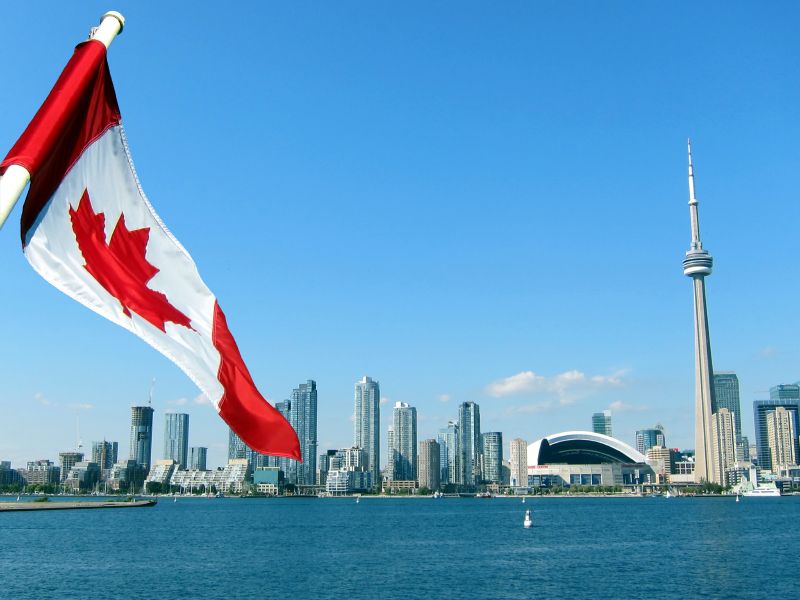
Lithuania has experienced four major waves of emigration from Lithuania. Emigration of Lithuanians was influenced by different causes, both economic, historical and political.
The major waves of emigration from Lithuania are the following:
1) Economic emigration at the end of the 19th century and the beginning of the 20th century;
2) Emigration from Lithuania during the period 1920-1940;
3) Emigration of political refugees, who moved from Lithuania at the end of World War II (Displaced Persons);
4) Contemporary emigration from Lithuania.
A large Lithuanian emigration to Canada occurred during the period of the second and third wave of emigration. During the period of 1920-1940, emigration of Lithuanians to Canada was mostly influenced by economic reasons, however, in certain cases emigration was also influenced by political and historical motives.
At the end of World War II, emigration of Lithuanians to Canada was influenced by historical and political circumstances: World War II, its outcomes, Lithuanian occupation. Lithuanians as political refugees receded to DP camps, wherefrom they were further transferred to regions of independent countries, including Canada. Most Lithuanians settled down in German DP camps, also, in Austrian DP camps, where political refugees were protected by international organizations UNRA and IRO, which took care of the relief, placement of war refugees and later on of their further emigration. All persons who moved from their countries were named by the term Displaced Persons. A huge part of Lithuanian emigrants departed to Canada during this period.
During years 1948-1950, Lithuanians from German and Austrian DP camps spread all over the world: a small part of Lithuanians left in Europe (the Great Britain, Germany, Austria), the huge wave of Lithuanian emigrants settled down in the United States of America, the rest part – in Canada, Australia, South American countries.
Lithuanians who emigrated to Canada used to acquire citizenship of Canada, their children, grandchildren and great-grandchildren in most cases became citizens of Canada. In order to maintain a legal relationship with Lithuanian emigrants, Lithuania has the institute of reinstating the Lithuanian citizenship, which entitles a person who held Lithuanian citizenship before 15.06.1940 and departed from Lithuania before 11.03.1991, to reinstate citizenship of Lithuania (dual citizenship). Descendants of this person (children, grandchildren, great-grandchildren) can also use the possibility of reinstating the Lithuanian citizenship.
In accordance with Lithuanian Law on Citizenship, persons who held citizenship of Lithuania before 15.06.1940 and their descendants, who have not acquired citizenship of Lithuania before the entry into force of this law, shall have an indefinite right to reinstate citizenship of Lithuania, irrespective of whether they are permanently resident in Lithuania or in any other state.
Article 7 of Lithuanian Law on Citizenship provides for cases when Lithuanian citizenship can be reinstated without renouncing the held citizenship of foreign country. It is stipulated in this article that a citizen of Lithuania may be a citizen of another state at the same time, provided he is a person who departed from Lithuania before 11.03.1990 or is a descendant of such person.
Taking into account such provisions of Lithuanian Law on Citizenship, in order to restore the Lithuanian citizenship without renouncing the held citizenship of foreign country, it is necessary to prove the following main circumstances:
- Lithuanian citizenship before 15.06.1940;
- Departure from Lithuania before 11.03.1990;
- Other circumstances (relationship, change of name, surname, etc.).
MIGRATION LAW CENTER
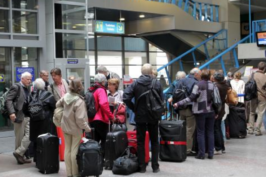
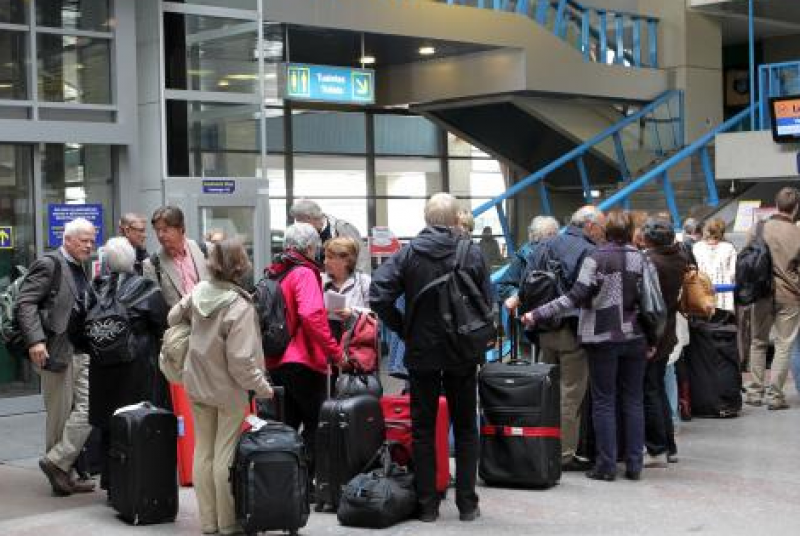
The Constitutional Court of the Republic of Lithuania has begun to hear the case regarding the retention of dual citizenship for persons who departed from Lithuania to live in other states after 11 March 1990. The Constitutional Court of the Republic of Lithuania will decide whether a right of such persons to have dual citizenship can be established by law, and whether they will have to choose a citizenship of the state they want to reserve.
The Constitution of the Republic of Lithuania hereby states that nobody can be both a citizen of Lithuania and of other state at the same time, i.e. to have dual citizenship, except for individual cases provided for by law. The majority of such cases are intended for persons who moved from Lithuania until 11 March 1990. For those persons who left Lithuania later, already after the restoration of independence, and who acquired citizenship of other state, even international obligations do not form the basis for retention of the Lithuanian citizenship.
Individual and exceptional cases when a dual citizenship is permitted in Lithuania are stipulated in Article 7 of the Law on Citizenship of the Republic of Lithuania:
A citizen of the Republic of Lithuania may be a citizen of another state at the same time, provided he meets at least one of the following conditions:
1) he has acquired citizenship of the Republic of Lithuania and citizenship of another state at birth;
2) he is a person who was exiled from occupied Lithuania before 11 March 1990;
3) he is a person who departed from Lithuania before 11 March 1990;
4) he is a descendant of a person referred to in subparagraph 2 or 3 of this Article;
5) by virtue of marriage to a citizen of another state he has ipso facto acquired citizenship of that state;
6) he is a person under 21 years of age, provided he was adopted by citizens (citizen) of Lithuania before reaching 18 years of age and, as a result of the adoption, acquired citizenship of the Republic of Lithuania;
7) he is a person under 21 years of age, provided he, being a citizen of the Republic of Lithuania, was adopted by citizens (citizen) of another state before reaching 18 years of age and, as a result of the adoption, acquired citizenship of that state;
8) he has acquired citizenship of the Republic of Lithuania by way of exception while being a citizen of another state;
9) he is a person who preserved Lithuanian citizenship or the Lithuanian citizenship thereof was restored for his outstanding merits to the Republic of Lithuania;
10) he has acquired citizenship of the Republic of Lithuania while having refugee status in the Republic of Lithuania.
The Seimas of the Republic of Lithuania hereby declares that this article limits the acquisition of dual citizenship for persons of younger generation, who moved from Lithuania after 11 March 1990.
Nowadays when after the restoration of independence of Lithuania and after the entry of Lithuania to the European Union, the emigration of Lithuanians to other countries has increased, consequences of emigration began to be the issues of concern, which also embraces a number of increased mixed marriages. For a long time, the Constitutional Court of the Republic of Lithuania has held the opinion that dual citizenship cannot be a widespread phenomenon, and has limited the right of the Seimas of the Republic of Lithuania to amend this provision by law. Previously, the Constitutional Court of the Republic of Lithuania had explained that such extension of limits of dual citizenship would contradict to the Constitution of Lithuania and this may be made only by way of referendum.
Many persons believe that even though the free movement of Lithuanian citizens in the countries of the European Union is encouraged, however, the provisions of the Constitution of Lithuania restrict this freedom of Lithuanian citizens without entitling to simultaneously acquire citizenship of another state.
The issue of legalization of dual citizenship has arisen and become most relevant after the withdrawal of the United Kingdom from the European Union. The Seimas of Lithuania became scared that those Lithuanians who live in the United Kingdom and have their families therein, would choose passports of the Great Britain and therefore Lithuania will lose a large part of its citizens.
Having in mind the fear of such consequences, the Seimas of Lithuania has recently appealed to the Constitutional Court of Lithuania with a petition to alter by law the provision of the Constitution of Lithuania and to legalize an acquisition of dual citizenship for persons who departed from Lithuania after the restoration of independence to live in a state of the European Union or NATO. It is maintained that this cannot be only rare exceptions and the emigrated young generation must be allowed to have dual citizenship.
Nevertheless, the Constitutional Court of Lithuania still persists that limits of dual citizenship can only be extended by way of referendum. The Constitutional Court of Lithuania asserts that it is impossible to change by law the provision of the Constitution of Lithuania regarding the legalization of dual citizenship for persons who departed from Lithuania after the restoration of independence to a state of the European Union or NATO. If the Constitutional Court of Lithuania will not change its position – both parliamentarians and emigrated Lithuanians, who are afraid of the lack of votes for the alteration of the Constitution of Lithuania, will have to be disappointed. The referendum must be approved by more than a half of the citizens who are entitled to vote and entered on the electoral registers.
The studies have revealed that 60 percent of Lithuanian residents agree that emigrants, who departed from Lithuania after 1990, would be allowed to have dual citizenship (according to a research ordered by the news agency BNS, a survey carried out by the company RAIT in April).
It is planned that the referendum regarding provisions of the Constitution of Lithuania will be held in 2019.
MIGRATION LAW CENTER
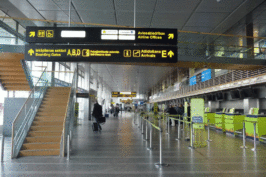
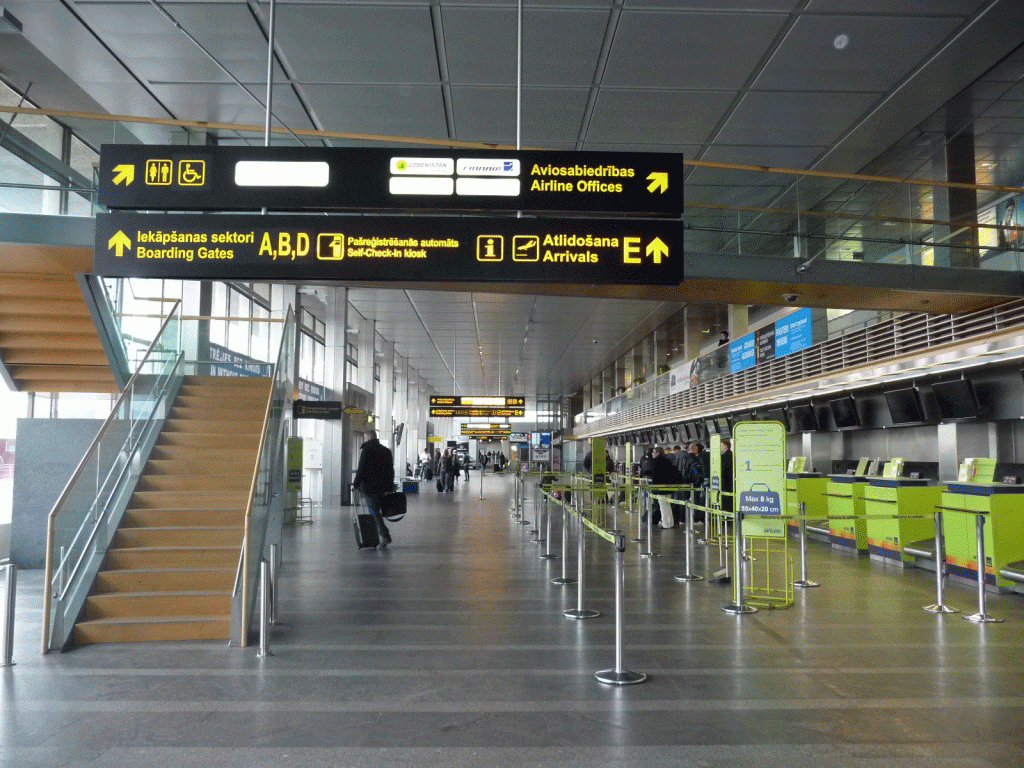
The dual citizenship in Lithuania is possible only in certain exceptional cases provided for by law. Such exceptional cases are determined in Article 7 of the Law on Citizenship of the Republic of Lithuania. It is established by Article 7 of the Law on Citizenship of the Republic of Lithuania that a citizen of the Republic of Lithuania may be a citizen of another state at the same time, provided he meets at least one of the following conditions:
1) he has acquired citizenship of the Republic of Lithuania and citizenship of another state at birth;
2) he is a person who was exiled from occupied Lithuania before 11 March 1990 and acquired citizenship of another state;
3) he is a person who departed from Lithuania before 11 March 1990 and acquired citizenship of another state;
4) he is a descendant of a person referred to in subparagraph 2 or 3 of this Article;
5) by virtue of marriage to a citizen of another state he has ipso facto acquired citizenship of that state;
6) he is a person under 21 years of age, provided he was adopted by citizens (citizen) of Lithuania before reaching 18 years of age and, as a result of the adoption, acquired citizenship of the Republic of Lithuania;
7) he is a person under 21 years of age, provided he, being a citizen of the Republic of Lithuania, was adopted by citizens (citizen) of another state before reaching 18 years of age and, as a result of the adoption, acquired citizenship of that state;
8) he has acquired citizenship of the Republic of Lithuania by way of exception while being a citizen of another state;
9) he has acquired citizenship of the Republic of Lithuania while having refugee status in the Republic of Lithuania.
Person exiled from the occupied Republic of Lithuania before 11 March 1990 means a person who held citizenship of the Republic of Lithuania before 15 June 1940 or his descendant, who were forcibly expelled from Lithuania by decisions of institutions or courts of occupation regimes in the period from 15 June 1940 to 11 March 1990 for reasons of resistance to occupation regimes, political or social reasons or reasons of origin.
Person who fled Lithuania before 11 March 1990 means a person who held citizenship of the Republic of Lithuania before 15 June 1940 or his descendant, who left the current territory of the Republic of Lithuania before 11 March 1990 to reside permanently in another state, if their permanent residence on 11 March 1990 was outside Lithuania.
Descendant of a citizen of the Republic of Lithuania means a child, grandchild or great-grandchild of a person who held citizenship of the Republic of Lithuania before 15 June 1940.
On the basis of the aforementioned provisions of the Law on Citizenship of the Republic of Lithuania, which provide for exceptional cases of possible dual citizenship, persons who moved from Lithuania after the restoration of independence after 11 March 1990 and acquired foreign citizenship, can retain dual citizenship only in exceptional cases. A person who departed from Lithuania and acquired a citizenship of other state, must inform about the acquisition of foreign citizenship the Migration Department under the Ministry of the Interior of the Republic of Lithuania, territorial police station or Lithuanian diplomatic mission, or consular post, no longer than within two months after the acquisition of foreign citizenship.
After the receipt of notification on the acquisition of foreign citizenship, an issue of loss of citizenship of the Republic of Lithuania shall be considered. If it is determined that there are no grounds for preserving dual citizenship a person loses citizenship of Lithuania.
A dual citizenship can be preserved after having determined exceptional cases of possible dual citizenship, whereof stipulated in Article 7 of the Law on Citizenship of the Republic of Lithuania.
It should be noticed that while assessing the issue of dual citizenship, the moment of acquiring foreign citizenship in each particular case is significant. If the person has acquired foreign citizenship within a period from 01 January 2003 to 15 November 2006, the loss of citizenship of the Republic of Lithuania shall not be applicable and the person preserves dual citizenship, i.e. the citizenship of Lithuania and the acquired foreign citizenship (applies to descendants of a person who held Lithuanian citizenship before 1940 06 15 and for persons of Lithuanian descent).
MIGRATION LAW CENTER
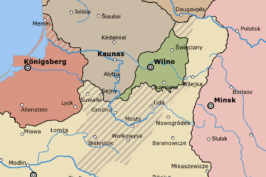
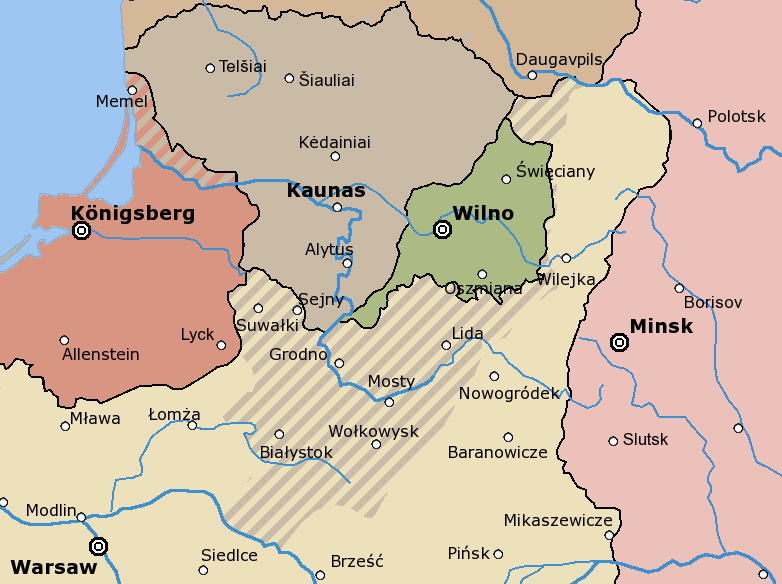
According to 12 July 1920 the Soviet–Lithuanian Peace Treaty, the Vilnius region has been recognized for Lithuania. Since the moment of signing of the Suwalki Treaty, Lithuania has gained legal sovereignty over the region of Vilnius. Residents of the Vilnius region who met the requirements of Article 1 of the Provisional Law on Lithuanian Citizenship and the requirements of Article 6 of the Soviet–Lithuanian Peace Treaty were considered to be citizens of Lithuania.
On 09 October 1920, Poland having broken the Lithuanian-Polish Treaty signed in Suwałki on 07 October 1920, occupied the Vilnius region. This occupation de facto became an annexation.
Having occupied the Vilnius region and started to actually control it, Poland has begun to consider its residents as its citizens and “did not allow them to be seen as citizens of a foreign country”.
The legal situation arose when, basically, Lithuania considered the same people to be Lithuanian citizens, while Poland considered them to be citizens of Poland.
According to 10 October 1939 Agreement on the transmission of Vilnius and Vilnius Region to the Republic of Lithuania and the Soviet–Lithuanian Mutual Assistance Treaty, Vilnius and the Vilnius region were transferred to Lithuania.
Whilst considering the issue of citizenship of the Vilnius region residents, the provision was followed that some of the residents of this region are citizens of Lithuania and the fact of their citizenship of Lithuania is only required to be stated. Lithuanian citizenship is not granted to these persons – after the actual return of the Vilnius region to the composition of the Lithuanian state, residents of this region regained Lithuanian citizenship. Other residents of this region are considered to be citizens of another state or as stateless persons.
Which residents of the Vilnius region are considered to be Lithuanian citizens, was established in the introductory law on the management of Vilnius city and its area adopted on 27 October 1939. Article 3 of this law provided for the following:
The residents of Vilnius city and its area, who on the day of the changeover of the documents of ratification of the Soviet–Lithuanian Peace Treaty on 12 July 1920 were considered to be citizens of Lithuania and on the day of the entry into force of this Law had a place of residence in the city of Vilnius or in its area, shall be considered to be Lithuanian citizens.
The wives of these Lithuanian citizens and their children under the age of 21 are also considered to be citizens of Lithuania; children over the age of 21 of these persons are considered to be Lithuanian citizens, provided they had a place of residence in the city of Vilnius or its area on the day of the entry into force of this Law”.
Therefore, according to the specified law, residents of Vilnius and its area were considered to be citizens of Lithuania, who: 1) in accordance with Article 6 of the Soviet–Lithuanian Peace Treaty of 14 October 1920, were considered to be citizens of Lithuania and 2) on 27 October 1939 had a permanent place of residence in the city of Vilnius or its area.
It should be noted that according to the introductory law mentioned herein, on 27 October 1939 the person should have lived not in that territory of the Vilnius region, which was defined in 12 July 1920 the Soviet–Lithuanian Peace Treaty, but in the “narrower” territory of the Vilnius region, which was established in the agreement signed between Lithuania and Russia on 10 October 1939 and in 1939 October 27 the Supplementary Protocol between the Republic of Lithuania and the Union of Soviet Socialist Republics. “Persons who come from areas not covered by the last agreement with S.S.S.R. not recognized as Lithuanian citizens. The place of permanent residence of a person was considered to be “where one lives due to his/her service, occupation, craft or real estate or has a home farm” (Note 1 of Article 9 of the Passport Statutes).
The residents of Vilnius city and its area were able to prove Lithuanian citizenship by documentation specified in the amendment to Passport Statutes, adopted by the Seimas on 20 November 1939. Such documents included acts of civil status (for example, birth certificates, baptismal certificates, marriage metrics, children’s legalization decisions); documents on recording in the villages, cities or caste communities (for example, books of general population lists, marks on recording into the community in old Russian passports); documents about the time spent in the city of Vilnius or in its area, as well as documents evidencing a permanent residence in the city of Vilnius or in its area on 06 October 1920 and on 27 October 1939.
Citizenship issues of the Vilnius region residents were resolved by issuing passports to them.
On 03 May 1940, the Seimas amended the introductory law on the management of Vilnius city and its area and determined that “Citizens of Lithuania are also those residents of the city of Vilnius and its area who, at any time until 01 August 1914 had a residence in the city of Vilnius and its area, and real estate or work, and who lived in that area for at least five years during the time span from 06 August 1920 to 27 October 1939, if they had a place of residence in that area on 06 August 1920 and on 27 October 1939”.
Therefore, according to the specified amendments to the law, the right to be treated as Lithuanian citizens was acquired by those persons who were related to the Vilnius region until 01 August 1914. They were not required to have been living in Lithuania for at least ten years before 1914, as provided for in Article 6 of the Soviet–Lithuanian Peace Treaty. On the other hand, the law has introduced new additional conditions, for example: the requirement to live in the Vilnius region and on 06 August 1920 and on 27 August 1939, “in other words, during the period of the largest drop in the population due to war, evacuation and call-up.”
On 15 June 1940, the Vilnius region was occupied by Russia.
Citizens of Lithuania according to the Soviet–Lithuanian Peace Treaty of 12 July 1920
The Soviet–Lithuanian Peace Treaty of 12 July 1920 also provided for which persons are recognized as citizens of Lithuania.
Part 1 and 2, Article 6 of the Soviet–Lithuanian Peace Treaty established the following:
“Persons who lived on the territory of Lithuania during the day of ratification of this Treaty and who themselves or their parents permanently lived in Lithuania or were registered in the villages, towns or caste communities in the territory of Lithuania, as well as persons who had been living in Lithuania for at least the last ten years before 1914, having the permanent job there, leaving former civilians and military servicemen, not of the Lithuanian descent, with their families – at the same time recognized as citizens of the state of Lithuania.
Persons of the same category who, during the ratification time of this agreement, lived in the territory of a third country, but have not been naturalized there, were equally recognized as citizens of Lithuania”.
Thus, Article 6 of the Peace Treaty distinguishes four categories of persons who are treated as citizens of Lithuania:
- persons who themselves or their parents permanently lived in Lithuania;
- persons who were recorded in villages, towns or caste communities in the territory of Lithuania;
- persons who have been living in Lithuania for at least the last ten years before 1914 and had the permanent job thereto;
- persons belonging to the abovementioned categories of persons who, when ratifying this Treaty, lived in the territory of a third country and have not acquired citizenship of that state by way of
Persons referred to in Article 6 of the Peace Treaty may have resided either in the territory of Lithuania or in the territory of a third state at the date of ratification of this Treaty.
Persons who lived in the territory of Lithuania were immediately considered to be Lithuanian citizens. Persons who lived in the territory of Russia were considered to be Lithuanian citizens only when they opted for Lithuanian citizenship under the conditions laid down in the Treaty. Persons who lived in the territory of a third state were considered to be Lithuanian citizens only if they were not naturalized in that country.
It should be noted that the Supreme Administrative Court of Lithuania, when investigating the administrative case No A11-421 / 2005 on 19 April 2005 indicated that “the territory of Lithuania (Vilnius region) was occupied by Poland in 1920-1939, therefore, persons lived in it during this period could not objectively be considered Lithuanian citizens and accordingly could not receive documents confirming this citizenship. The specifics of this situation was discussed in the introductory law on the management of Vilnius city and its area (which came into force on 27 October 1939), Article 3 whereof indicated that residents of Vilnius and its area who on the day of the changeover of the documents of ratification of the Soviet–Lithuanian Peace Treaty on 12 July 1920 and on the day of the entry into force of this law, had a place of residence in the city of Vilnius or in its area, are considered to be Lithuanian citizens. According to this article of the law, children of such persons under the age of 21 (on the day of entry into force of the law) were also considered to be Lithuanian citizens. It should be noted that, according to this legal norm, a circumstance is significant whether on the day of the changeover of the documents of ratification of the Soviet–Lithuanian Peace Treaty on 12 July 1920 residents indicated therein may be considered to be citizens of Lithuania. Therefore, when resolving this issue, it is necessary to follow the relevant provision of the Provisional Law on Lithuanian Citizenship (09 January 1919) in force in Lithuania at that time regarding what is considered to be a citizen of Lithuania. According to Article 1 of the latter law, Lithuanian citizens were considered to be persons whose parents and grandparents lived in Lithuania from the old days and who themselves have always been living in Lithuania.
Article 1 of the Provisional Law on Lithuanian Citizenship of 09 January 1919 stipulated that “Citizens of Lithuania shall be: 1) persons whose parents or grandparents lived in Lithuania from the old days and who themselves have always been living in Lithuania; 2) children of persons indicated in section 1 who, even though did not always live in Lithuania, but returned to live there; 3) persons who have lived in Lithuania for at least ten years before 1914 and who had: a) their own real estate, b) or permannet job; 4) children of the Lithuanian citizen; 5) his wife or widow; 6) children of unmarried Lithuanian citizen, provided they were not accepted by a foreigner as his children; 7) foreigners newly accepted as Lithuanian citizens”.
The amendment to Article 3 of the introductory law on the management of Vilnius city and its area adopted on 03 May 1940 stipulates that “Citizens of Lithuania are also those residents of the city of Vilnius and its area who, at any time until 01 August 1914 had a residence in the city of Vilnius and its area, and real estate or work, and who lived in that area for at least five years during the time span from 06 August 1920 to 27 October 1939, if they had a place of residence in that area on 06 August 1920 and on 27 October 1939”.
MIGRATION LAW CENTER
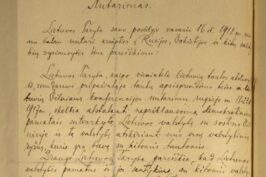
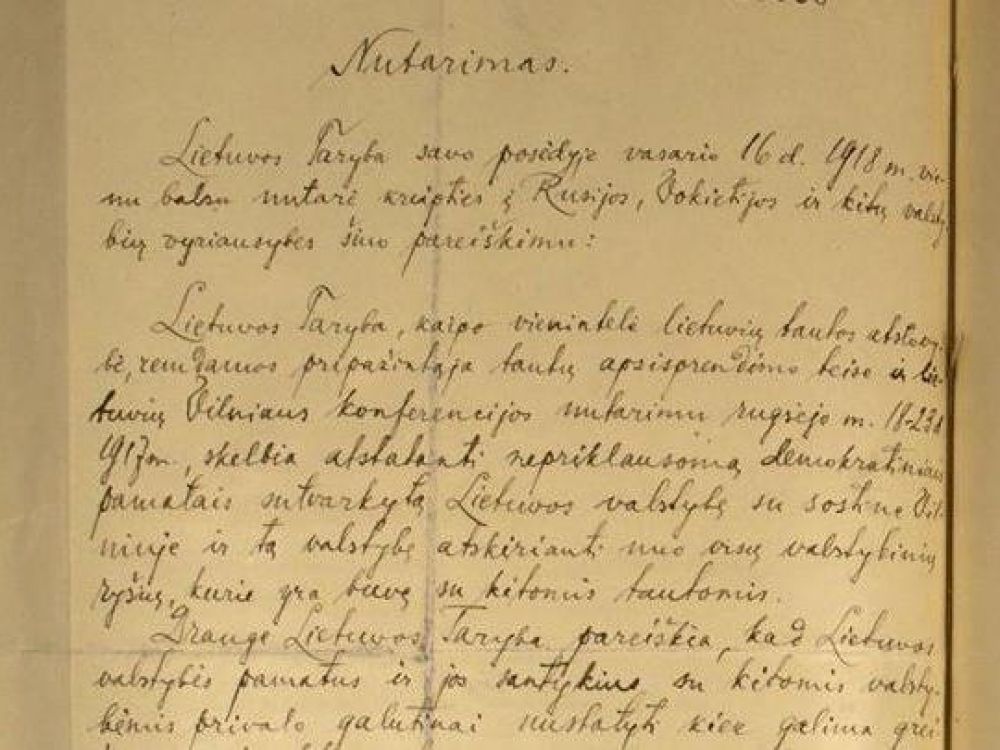
According to the Provisional Law on Lithuanian Citizenship of 09 January 1919, citizens of Lithuania shall be deemed to be: “1) persons, whose parents and grandparents have lived in Lithuania since ancient times and who themselves always live in Lithuania; 2) children of persons indicated in the first subsection, who even though did not always live in Lithuania, but returned to live thereto; 3) persons who have lived in Lithuania no less than ten years before 1914 and who had: a) either their own real property, b) or permanent job; 4) children of a citizen of Lithuania; 5) his wife or widow; 6) children of a not married citizen of Lithuania, if they have not been accepted by the alien as his children”.
Persons were not naturally considered as citizens of Lithuania, who “even had a permanent job, but their job was solely serving for the Russian State, i.e. Russian clerks”.
Under the law, persons were treated as citizens of Lithuania who have lived in Lithuania no less than ten years before 1914 and who had either their own real property, or job. It was not stipulated in the law what was meant by “to live in Lithuania no less than ten years”. When applying the law, a condition “to live in Lithuania no less than ten years before 1914” was explained as a necessity to live without a break in Lithuania during years 1904-1914. The person was not treated as living in Lithuania for the last decade before 1914, if he “only had the purpose to study”. Russian clerks indicated in the law (besides, the concept of “clerk” was explained as embracing both civilians and soldiers) were not entitled to the citizenship of Lithuania, “if they lived until 1914 and have lived without a break for the last ten years”. Nevertheless, if former Russian clerks “had a real property in Lithuania during that last decade, then they could be treated as citizens of Lithuania”. The provision of law regarding Russian clerks was interpreted as having “in mind only such former Russian clerks, who are not natives of Lithuania”.
Under the Statutes of Passports which entered into force on 01 July 1919, each citizen of Lithuania who reached 17 years old had to have a passport. The passport could not be issued to a non-Lithuanian citizen.
A person willing to obtain a passport had to “attest his personality: either by submitting a passport issued by the German occupational government or other documents, or witnesses, who were known to the issuing person”.
New Statutes of Passports were adopted on 05 December 1919, wherein differently from the previous ones it was not identified with which documents a person can prove that he is a citizen of Lithuania. Furthermore, it was not provided for that in such cases when a person is not able to submit documents evidencing his Lithuanian citizenship, he can rely on testimonies of witnesses. In accordance with the Statutes of Passports, passports were issued on the basis of Instruction of the Ministry of the Interior. It can be concluded thereof that the minister of the interior had to establish the procedure and ways of evidencing citizenship. “This instruction was very liberal and found many ways of proof”, also, including the fact that statements of two wittnesses were sufficient in order to prove the citizenship and that the applicant of passport is from Lithuania.
By Law of 22 November 1921, the Statutes of Passports were replaced and amended. It was determined that passports were issued only to those persons who will prove their Lithuanian citizenship with the following documents: “a) old Russian passports; b) Ob-Osto passports; c) common books of population lists of Russian times; d) birth or marriage certificates”.
It was established in the Statutes of Passports that each citizen of Lithuania must “obtain passports” until 31 March 1922. From this day “all other passports and personal testimonials shall be ceased”. Although a deadline of passport acquisition was extended several times, but a number of persons who “needed to obtain passport and clarify their citizenship” constantly increased with exiles from Russia.
MIGRATION LAW CENTER


The independent state of Lithuania was restored on 16 February 1918.
The citizenship of Lithuania during years 1919-1940 was regulated by Lithuanian laws, legal acts issued by public authorities and Lithuanian international contracts.
Lithuanian laws and legal acts issued by public authorities shall be referable to: 1) Constitution of Lithuania; 2) Provisional Law on Citizenship of Lithuania of 09 January 1919, Law on Citizenship of Lithuania of 08 August 1939; 3) Introductory Law on the Management of Vilnius City and its Area of 27 October 1939; 4) Statutes of Passports; 5) legal acts issued by the minister of the interior and by both the minister of the interior and minister of justice, and explanations on issues of citizenship; 6) circulars of the Department of Civil Rights Protection and the Department of Administration under the Ministry of the Interior, as well as explanations on issues of citizenship; 7) circulars of the Ministry of Foreign Affairs on issues of citizenship.
Lithuanian international contracts regulating relations of citizenship shall be referable to the following contracts: Soviet-Lithuanian Peace Treaty (signed on 12 July 1920); Treaty on the Establishment of the Procedure for Opting for Lithuanian Citizenship between Lithuania and Russia (signed on 28 June 1921); Treaty on the Establishment of the Procedure for Opting for Lithuanian Citizenship between Lithuania and Ukraine (signed on 28 January 1921); Convention between Latvia and Lithuania regarding the Rights of the Citizens (signed on 14 May 1921); Declaration concerning the Protection of Minorities in Lithuania of 12 May 1922; Convention of the Klaipėda Region (signed on 08 May 1924); Agreement regarding the Execution of the Convention between Lithuania and Germany on the Klaipėda Region of 08 May 1924, Articles 8-10 (signed on 10 February 1925); Treaty on the Transfer of Klaipėda Region between the Government of Lithuania and the Government of Germany (signed on 22 March 1939); Treaty between the Republic of Lithuania and the German Reich on Citizenship of the Residents of the Town of Klaipėda (signed on 08 July 1939); Treaty on Naturalisation and Military Service between the Republic of Lithuania and United States of America (concluded on 18 October 1937).
The first legal act which regulated citizenship of Lithuania was the Provisional Law on Citizenship of Lithuania adopted by the Cabinet of Ministers on 09 January 1919.
MIGRATION LAW CENTER

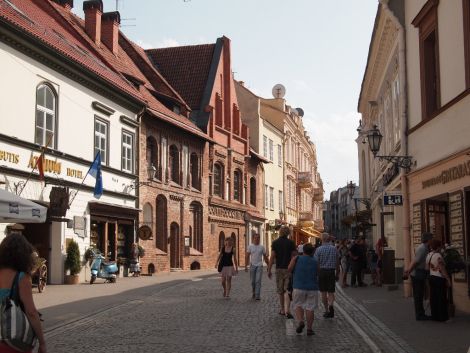
Lithuanian citizens, stateless persons and citizens of foreign countries shall be entitled to change their name and surname. The name and surname of a citizen of foreign country can be changed only in Lithuanian civil registry offices or diplomatic missions and consular posts of Lithuania in records of civil status acts entered to him.
An application to change a name, surname or nationality shall be submitted to the civil registry office of the place of residence of the applicant. A person aged 16 shall be permitted to change his name, surname and nationality.
A name of the minor child aged 3 months can be changed, if the existing name does not comply with his interests. A chosen name of minor child must comply with his sex, do not contradict public order, interests of the child and good moral. A surname of minor child may be changed to a surname of one of the parents.
After a change of name, surname or nationality, a certificate of change of name, surname or nationality shall be issued and civil status act registration certificates shall be changed, respectively. If a name, surname or nationality is changed by parents of minor child or one of them, records about parents at their request are changed respectively in civil status act records of minor children and altered civil status act registration certificates of minor children are issued.
An application to change a name, surname and nationality shall be submitted in a written form upon arrival of a person at the civil registry office or through a consular office of the representative thereof.
An application, to which a permit of the Ministry of Justice is not required, must be examined within 20 working days from the day of receipt of an application and other documents in office. Upon decision of the head of the civil registry office, this term may be extended by 10 working days.
An application, when it is necessary to obtain a permit from the Ministry of Justice to change a name and/or surname, must be examined no later than within 2 months from the day of receipt of an application and other documents in office. When it is necessary to restore a lost civil status act record or obtain copies of civil status act records, certificates, conclusions from the Lithuanian or foreign institutions or from the state archives, this term may, upon the decision of the head of the civil registry office, be extended up to 4 months.
Documents which must be submitted by a person who intends to change a name and/or a surname:
- Application.
- Personal identification document.
- Documents evidencing an application to change a name, surname, nationality of the applicant.
- Appropriate registration certificates of the record of civil status act, wherein a name, surname or nationality will be replaced.
- Document approving representation, if an application is submitted through the representative, to the authorized person – a power of attorney approved in accordance with the procedure laid down by law.
MIGRATION LAW CENTER


The Soviet-Lithuanian Peace Treaty of 12 July 1920 also provided for which persons were recognized as Lithuanian citizens.
It has been established in part 1 and 2 of Article 6 of the Soviet-Lithuanian Peace Treaty that:
“Persons who lived on the territory of Lithuania during the day of ratification of this Treaty and who themselves or their parents permanently lived in Lithuania or were registered in the village, town or caste communities in the territory of Lithuania, as well as persons who had been living in Lithuania for at least the last ten years before 1914, having the permanent job there, leaving former civilians and military servicemen, not of the Lithuanian descent, together with their families shall be ipso facto recognized as citizens of the state of Lithuania.
Persons of the same category who, while ratifying this Treaty, live in the territory of a third state but have not been naturalized there, are equally recognized as citizens of the state of Lithuania”.
Article 6 of the Soviet-Lithuanian Peace Treaty distinguished four categories of persons who were treated as citizens of Lithuania:
- persons who themselves or their parents permanently lived in Lithuania;
- persons who were recorded in village, town or caste communities in the territory of Lithuania;
- persons who have been living in Lithuania for at least the last ten years before 1914 and had the permanent job thereto;
- persons belonging to the abovementioned categories of persons who, when ratifying this Treaty, lived in the territory of a third country and have not acquired citizenship of that state by way of naturalization.
Persons referred to in Article 6 of the Soviet-Lithuanian Peace Treaty may have resided either in the territory of Lithuania or in the territory of a third state at the date of ratification of this Treaty.
Persons who lived in the territory of Lithuania were immediately considered to be Lithuanian citizens. Persons who lived in the territory of Russia were considered to be Lithuanian citizens only when they opted for Lithuanian citizenship under the conditions laid down in the Treaty. Persons who lived in the territory of a third state were considered to be Lithuanian citizens only if they were not naturalized in that country.
The Provisional Law on Lithuanian Citizenship and the Soviet-Lithuanian Peace Treaty were considered to be sources of law for citizenship.
MIGRATION LAW CENTER

From 2025 01 21 Documents Issued in Russia Require Apostille in Lithuania. An increasing number of Lithuanian residents face situations where documents issued in Russia need to be submitted for use in Lithuania. Whether it is a marriage certificate, birth certificate, notarized confirmation, or another official document, such documents often require additional certification – an Apostille.
New Requirements Effective January 21, 2025
Please note that starting January 21, 2025, a new requirement will take effect: all documents issued in Russia must be certified with an Apostille to be used in Lithuania. This is due to the termination of the bilateral agreement between Lithuania and Russia, which regulated the mutual recognition of documents without additional legalization. According to the latest legal acts of Lithuania, an Apostille is now mandatory to ensure the authenticity and legal recognition of Russian documents.
What is an Apostille?
An Apostille is an international certificate that verifies the authenticity of a document. This process is regulated by the 1961 Hague Convention, which simplified the recognition of documents between different countries. Both Lithuania and Russia are members of the Hague Convention, making apostillation the primary method for using documents internationally.
For more detailed information about the process of document legalization and certification by Apostille, please refer to the section Legalization of documents; certification of documents by an Apostille
When is an Apostille Required?
Documents issued in Russia must be apostilled if they are to be used in Lithuania. For example:
- Personal documents: birth, marriage, or death certificates.
- Legal documents: notarized confirmations, court rulings.
- Business documents: certificates of legal entity registration, contracts.
It is important to note that Apostilles cannot be applied to documents issued by private individuals or organizations. They are only applicable to official documents issued by state institutions or notaries.
Where to Obtain an Apostille?
In Russia, Apostilles are issued by the relevant state institutions:
- For court documents – through the Ministry of Justice.
- For notarized documents – through the Federal Chamber of Notaries.
- For educational documents – through the Ministry of Education.
The Apostille process usually takes from a few days to several weeks, depending on the institution and type of document.
How is an Apostille Recognized in Lithuania?
A document with an Apostille is considered valid in Lithuania; however, proper translation must be ensured. Documents must be translated into Lithuanian and certified by a translator’s signature or a notary.
What to Do If a Document Lacks an Apostille?
If a document issued in Russia lacks an Apostille, it will not be recognized in Lithuania. In such cases, you must contact the relevant Russian institution to complete the apostillation process. Some intermediary companies offer assistance in handling these matters, but it is crucial to choose reliable partners.
Why is Proper Documentation Important?
Improperly prepared or insufficiently certified documents can cause various issues: delays in handling legal matters, unfavorable decisions by institutions, or even additional expenses. Therefore, it is essential to ensure that documents comply with all Lithuanian and international requirements in advance.
An Apostille is a critical step to ensure that your documents are recognized and valid in Lithuania. If you have any questions about this process, it is always advisable to consult with specialists or contact the competent authorities.

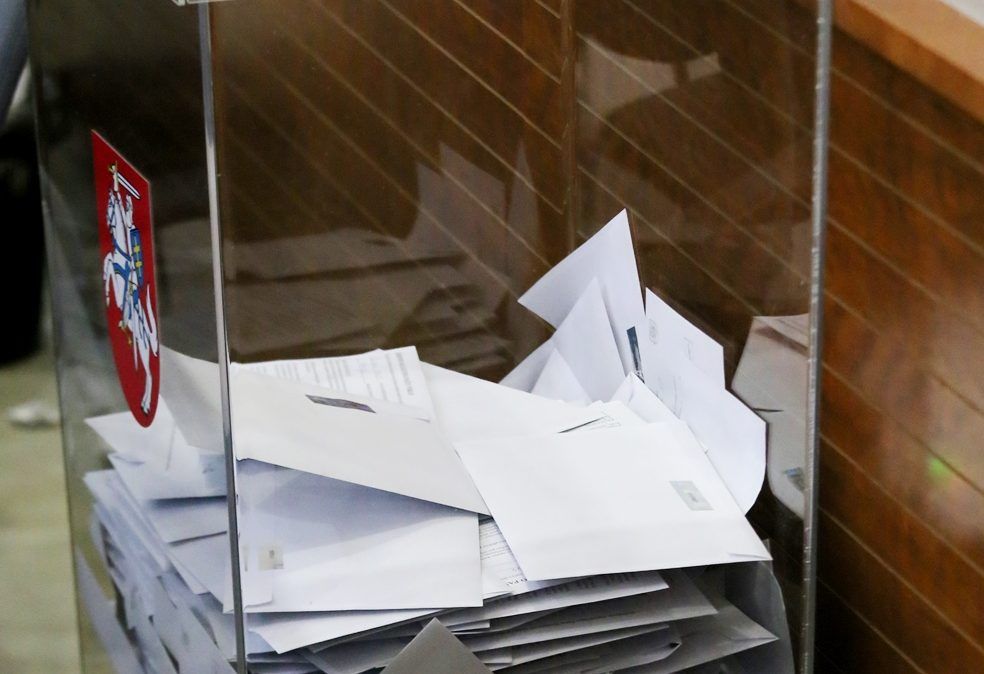
On 12 May 2024, a referendum on the retention of Lithuanian Citizenship acquired by birth upon acquisition of citizenship of another country friendly to Lithuania will be held.
If the citizens of Lithuania vote in favour thereof, the following statement to be excluded from the Lithuanian Constitution: “With the exception of individual cases provided for by law, no one may be a citizen of both the Republic of Lithuania and another state at the same time.” Such an amendment would enable the present Lithuanian citizens to enjoy the right to retain Lithuanian citizenship after acquiring a citizenship of another state friendly to Lithuania. In this case, dual (multiple) citizenship would be available.
Countries amicable to Lithuania:
- Member States of the European Union;
- Member States of the North Atlantic Treaty Organisation (NATO);
- Member States of the Organisation for Economic Co-operation and Development (OECD);
- Contracting parties to the Agreement on the European Economic Area.
Currently, 47 countries meet the criteria of European and transatlantic integration.
Regardless of membership in the aforesaid countries, citizens of certain countries would not be able to hold Lithuanian citizenship even after the amendment of the Lithuanian Constitution. These are the states that participate in unions or commonwealths established on the basis of the former Soviet Union, for instance, Russia, Belarus. Among those are also the countries that do not meet the criteria of European and transatlantic integration, for example, Argentina, Republic of South Africa, and others.
A list of countries upon acquisition of citizenship whereof the Lithuanian citizens may preserve the Lithuanian citizenship:
Ireland
Austria
Albania
Belgium
Bulgaria
Czech Republic
Denmark
Estonia
Greece
Spain
Italy
Cyprus
Croatia
Latvia
Poland
Lithuania
Luxembourg
Malta
The Netherlands
Portugal
France
Romania
Slovakia
Slovenia
Finland
Sweden
Hungary
Germany
United Kingdom
United States of America
Montenegro
Canada
Norway
North Macedonia
Turkey
Australia
Chile
Israel
Japan
Colombia
Costa Rica
Mexico
New Zealand
South Korea
Switzerland
Liechtenstein
The referendum on the retention of Lithuanian citizenship (dual, multiple citizenship) would be deemed conducted, if more than a half of all Lithuanian citizens eligible to vote support the amendment to the Constitution.
Voting procedure:
On 12 May 2024, during the referendum on the retention of Lithuanian Citizenship acquired by birth which will be held in tandem with the first round of presidential election, the voters will be given the ballot papers, in which they will be invited to reject a sentence in Article 12 of the Lithuanian Constitution: “With the exception of individual cases provided for by law, no one may be a citizen of both the Republic of Lithuania and another state at the same time”, which currently prevents from retaining the Lithuanian citizenship in case of acquiring a citizenship of another state.
Voters in favour of such an amendment to the Constitution shall vote by marking the YES box on the ballot paper, those against shall vote by marking NO box on the ballot paper.
Voting abroad:
Lithuanian citizens who reside abroad or will stay abroad during the time of referendum shall file a voter registration application by signing in to the electronic registration system at address www.rinkejopuslapis.lt
The voters shall have to specify in a voter registration application a method in which they prefer to vote in the mandatory referendum on the retention of Lithuanian citizenship to be held on 12 May 2024:
- By post, indicating a residential address in a foreign state;
- In person, arriving to vote at a particular diplomatic mission or consular post of the Republic of Lithuania on the appointed days and time.
MIGRATION LAW CENTER


On May 12, 2024, referendum on the retention of Lithuanian citizenship will be held in tandem with
the first round of the presidential election of the Republic of Lithuania.
Last time such referendum was held in 2019, however, there were not enough votes to adopt amendment to the Constitution. 71.78 percent of voters participating in the referendum have voted in favour of dual citizenship, i.e., 927,410 of the voting-eligible population, but there was a shortage of approx. 300,000 votes in order to adopt amendment to Article 12 of the Constitution. For the change of Article 12 of the Constitution to take effect, no less than a half of all the voters had to vote in favour thereof.
The referendum will raise the following question – whether Lithuanian citizens who have acquired Lithuanian citizenship by birth will be able to retain it upon acquisition of citizenship of another country friendly to Lithuania.
The Constitutional Court has clarified that only a referendum amending the Constitution can open up the possibility of dual citizenship if the citizenship of another country was acquired after the restoration of independence.
It will be proposed to approve the amendment of Article 12 of the Constitution, consolidating the following text: “Citizenship of the Republic of Lithuania is acquired by birth or on other grounds and procedures established by constitutional law; grounds and procedures for the loss of Lithuanian citizenship are also established by constitutional law.”
Currently, Article 12 of the Constitution provides for that “Citizenship of the Republic of Lithuania shall be acquired by birth and other grounds established by law. With the exception of individual cases provided for by law, no one may be a citizen of both the Republic of Lithuania and another state at the same time. The procedure for the acquisition and loss of citizenship shall be established by law.”
Due to various circumstances, most often family, work or other purposes, Lithuanians are forced to make a choice whether to renounce Lithuanian citizenship and accept citizenship of another state.
A question raised in the referendum talks about the possibility to retain Lithuanian citizenship in such a case when an individual acquires citizenship of that country which is friendly to Lithuania. Such countries include those belonging to the European Union (EU), European Economic Area, or to the Organisation for Economic Co-operation and Development.
It should be noted that at present such possibility of retaining citizenship is offered in 22 EU countries out of 27. There are only 5 countries, i.e., Lithuania, Estonia, the Netherlands, Slovakia, and Austria, that do not allow citizens to hold citizenship of another country at the same time.
MIGRATION LAW CENTER
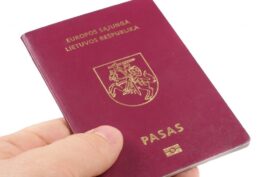
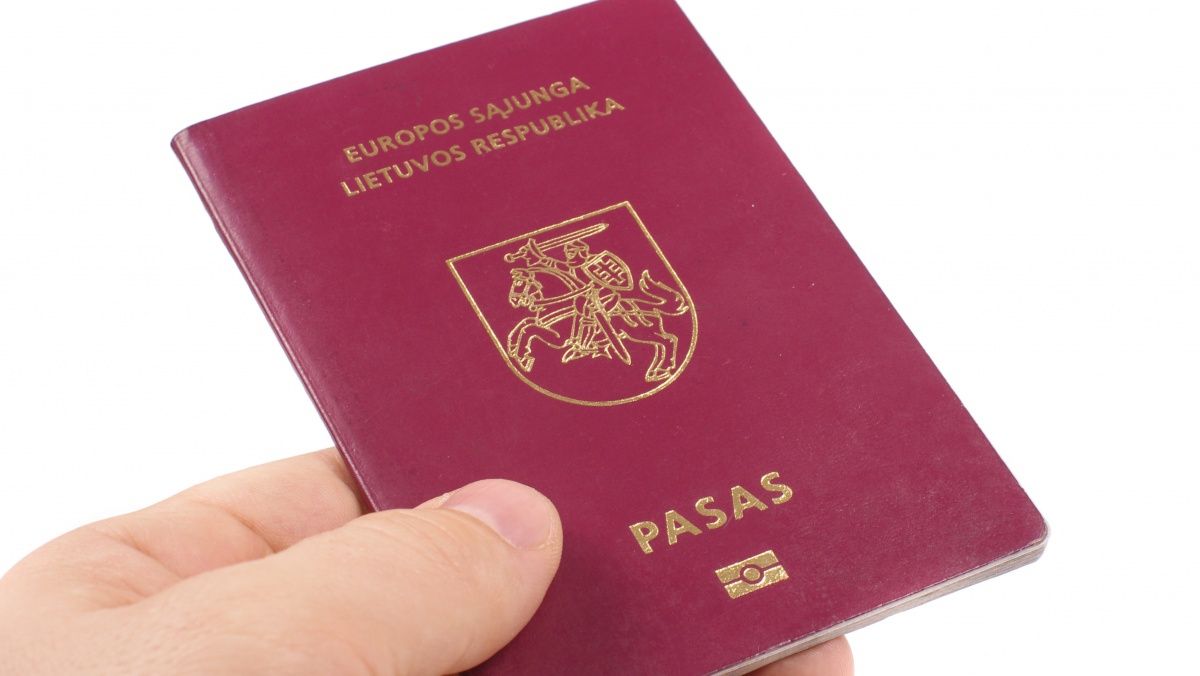
The Migration Department has renewed a service for issuing passports to Lithuanian citizens within 5 working days. This service is already available from 11 April 2023.
The provision of this service has been suspended for a long time as to the disruption of global supply chains because it was impossible to ensure a sufficient and smooth delivery of passport forms and to guarantee that this service will be provided on time, within 5 working days.
When the situation changed and the supply of passport forms began to proceed smoothly, the Migration Department, in cooperation with the Identity Documents Personalisation Centre (ADIC), has renewed a service of ordering, producing, and issuing Lithuanian passports within 5 working days.
The service fee for issuance of Lithuanian passport with 5 working days is EUR 57.
When ordering a Lithuanian passport within 5 working days, a person will be able to submit the application for issuance of a passport of the Republic of Lithuania in one division of the Migration Department and collect the produced Lithuanian passport in another division of the Migration Department, if necessary.
It should be noted that when ordering issuance of the Lithuanian passport within 5 working days, delivery service by courier will not be available, which is available when the Lithuanian passport is ordered as per regular procedure.
MIGRATION LAW CENTER


A temporary residence permit in Lithuania shall be withdrawn in the following cases:
- A permit has been obtained by fraudulent means;
- It turns out that the alien’s residence in the Republic of Lithuania can constitute a threat to national security, public policy or public health; data which were submitted in order to obtain a temporary residence permit are implausible; a person is included into a list of aliens prohibited from entering the Republic of Lithuania; there are grounds to believe that the alien has concluded a fictitious marriage in order to acquire a residence permit; a person has not enough funds to make a livelihood in Lithuania; the alien has no place of residence in Lithuania or does not use a living premise on the basis of rent or lending, or fails to submit an approved obligation of the natural or legal entity to provide him with living premise during the validity period of the permit; a person has no valid document approving health insurance; there are serious grounds to believe that he has committed a crime against humanity or a war crime or committed genocide; within a set period he failed to notify the established institution on the modification of documents evidencing his identity or citizenship, change of the marital status and alteration of the place of residence.
- there are serious grounds to believe that a fictitious marriage has been concluded;
- a marriage has been dissolved;
- the alien’s work permit in the Republic of Lithuania has been withdrawn;
- an employment contract with the alien has been terminated;
- it is established that the enterprise, agency or organisation whose owner or co-owner the alien is does not perform the declared activities and/or the alien’s stay in the Republic of Lithuania is not necessary for the pursuit of the aims and carrying out of the activities of the enterprise, agency or organisation;
- the alien’s lawful activities in the Republic of Lithuania have been terminated or completed;
- the alien terminates his studying, apprenticeship, participation in in-service or vocational training;
- the alien has been exempted from the duties of the guardian/custodian in accordance with the procedure established by the laws of the Republic of Lithuania or guardianship/custody has expired;
- the possibility emerged to expel the alien from the Republic of Lithuania where a temporary residence permit has been issued under subparagraph 8 of paragraph 1 of Article 40 of this Republic of Lithuania Law on the Legal Status of Aliens;
- the subsidiary or temporary protection granted to the alien has been withdrawn in the established order;
- the alien departs to reside or has been residing in a foreign country for a period longer than six months;
An authorized civil servant of the Migration Office shall send the alien’s file to the Migration Department for a decision making no later than within 2 working days from the day of emergence of grounds for which a temporary residence permit was withdrawn.
Having received the alien’s file, the authorized civil servant of the Migration Department shall examine and evaluate the information submitted and shall prepare a conclusion, on the basis whereof the director of the Migration Department or a civil servant authorized by him makes a decision to withdraw a temporary residence permit issued to the alien in accordance with established facts and norms of legislation.
In such case a decision is also made to withdraw a temporary residence permit, which has been issued to a family member of the alien, provided he obtained such permit as a family member of the alien.
The decision to withdraw a temporary residence permit shall be taken within 10 working days from the day of receipt of the alien’s file.
The decision shall, together with the alien’s file, be sent to the Migration Office which has been assigned to execute the decision no later than within 2 working days from the day this decision was made.
Having received the decision and the alien’s file, the authorized civil servant of the Migration Office must:
- immediately write an invitation to the alien to arrive to the Migration Office and indicate that he has to submit a travel document and a temporary residence permit therein;
- acquaint the alien with a decision taken with confirmation by signature upon his arrival at the office;
- mark with a special unit a temporary residence permit provided by the alien as invalid or put a stamp “ANNULLED” in the alien’s travel document, in the area of machine scanning of a temporary residence permit, if the decision is not appealed within 7 days from the day of decision making;
- resolve an issue of his legal status in Lithuania in accordance with the procedure established by legislation;
- enter data into a system on the invalidity of a temporary residence permit and make changes in the Register of Population about the withdrawal of data of the alien’s declared place of residence.
MIGRATION LAW CENTER
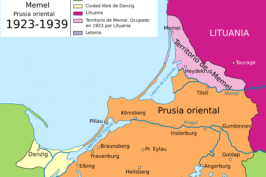
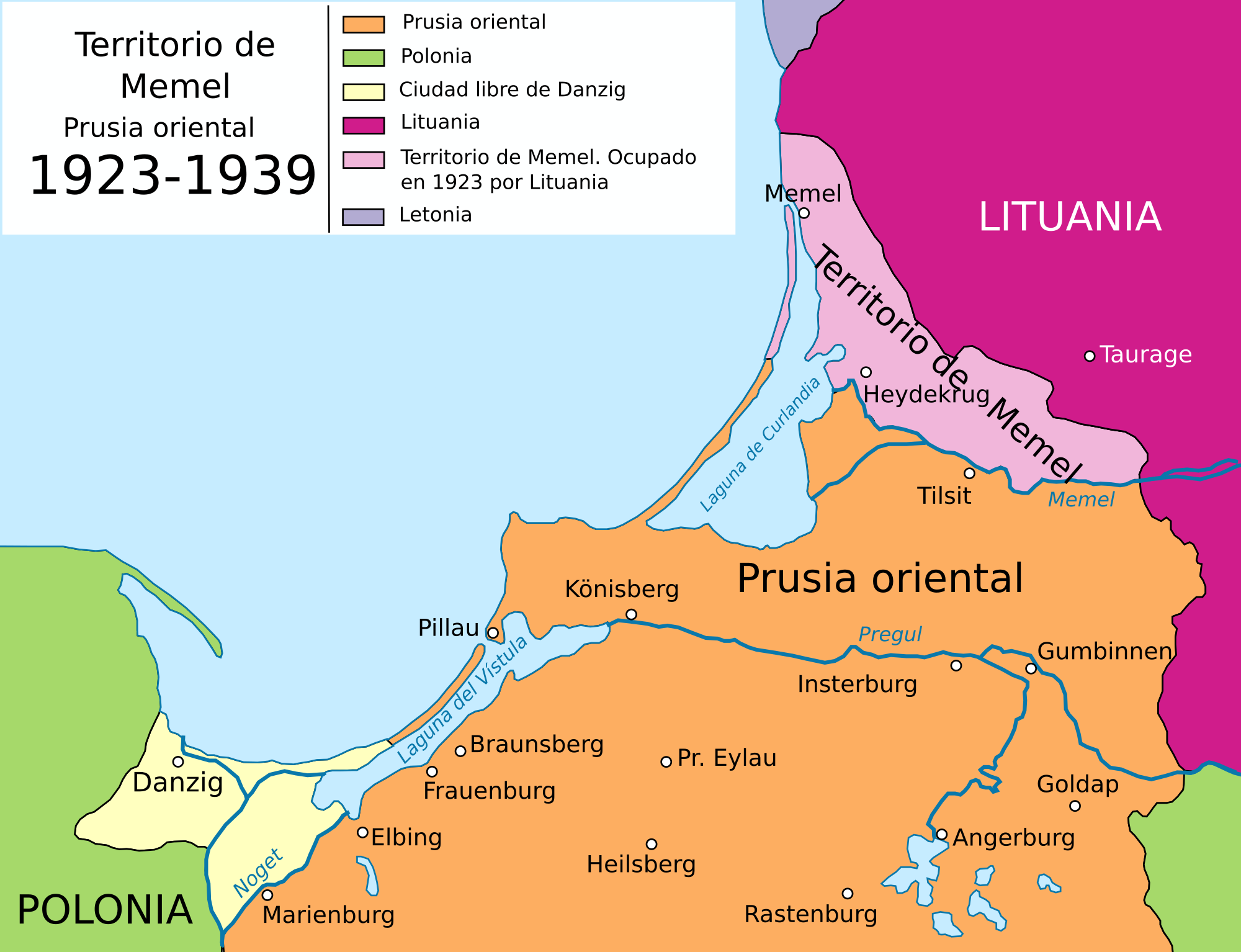
The Klaipėda Region was separated from Germany under Article 99 of the Treaty of Versailles of 28 June 1919. After the ratification of the Treaty of Versailles and its entry into force on 10 January 1920, execution of sovereign rights in the Klaipėda Region was transferred to the Triple Entente countries. On 16 February 1923, the Conference of Ambassadors recognized Lithuania’s sovereignty over the Klaipėda Region. In this way the Klaipėda Region became a part of the territory of Lithuania. Its legal status in the state of Lithuania has not been formally recorded yet, because under the Resolution of the Conference of Ambassadors of 16 February 1923 this should have been established in the Klaipėda Region Convention, which had to be prepared by the Conference of Ambassadors together with the representatives of Lithuania.
The Klaipėda Region Convention was signed in Paris on 08 May 1924. The Seimas of Lithuania ratified the Convention on 30 July 1924. Signatory States ratified it later. The Convention came into force on 25 August 1925, when ratification documents of England, Italy and Japan were deposited.
It has been established in Article 2 of the Convention that “the Klaipėda Region will form a unit of Lithuanian sovereignty, which will use the legislative, judicial, administrative and financial autonomy established by the Statute of the Supplement 1”.
Articles 8, 9 and 10 of the Klaipėda Region Convention determined which residents of the Klaipėda Region acquire Lithuanian citizenship and established the procedure of acquisition thereof.
According to part 1 of Article 8 of the Convention, Lithuanian citizenship is acquired ipso facto by those “former German citizens who, upon ratification of this Convention by Lithuania, would have been over 18 years of age and who would definitely have lived in the Klaipėda Region at least since 10 January 1920”.
Germany has committed to recognize the residents of the Klaipėda Region as citizens of that country, to which the Region will be joined. Therefore, the residents of the Klaipėda Region, upon acquisition of Lithuanian citizenship, shall lose German citizenship.
The Convention has also provided for the possibility of opting for Lithuanian citizenship. Opting for Lithuanian citizenship could be carried out by: a) each person who has born in the Klaipėda Region and lived there for more than ten years, who, upon ratification of this Convention by Lithuania, would have been over 18 years of age; b) each person who, upon ratification of this Convention by Lithuania, would have been over 18 years of age and who got a permanent residence permit from the Intereliant Administration, provided he has settled in the Klaipėda Region no later than on 01 January 1922 (part 2 of Article 8).
The opting for Lithuanian citizenship could be implemented within six months from the day Lithuania will ratify this Convention. When opting for Lithuanian citizenship, persons lost citizenship of other state.
Under Article 10 of the Convention, married women used to acquire the same citizenship as their husbands, and children under 18 years old used to acquire the same citizenship as of their parents.
The decisive period for a change of citizenship and reaching 18 years old is 30 July 1924. Until that date the residents of the Klaipėda Region (not including aliens) were considered to be German citizens.
“The Rules for issuing passports to citizens of the Klaipėda Region” were intended for implementation of the provisions of the Klaipėda Region Convention regarding citizenship and option agreement. Attention should be drawn to the fact that a name of the Rules is not legally correct, as it can be assumed that the Klaipėda Region citizenship and citizens have already been there. Neither the Klaipėda Region Convention, nor the option agreement provided for the citizenship of the Klaipėda Region, passports were also issued not to citizens of the Klaipėda Region, but to those who lived in the Klaipėda Region, who were immediately regarded as citizens of Lithuania under the Convention or were opted for Lithuanian citizenship. Such a provision was also consolidated in Article 1 of the aforementioned Rules, wherein its was established that “passports are issued only to citizens of Lithuania”.
According to Article 34 of the Klaipėda Region Statute, passports for the residents of the Klaipėda Region were issued by the Regional Directory, however, not on behalf of itselt, but in the name of the Republic of Lithuania and in accordance with the Rules laid down by the Government of Lithuania.
It has been established in the Rules that a person applying for the issue of a passport “must prove to the issuing institution that he has acquired Lithuanian citizenship”. The acquisition of citizenship must have been proven by documents. In individual cases, when a person was unable to submit documents specified in the Rules or circumstances or data indicated in those documents had to be supplemented or explained, “evidence of local residents characterized as reliable in a small rural distrist or town approved by their own signatures” could be accepted.
The Klaipėda Region Convention and the Option Agreement provided for which persons are considered to be Lithuanian citizens and which persons are entitled to opt for Lithuanian citizenship. Persons meeting the requirements established by the Convention had to be considered as Lithuanian citizens (they should have been regarded as Lithuanian citizens). Similarly, persons who opted for Lithuanian citizenship should have been considered Lithuanian citizens. The persons specified in the Convention and the Option Agreement could not be subject to the requirements established in the Provisional Law on Lithuanian Citizenship.
Nevertheless, this did not mean that the Law on Citizenship could not establish norms according to which other persons residing in the Klaipėda Region, who were not mentioned in the Convention and the Option Agreement, would be considered Lithuanian citizens or would acquire Lithuanian citizenship.
On 20 March 1939, Germany threatening by force presented its ultimatum to Lithuania to return the Klaipėda Region to Germany.
On 22 March 1939, the Treaty on the Transfer of Klaipėda Region between the Republic of Lithuania and the German State was signed, Article 1 whereof indicated that “From this day, the Klaipėda Region separated from Germany by the Treaty of Versailles is reunited with the German Reich.“
The Treaty between the Republic of Lithuania and the German Reich regarding citizenship of residents of Klaipėda was concluded on 08 July 1939. Under Article 1 hereof, “Lithuanian citizen who
- on 30 July 1924 or by opting Lithuanian citizenship has lost German citizenship, or
- is of German nationality and acquired Lithuanian citizenship by way of opting or birth, legitimacy or marriage, who derived their citizenship from indicated persons No. 1 and No. 2,
shall be considered as acquired German citizenship on 22 March 1939″.
These provisions were not applied to those persons of Lithuanian nationality who, before the signing of this Treaty, transferred their place of residence from the Klaipėda Region to Lithuania. The place of residence was “considered as transferred, if a person has left his permanent place of residence without any intention to return thereto” (part 2 of Article 1).
Therefore, under the Treaty, those residents of the Klaipėda Region, who until the moment of signing the Treaty, i.e. until 08 July 1939, left the Klaipėda Region without any intention to return thereto and settled in the Great Lithuania, were considered as not lost Lithuanian citizenship, provided Lithuanian state institutions will recognize that they are of Lithuanian nationality.
The Treaty provided for that persons of Lithuanian nationality, who have acquired German citizenship according to Article 1 of this Treaty, may until 31 December 1939 apply for the Consulate General of Lithuania in Klaipėda that they want to have Lithuanian citizenship. The Lithuanian citizenship was considered acquired after the issue of certificate that the application has been granted (Article 2).
Under the Treaty, a person could not have both Lithuanian and German citizenship at the same time: if in accordance with the provisions of the Treaty a person acquired citizenship of one state, he ipso facto lost the citizenship of another state (Article 3).
Attention should be drawn to the fact that when deciding whether a person is Lithuanian, not only his origin, but also national attitude was taken into account.
In order to prevent the use of Lithuanian passports for persons who were not considered to be citizens of Lithuania in accordance with the provisions of the Treaty, the Rules established that the internal or foreign passports or documents issued instead of them by the Klaipėda Regional Directory or its offices or the Klaipėda Regional Governorate, notwithstanding the expiry date specified therein, have been “withdrawn” since 01 January 1940.
MIGRATION LAW CENTER


The Lithuanian Parliament Seimas endorsed revision of the Law on Citizenship expanding the possibilities for children born abroad to Lithuanian parents to acquire Lithuanian citizenship.
Until now, it has been established in Paragraph 1 of Article 7 and Section 10 of Article 45 of the Law on Citizenship that children of Lithuanian parents who acquired citizenship of another state by birth between 11 March 1990 and 22 July 2008, can apply for Lithuanian citizenship before they turn 18 themselves or this may be made by their legal representatives. According to the provided exception, persons who reached the age of majority no longer have such a possibility to apply for the Lithuanian citizenship.
The adopted amendments revoked a term stipulated in Section 10 of Article 45 of the Law on Citizenship to file an application until the child reaches the age of 18.
The newly adopted amendments broaden the right to apply for Lithuanian citizenship for adult persons, provided they held citizenship under the aforesaid exception. From now on, Lithuanians residing abroad may file applications to preserve citizenship at Lithuanian diplomatic missions or consular posts.
This change rebounds on requirements of the foreign Lithuanians to abolish the present restriction. Some persons, despite their wish to be Lithuanian citizens, have lost this opportunity due to ignorance of the law. Therefore, this amendment to the law is of considerable importance to foreign communities until constitutional changes take place.
MIGRATION LAW CENTER
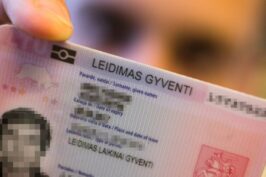
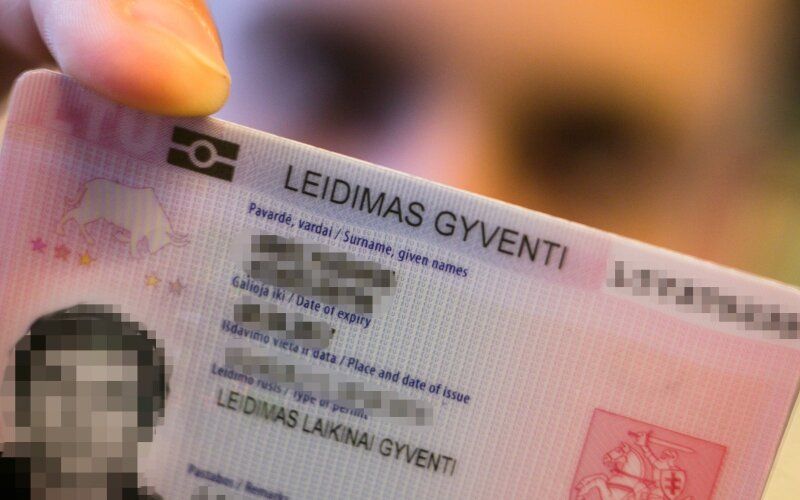
From 05 April 2023, the Migration Department has started to provide additional document collection services for foreigners.
Now when applying for issuance of a residence permit in Lithuania, a certificate confirming the right of an EU citizen to reside in Lithuania, or a residence permit card of a family member of an EU citizen, a foreign national will be able to collect the produced card at a different division of the Migration Department than the one where the application was submitted.
Until now, it was possible to collect such documents only at the division where the person submitted the application for the issue or replacement of the residence permit.
The foreigners will be able to express their wish to collect a document from another division by filling in the application for the issue of the document at MIGRIS system or upon arrival at the customer service unit of the Migration Department.
One more novelty is the possibility for foreigners to choose the delivery of the produced residence permit card by courier at their preferred address. Until now, such a service was available only to Lithuanian citizens, who wished to receive the ordered personal documents.
MIGRATION LAW CENTER


On 04 April 2023, the Seimas of Lithuania adopted the Republic of Lithuania Law on Imposing Restrictive Measures Regarding the Military Aggression Against Ukraine No XIV-1868, which is aimed at ensuring the national security and foreign policy interests of the Republic of Lithuania.
The members of the Seimas have decided that a possibility to acquire citizenship of the Republic of Lithuania will not be restricted both to Russian and Belarusian nationals.
After voting, the Seimas relinquished one of the substantive provisions of the aforementioned draft law, which establishes a restriction to suspend the acceptance of applications and decisions concerning Lithuanian citizenship from Russian and Belarusian nationals. After consideration of the draft law, the Committee of National Security and Defence planned to suspend the acceptance of applications and decisions regarding Lithuanian citizenship from Russian nationals, except for cases where citizenship is acquired through naturalization, or a person has a right to reinstate citizenship, or the person’s application for granting citizenship under the simplified procedure has already been accepted. Finally, the Seimas of Lithuania has decided not to apply any restriction at all as to acquisition of citizenship of the Republic of Lithuania.
Restrictions on Russian and Belarusian nationals have been entrenched in Article 3 of the Republic of Lithuania Law on Imposing Restrictive Measures Regarding the Military Aggression Against Ukraine No XIV-1868 dated 04 April 2023, wherein the following restrictive measures are provided for:
1. The acceptance of visa applications from Russian and Belarusian nationals at the Lithuanian visa services abroad shall be suspended, except for cases where the Ministry of Foreign Affairs of the Republic of Lithuanian acts as an intermediary in the process of submitting visa applications.
2. The acceptance of the applications from Russian and Belarusian nationals for the issue of national visas through a foreign external service provider shall be suspended.
3. The acceptance of the applications from Russian nationals for the issue of a temporary residence permit in Lithuania through a foreign external service provider abroad shall be suspended, except for Russians where the issuance process is mediated by an institution authorized by the Government of the Republic of Lithuania in the cases laid down by the Government of the Republic of Lithuania, and in Lithuania, unless Russian nationals hold a valid national or Schengen visa issued by the Lithuanian visa service abroad or in Lithuania, or a residence permit in Lithuania, or a residence permit issued by another EU Member State.
4. Movement of Russian nationals across the external border of the European Union to the territory of the Republic of Lithuania shall be subject to individual additional detailed inspection due to a threat posed by their entry to Lithuania’s national security, public order, public policy, domestic security, public health or international relationship, except for cases provided for by law.
5. The receipt of applications of Russian and Belarusian nationals for the status of an e-resident of Lithuania shall be suspended; and the validity of valid electronic identification certificates and qualified certificates for electronic signature entered in the e-resident’s electronic identification and electronic signature means issued to Russian and Belarusian nationals shall be suspended, unless Russian and Belarusian nationals hold a permanent or temporary residence permit in Lithuania.
6. The right of Russian nationals and legal entities established or controlled by them, as defined in the Republic of Lithuania Law on Competition, to acquire, by the right of ownership, an immovable property located in the territory of Lithuania shall be suspended, except for cases where a Russian national holds a temporary or permanent residence permit in Lithuania, or where a Russian national acquires the right of ownership to immovable property by inheritance.
7. The right of Russian and Belarusian nationals to import/export cash in the Ukrainian Hryvnia to/from the territory of Lithuania shall be suspended.
MIGRATION LAW CENTER
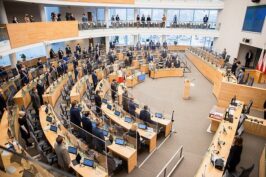
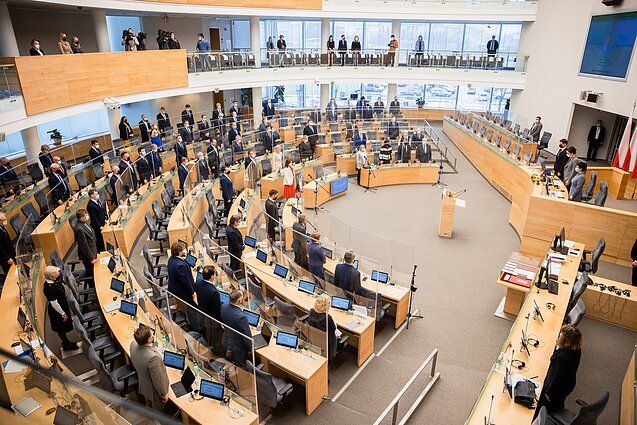
The Seimas has adopted after consideration the draft law on the amendment of the Law on International Sanctions No XIVP-2493 and the accompanying draft law on imposing restrictive measures in connection with the military aggression against Ukraine No XIVP-2496(2) which propose to determine the additional restrictive measures in order to protect the Lithuania’s national security and foreign policy interests.
Restrictive measures for citizens of Russia and Belarus:
1. Suspension of acceptance of the applications from Russians and Belarusians to issue a visa at Lithuanian visa services abroad, except for cases where the Ministry of Foreign Affairs of the Republic of Lithuanian acts as an intermediary in the process of submitting an application to issue a visa;
2. Cessation of acceptance of the applications from Russians and Belarusians to issue national visas through a foreign external service provider;
3. Suspension of acceptance of the applications from citizens of Russia and Belarus to issue a temporary residence permit in Lithuania through a foreign external service provider (except for foreigners who apply for a residence permit through the body authorized by the Lithuanian government) and in Lithuania, except for those Russians and Belarusians who are the holders of a valid national or Schengen visa issued by the Lithuanian visa service abroad or in Lithuania, or those holding a residence permit in Lithuania, as well as for those having a residence permit issued by other member state of the European Union;
4. Movement of Russian citizens across the external border of the European Union to the territory of Lithuania shall be subject to individual additional detailed inspection due to a threat posed by their entry to Lithuania’s national security, public order, public policy, internal security, public health or international relationship, except for cases where such persons comply with the provisions of arrival stipulated in the Schengen Borders Code and at least one of the additional conditions proposed by law;
5. Discontinuation of acceptance of the applications from citizens of Russia and Belarus for granting Lithuanian e-resident status and cessation of validity of electronic identification certificates and qualified electronic signature certificates entered in the means of electronic identification and electronic signature of the e-resident of Lithuania, issued to citizens of Russia and Belarus;
6. Cessation of acceptance of the applications for Lithuanian citizenship from Russians and Belarusians and decision-making of granting Lithuanian citizenship, except for cases where the application for renunciation of Lithuanian citizenship is submitted or where a decision is made concerning the loss of Lithuanian citizenship after renunciation of citizenship of the Republic of Lithuania or acquisition of citizenship of another state;
7. The public announcement of data on economic ties of the legal entities established in Lithuania, controlled or related to Lithuanian politicians, that are maintained with Russia and Belarus, is insured after the entry into force of this law;
8. Suspension of the right of Russians and their established or controlled legal entities, as defined in the Republic of Lithuania Law on Competition, to acquire by title of ownership a real estate located in the territory of Lithuania, except for cases where a citizen of Russia has been issued with a temporary residence permit in Lithuania pursuant to Article 1301(2) of the Republic of Lithuania Law on the Legal Status of Foreigners.
This restrictive measure does not propose to abolish the possibility of obtaining citizenship of Lithuania, but only temporarily suspend the acceptance of applications and the adoption of decisions on admission to Lithuanian citizenship.
This measure will not affect the acquisition of Lithuanian citizenship by right of birth, and persons of Lithuanian origin or persons eligible for restoration of citizenship of the Republic of Lithuania would be able to come to Lithuania and submit applications for issuing a permanent residence permit. The ability of persons of Lithuanian origin or persons eligible for restoration of Lithuanian citizenship to reside in Lithuania will not be restricted.
The applications of persons of Lithuanian origin and persons eligible for restoration of citizenship of the Republic of Lithuania for certificates approving Lithuanian descent and certificates approving eligibility for restoration of citizenship will be accepted and processed in a standard procedure.
MIGRATION LAW CENTER


From the beginning of 2023, a new service will come into force together with amendments to the Republic of Lithuania Law on the Legal Status of Foreigners, namely, an issue of temporary residence permits in Lithuania through an external service provider.
The Migration Department has chosen VFS Global bureaus as the provider of such service, through which documents regarding visas were also submitted until now.
The following amendment to Article 28 of the Republic of Lithuania Law on the Legal Status of Foreigners concerning the issue, change and revocation of the residence permit has been adopted:
A foreigner who is staying outside the Republic of Lithuania shall lodge an application for the issue of a temporary residence permit in Lithuania through the external service provider selected by the Migration Department. A foreigner who is legally staying in the territory of the Republic of Lithuania shall submit an application for the issue of a residence permit with the Migration Department, however, the lodging of such an application shall not entitle the foreigner to stay in the territory of the Republic of Lithuania pending the examination of the foreigner’s application and a taking of a decision thereon.
Foreigners will be able to submit applications for temporary residence permits in Lithuania in 34 different foreign countries, where such bureaus will be open. The Migration Department also provides a list of such countries: Albania, Argentina, Armenia, Australia, Azerbaijan, Brazil, Canada, Sakartvel, India, Israel, Japan, Jordan, Kazakhstan, Kyrgyzstan, Lebanon, Malaysia, Moldova, Nepal, New Zealand, Philippines, Singapore, Republic of South Africa, South Korea, Sri Lanka, Taiwan, Tajikistan, Thailand, Turkey, Ukraine, United Arab Emirates, United Kingdom, United States of America, Uzbekistan, Venezuela.
VFS Global bureaus in the specified countries will be authorized to accept from persons their applications for temporary residence permits and documents which are mandatory to be submitted herewith. Moreover, individuals will have an opportunity to provide their biometric data which will be transferred to the specialists at the Migration Department who take decisions thereon.
It should be noted that the documents submitted together with an application and procedure for legalization thereof remains the same.
The estimated terms of examination of the applications lodged while staying abroad and decision-making thereof – 1-3 months.
When submitting an application, a foreigner will be able to choose where he/she will collect the produced residence permit card. After the decision is taken to issue a temporary residence permit, the produced card will be able to be sent abroad, so that the foreigner could arrive in Lithuania with an already valid temporary residence permit. Thereby, foreigners will not have to additionally apply for visa. Nevertheless, it will take extra time to send a document abroad and a time during which the external service provider contacts the foreigner in order to hand over a document to him/her.
Those foreigners who need no visas to arrive in Lithuania (either having a valid visa, or enjoying a visa-free regime) will be able to order a temporary residence permit card while being abroad and collect it in Lithuania, provided there is a need to come earlier.
It is worth mentioning that foreigners will be able to apply to VFS Global bureaus regardless of the fact whether they reside in that country.
The Migration Department has clarified that, as long as the state of emergency applies, national visas D shall not be issued to citizens of Russia and Belarus who are staying abroad. Besides, citizens of such countries will not be able to lodge applications for the issue of temporary residence permits through an external service provider.
MIGRATION LAW CENTER
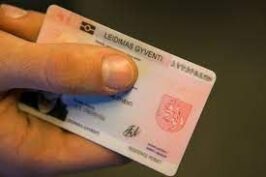
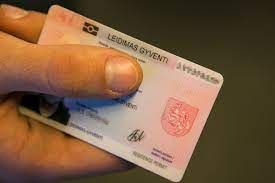
The Lithuanian Migration Department, while improving the quality of the provided electronic services and the operation of the information system MIGRIS, has introduced an improvement.
This novelty will allow a foreigner, who has temporarily departed from Lithuania and has lost, damaged, or otherwise lost his/her temporary residence permit card in Lithuania, to apply for reissuance of this permit through the external service provider VFS Global.
Firstly, a foreigner will have to log in to his/her MIGRIS account, submit a notice on the lost document and fill out an application for processing a new temporary residence permit. When filling out the application, the foreigner will have to specify the branch of the external service provider, where he/she intends to arrive to submit the application and afterwards collect the issued card.
Currently, the aforesaid services are provided at VFS Global offices in 34 world countries:
Albania, Argentina, Armenia, Australia, Azerbaijan, Brazil, Canada, Kazakhstan, India, Israel, Japan, Jordan, Kazakhstan, Kyrgyzstan, Libya, Malaysia, Moldova, Nepal, New Zealand, Philippines, Singapore, Republic of South Africa, South Korea, Sri Lanka, Taiwan, Tajikistan, Thailand, Turkey, Ukraine, United Arab Emirates, United Kingdom, United States of America, Uzbekistan, Venezuela.
Applications regarding processing of a new temporary residence permit will be examined within 10 working days and a foreigner will be informed about the issued permit in a separate notice. The produced temporary residence permit will be sent to the VFS Global office by courier; therefore, it should be noted that the forwarding of a document itself to a foreign country may take additional time.
MIGRATION LAW CENTER
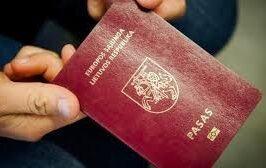
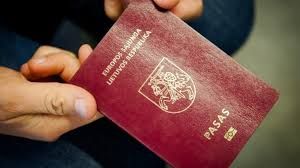
From 01 October 2023, the Migration Department has implemented a new customer service procedure at all its territorial units. Citizens of Lithuania who wish to order a new Lithuanian passport or identity card from now on will have to book their visits to the customer service departments in advance online or by phone. Service in a live queue will be provided only in exceptional cases.
Such changes are undertaken in order to improve customer service, effective management of visit flows and to effectively allocate capacity to serve these flows.
Old-age pensioners and persons with disabilities will be exempt from the requirement of prior registration. They will be served without a queue as soon as a free customer window appears. Exceptions will also apply to Lithuanian citizens who wish to order and obtain a passport as a matter of urgency on the same day.
It should be noted that there is no longer need for booking a visit for those persons who arrive to collect the produced documents.
Visits to customer service departments of the Migration Department may be booked through the migration information system MIGRIS on the portal www.migracija.lt and by phone +370 707 67 000 (or by calling from abroad +370 5 271 7112).
MIGRATION LAW CENTER


The Migration Department has announced new fees for services provided by the Department. Under 26 July 2023 Resolution of the Government of the Republic of Lithuania, the Migration Department will charge the state fees of new sizes for the services rendered from the 28th of July. The published updated list of the state fees is provided hereunder:
|
Name of the fee |
New size of the fee |
|
Issuance and renewal of a certificate of the right of temporary or permanent residence in the Republic of Lithuania |
10.00 |
|
Issuance of a temporary or permanent residence card of a family member of a Union citizen |
60.00 |
|
Approving and examination of application for issuance of temporary or permanent residence card of a family member of a Union citizen, taking a decision, issuance (non-issuance) of the card |
40.00 |
|
Issuance of a temporary residence permit in the Republic of Lithuania in general order |
160.00 |
|
Issuance of a temporary residence permit in the Republic of Lithuania in urgent order |
320.00 |
|
Renewing a temporary residence permit in the Republic of Lithuania in general order |
160.00 |
|
Renewing a temporary residence permit in the Republic of Lithuania in urgent order |
320.00 |
|
Processing of a new temporary residence permit in general order |
45.00 |
|
Processing of a new temporary residence permit in urgent order |
90.00 |
|
Issuance of a permit of a long-term resident of the Republic of Lithuania to reside in the European Union (permanent residence permit) in general order |
160.00 |
|
Issuance of a permit of a long-term resident of the Republic of Lithuania to reside in the European Union (permanent residence permit) in urgent order |
320.00 |
|
Renewing a permit of a long-term resident of the Republic of Lithuania to reside in the European Union (permanent residence permit) in general order |
45.00 |
|
Renewing a permit of a long-term resident of the Republic of Lithuania to reside in the European Union (permanent residence permit) in urgent order |
90.00 |
|
Issuance and renewal of an identity card in general order |
10.00 |
|
Issuance and renewal of an identity card in urgent order within 5 working days |
60.00 |
|
Issuance and renewal of an identity card in urgent order within 1 working day |
100.00 |
|
Issuance and renewal of a passport of the Republic of Lithuania in general order |
50.00 |
|
Issuance and renewal of a passport of the Republic of Lithuania in urgent order within 5 working days |
100.00 |
|
Issuance and renewal of a passport of the Republic of Lithuania in urgent order on the same workday |
200.00 |
|
Issuance or renewal of a stateless person’s travel document |
50.00 |
|
Issuance or renewal of a stateless person’s travel document in urgent order |
100.00 |
|
Issuance or renewal of an alien’s passport |
65.00 |
|
Issuance or renewal of a refugee travel document |
50.00 |
|
Issuance or renewal of a refugee travel document in urgent order |
100.00 |
|
Application to issue a certificate confirming the right to reinstate the citizenship of the Republic of Lithuania |
50.00 |
|
Approving and examination of an application to change a certificate confirming the right to reinstate the citizenship of the Republic of Lithuania, taking a decision, and issuance (non-issuance) of the changed certificate |
25.00 |
|
Approving and examination of an application to issue a certificate confirming Lithuanian descent, taking a decision, and issuance (non-issuance) of this certificate |
50.00 |
|
Approving and examination of an application to change a certificate confirming Lithuanian descent, taking a decision, and issuance (non-issuance) of the changed certificate |
25.00 |
|
Examination of applications to issue national visa, taking decisions to issue or deny a national visa in the Republic of Lithuania |
140.00 |
|
Examination of an application concerning reinstatement of LT citizenship |
120.00 |
|
Examination of an application concerning granting LT citizenship by way of simplified procedure |
120.00 |
|
Examination of an application concerning granting LT citizenship by way of naturalization |
120.00 |
|
Examination of an application concerning granting LT citizenship by way of exception |
120.00 |
|
Examination of an application concerning restoration of LT citizenship |
120.00 |
|
Examination of an application concerning renouncement of LT citizenship |
60.00 |
|
Examination of an application regarding the preservation of LT citizenship |
90.00 |
|
Examination of applications and taking decisions regarding changing employer or a job function with the same employer |
100.00 |
MIGRATION LAW CENTER


Citizens of the Republic of Lithuania, whose real property was nationalised under the laws of the USSR (Lithuanian SSR), or which was otherwise unlawfully made public, can apply due to the restoration of rights of ownership to the existing real property, which is regulated by the Republic of Lithuania Law on the Restoration of the Rights of Ownership of Citizens to the Existing Real Property.
This law shall also regulate the procedure and conditions of the restoration, as well as the recognition of continuity of the restoration of the rights of ownership to the citizens of the Republic of Lithuania to the real property, restoration whereof has been initiated according to the Law of the Republic of Lithuania on the Procedure and Conditions of Restoration of the Rights of Ownership to the Existing Real Property, while evaluating the established objective public economic relations.
Ownership rights to the real property shall be restored to the following citizens of the Republic of Lithuania:
- the owner of the property;
- the persons to whom the now-deceased owner of the property left his property by a will, irrespective of the fact that there is no evidence in the will of a devise of land or other real property, and upon their death – their spouses, parents, children or the spouses and children of such persons;
- the spouse, parents, children, if they are citizens of the Republic of Lithuania, of the owner of the property who died without making a will or emigrated abroad during the occupation period (1939-1990) and there received the citizenship of another country, upon losing the citizenship of the Republic of Lithuania – to a part of the existing real property falling to them;
- the spouse of the now-deceased child of the owner of the property – to a part of the existing real property falling to the deceased;
- the persons to whom the property is transferred by a will (holographic will) without adhering to the form and manner established by law or by a contract (purchase-selling, donation or any other written document), as well as the persons to whom successors to the rights of ownership left the property by a will. Citizens who wish to restore the rights of ownership must apply to the court regarding the establishment of a fact of legal significance.
These citizens can restore rights of ownership to the following real property:
- land;
- forests;
- water bodies;
- structures used for economic and commercial purposes together with their appurtenances;
- residential houses together with their appurtenances.
Applications for the restoration of the rights of ownership to the land, forest and water bodies shall be examined by the National Land Service under the Ministry of Agriculture of the Republic of Lithuania.
Rights of ownership to residential houses, their parts, apartments, structures used for economic and commercial purposes shall be examined by the director of municipal administration or other institution authorized by the Government in accordance with the procedure established by the Government.
It is established in part 1 of Article 10 of the Republic of Lithuania Law on the Restoration of the Rights of Ownership of Citizens to the Existing Real Property that applications for the restoration of the rights of ownership to the existing real property had to be submitted until 31 December 2001. It is stipulated in part 4 of the same Article that together with an application for the restoration of the rights of ownership, a document certifying citizenship shall be submitted and the documents confirming the rights of ownership and relation by blood with the owner shall be enclosed.
Citizens, who submitted applications for the restoration of the rights of ownership to the existing real property, but failed to provide the documents confirming the rights of ownership and relation by blood with the owner, had to submit such documents until 31 December 2003.
A missed deadline can be renewed for those citizens, who missed a set deadline due to reasons which are recognized by the Court as significant.
A provision is formulated in the Law that all documents specified had to be submitted together with an application for the restoration of the rights of ownership, and only the documents confirming the rights of ownership and relation by blood with the owner might be submitted later.
In the opinion of the Court, the Law does not provide for that a document certifying citizenship, which has not been submitted together with an application for the restoration of the rights of ownership within a term indicated by Law, should be submitted later, i.e. within a term during which the documents confirming the rights of ownership and relation by blood with the owner can be submitted. Citizenship of the Republic of Lithuania is one of those assumptions established by Law, the signs whereof a person must comply with in order to be recognized as a suitable subject of legal relations of the rights of ownership to the existing real property. Hereby, a person had to acquire citizenship of the Republic of Lithuania and also to become a suitable subject until 31 December 2001.
Therefore, the rights of ownership to the existing real property cannot be restored to persons who did not have and failed to submit to certain institutions a document certifying citizenship within terms established by law for the submission of applications for the restoration of the rights of ownership.
– the rights of ownership shall be restored only to citizens of the Republic of Lithuania, if applications thereof for the restoration of the rights of ownership have been submitted until a certain term which may be renewed by the Court, provided it had been missed due to important reasons;
– the rights of ownership shall not be restored to the persons having no citizenship of the Republic of Lithuania, such persons shall not be entitled to submit applications for the restoration of the rights of ownership until the aforementioned term, and the Court cannot renew this term for them.
Documents which must be submitted for the restoration of rights of ownership:
– application;
– documents approving Lithuanian citizenship;
– Documents confirming the rights of ownership and relation by blood with the owner. Documents confirming the rights of ownership can be as follows: extracts from mortgage books or asset transfer agreements, judicial decisions, property nationalisation acts, wills or other documents established by the Government.
A citizen must submit documents confirming the rights of ownership and relation by blood with the owner to the Land Use Department of the County Governor’s Administration according to the location of land, forest, water bodies.
Applications of citizens shall be examined and a decision regarding the restoration of the rights of ownership shall be taken within 6 months from the date of submission of documents. Decisions taken may be appealed to the court within 30 days from the day of delivery of decisions.
MIGRATION LAW CENTER

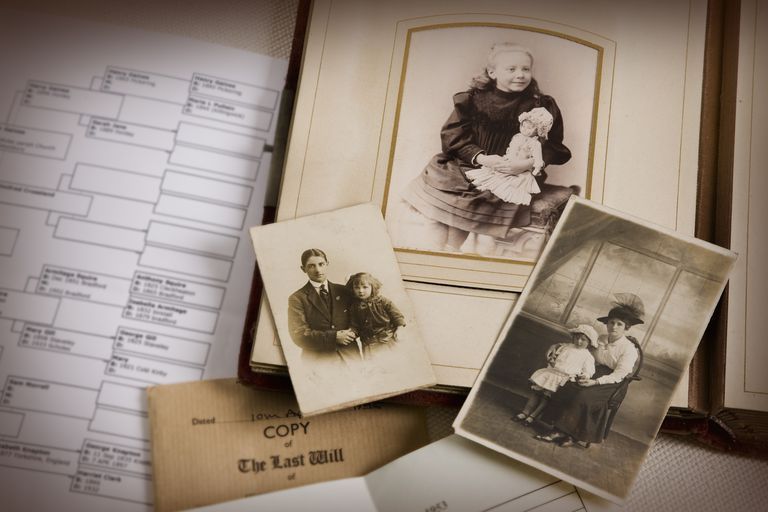
ANCESTRY www.ancestry.com
Ancestry is a program that, for a certain fee, provides you with an opportunity to find out the history of your family’s genealogical tree.
By providing information about several of your family members, the program will select what your ancestors could be. The more family members will be added, the more hints you will receive about your ancestors.
The program has access to various records around the world that are difficult to access for yourself, therefore, it can greatly facilitate searches in order to find out the history of your family.
You will also be able to find out the uniqueness of yourself, where you came from, to what ethnic group your ancestors belonged and many other interesting facts.
JEWISHGEN www.jewishgen.org
Jewishgen is a non-profit organization, which committed to ensure the continuity of the Jews for the present and future generations and to preserve Jewish history and heritage.
The website of Jewishgen organization provides thousands of databases, tools for research and other resources to help find Jewish ancestors and family members. All databases and tools are easily accessible to everyone.
On the page of this organization you can use Jewishgen’s multifunctional search, which embraces the following databases containing over 2 million entries from the entire Lithuania:
• JewishGen Family Finder – more than 38,000 entries provided by Jewish genealogists investigating families in Lithuania.
• JewishGen Online Worldwide Burial Registry – more than 38,000 entries of the Register of Deceased Persons from Lithuania and Lithuanian Jewish Cemeteries all over the world.
• Yizkor Book Necrologies – 22,000 entries from the lists of Holocaust martyrs in Yizkor’s books about cities in Lithuania.
• HaMagid Lithuanian Donors 1871-72 – Hebrew periodical presenting 5000 names of victims in the Persian period of famine in 1871-1872.
• HaMelitz Lithuanian and Latvian Donors – Hebrew periodical presenting nearly 20,000 names of victims of the Jews of Lithuania and Latvia from 1893 to 1903.
• Lithuanian Medical Personnel – Information on 874 Jewish medical personnel found in two Lithuanian medical catalogues in 1923 and 1925.
• Sugihara Database – 2,139 Lithuanian, Polish and Russian Jewish names, whose passports were preserved by the Japanese diplomat Chiune Sugihara in 1940.
• 1897 Census for Lithuania – 1,465 names of Jews living in the Kaunas and Vilnius Governorates obtained from the population census of the Russian Empire in 1897.
• Lithuania Internal Passports, 1919-1940 – Detailed information about 150,000 persons who applied for a passport in Lithuania during the interwar period.
• Jewish Religious Personnel in the Russian Empire, 1853-1854 – List of 400 Jewish religious workers who worked in the Vilnius and Kaunas Governorates in 1853-1854.
LitvakSIG www.litvaksig.org
LitvakSIG is the main research system of Lithuanian-Jewish genealogy around the world.
The aim of this system is to preserve the Litvak heritage by discovering, collecting, documenting and disseminating information about the Jewish community in Lithuania.
LitvakSIG has been working closely with Lithuanian archives for some time. It translates various recordings significant to the entire Lithuania, as well as supports and maintains the geographic-specific research groups exploring the genealogy of Lithuanian Jews.
Groups of researchers are divided into districts of Disna, Kaunas, Klaipėda, Lida, Ašmena, Panevėžys, Raseiniai, Šiauliai, Suvalkai, Švenčionys, Telšiai, Trakai, Ukmergė, Vilnius, Zarasai.
The main mission of the groups of researchers is to identify and collect information about a certain territory from available records of Lithuania from the Russian Empire (from 1795 to the World War I) until the restoration of Lithuania’s independence (1919-1940), including the times of the Vilnius Governorate.
The main results of activities of LitvakSIG are available at www.litvaksig.org, as well as in the All Lithuania Database.
The All Lithuania Database (ALD) is a free, searchable database that currently has more than 277000 records. The system contains entries in various languages and alphabets, including Cyrillic, Modern Russian, Yiddish, Hebrew, Lithuanian, Polish and Old German.
LitvakSIG’s online magazine contains various articles and other sources on a topic of Litvak heritage.
MIGRATION LAW CENTER
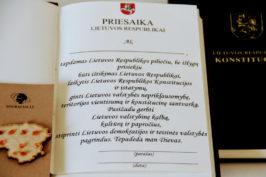
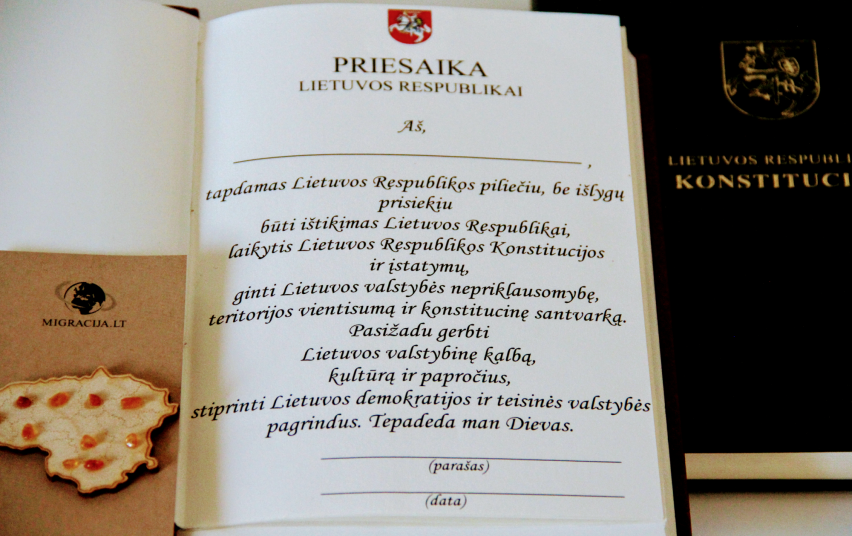
A person who has been granted citizenship of the Republic of Lithuania under the simplified procedure, through naturalisation, by way of exception or by restoring it, as well as on the grounds established by international treaties to which the Republic of Lithuania is a party, must take a public and solemn oath of allegiance to the Republic of Lithuania.
You may apply due to an oath of allegiance to the Republic of Lithuania to the territorial office of the Migration Department or the diplomatic mission or consular post of the Republic of Lithuania, upon the direct arrival to the relevant institution, through an authorized person or other representative, or by electronic means.
If you will submit documents through an authorized person or other representative, or by electronic means, you must also submit copies of documents confirming that you are not a citizen of another state, if you had citizenship thereof upon acquisition of citizenship of the Republic of Lithuania, whereas the originals will have to be presented to the person taking an oath of allegiance to the Republic of Lithuania on the day of the oath thereof. At the same time, a copy of the document approving personal identity must be provided herewith.
Documents issued by foreign states, personal statement that a person renounces citizenship of another state, and its official translation into the state language of the country of which the person is a citizen shall be legalized or approved by a certificate (Apostille) in accordance with the procedure laid down by legislation, unless international treaties of the Republic of Lithuania or European Union legislation provide for otherwise.
In the Republic of Lithuania, a person shall take an oath of allegiance at the Ministry of the Interior of the Republic of Lithuania or at a diplomatic mission or consular post of the Republic of Lithuania. If a person cannot arrive at the Ministry of the Interior due to the disability thereof, the oath of allegiance to the Republic of Lithuania may be taken at home or in a medical institution.
A person’s oath at the Ministry of the Interior shall be administered by the Minister of the Interior or the Vice Minister authorised by the Minister of the Interior, whereas an oath at a diplomatic mission or consular post shall be administered by the head of the respective diplomatic mission or consular post.
The time period to take an oath of allegiance shall be as follows:
1. You must take an oath of allegiance within six months from the effective date of the decree of the President of the Republic on the granting of citizenship of the Republic of Lithuania, if you are:
a stateless person;
a person who is a citizen of a state under the law of which he/she shall lose citizenship of that state on acquiring citizenship of the Republic of Lithuania;
a person who has been granted citizenship of the Republic of Lithuania by way of exception.
2. You must take an oath of allegiance within two years from the effective date of the decree of the President of the Republic on the granting or restoration of citizenship of the Republic of Lithuania, if you are a person:
who has expressed his/her will in writing to renounce his/her citizenship of another state after he/she is granted citizenship of the Republic of Lithuania.
Underage and disabled persons shall have no obligation to take an oath of allegiance to the Republic of Lithuania.
The determined date, time and place for an oath at the Ministry of the Interior or at the consular post shall be no later than:
within 2 months – if you are a stateless person;
within 4 months – if you are a person who has expressed his/her will to renounce his/her citizenship of another state.
A person shall be notified hereof in writing, by telephone or e-mail no later than within 5 working days from the time determined thereto.
If you are a person, who has expressed his/her will in writing to renounce his/her citizenship of another state, however, the law of another state whose citizen you are does not stipulate the procedures for renouncing or losing citizenship upon acquisition of citizenship of another state, or, in your opinion, these procedures do not meet the criteria of reasonableness.
You must provide the following documents:
1. An application to allow to take an oath of allegiance to the Republic of Lithuania;
2. Document confirming personal identity;
3. Statement approved by the notary public that you renounce to have the citizenship of another state and its official translation;
4. Explanation with reasons why you cannot renounce citizenship of another state;
5. Statement (You undertake to immediately inform the competent foreign state institutions about the voluntary decision to become a citizen of the Republic of Lithuania and an oath of allegiance taken to the Republic of Lithuania that a decision on the loss of your foreign citizenship would be taken in accordance with the provisions of the Law on Citizenship of the foreign country and, no later than within one year from the date of the oath of allegiance to the Republic of Lithuania was taken, submit to the Lithuanian authorities a document confirming the loss of citizenship of another state);
6. Documents confirming the reasons stated in your explanation;
7. Document evidencing the disability (if the person due to his/her disability cannot arrive to take an oath of allegiance to the Republic of Lithuania).
Upon the decision of the Minister of the Interior to allow you to take an oath of allegiance to the Republic of Lithuania having failed to provide evidence of the loss of the citizenship of another state, you will be informed in writing of the decision taken no later than the next working day after the decision is made, by sending you a copy of this decision. Then you will be invited to take an oath of allegiance to the Republic of Lithuania.
You will become a citizen of the Republic of Lithuania and acquire rights, freedoms and responsibilities as a citizen of the Republic of Lithuania only after having taken the oath of allegiance to the Republic of Lithuania.
You must choose one of the texts determined for an oath of allegiance to the Republic of Lithuania:
1) “I, (name, surname), on becoming a citizen of the Republic of Lithuania, do solemnly, without reservation, swear my allegiance to the Republic of Lithuania, to observe the Constitution and laws of the Republic of Lithuania, to defend the independence, territorial integrity and constitutional order of the State of Lithuania. I pledge to respect the state language, culture and customs of Lithuania, to strengthen the basic principles of democracy and the rule of law in Lithuania. So help me God.”;
2) “I, (name, surname), on becoming a citizen of the Republic of Lithuania, do solemnly, without reservation, swear my allegiance to the Republic of Lithuania, to observe the Constitution and laws of the Republic of Lithuania, to defend the independence, territorial integrity and constitutional order of the State of Lithuania. I pledge to respect the state language, culture and customs of Lithuania, to strengthen the basic principles of democracy and the rule of law in Lithuania.”
Applications for granting citizenship of the Republic of Lithuania repeatedly submitted by persons who failed to take an oath of allegiance to the Republic of Lithuania shall not be considered, except for the cases when a person misses this term due to very important reasons.
MIGRATION LAW CENTER


From the beginning of 2015, the conscripted army has been renewed in Lithuania. At present, all Lithuanian men aged 18-26 can be invited to perform compulsory military service in the Lithuanian Armed Forces for a period of 9 months. The priority shall be given to volunteers. Generally, only 2 percent of men are randomly selected to complete vacancies in the army within the year. The lists of military conscripts are published on the Internet at www.sauktiniai.kam.lt.
Upon receipt of the call, a military conscript will be assigned to compulsory initial military service only after determining that his health is appropriate to carry out the service.
A person called to the army can postpone it only in case of important reasons and when having documents evidencing hereof.
A military conscription can be postponed in the following cases:
– a person studies at a secondary, professional or higher education school;
– by military conscription, a disproportionate damage to his public or private interests will be incurred;
– persons are raising a minor child alone or are on parental leave;
– in case of temporary health problems;
– in other cases provided for.
A military conscript who is on the list of conscripts may submit a claim based on evidence to the Regional Military Conscription and Compilation Division regarding a postponement of his military service due to disproportionate damage to his interests and his application would be considered by a special commission.
Penalties are stipulated for a non-entry into compulsory military service or alternative national defence service, as well as for a non-compliance with military obligations established by the Law on Military Conscription of the Republic of Lithuania.
If a person has citizenship of the Republic of Lithuania, he is a military conscript and must fulfill all the rights and obligations arising therefrom. The military conscription shall also be applicable to persons who restored Lithuanian citizenship and acquired dual citizenship, as well as to persons residing abroad who have received a call. Military conscripts shall be all adult citizens of the Republic of Lithuania who have a military obligation (regardless of whether they live in Lithuania or abroad).
An exception shall be made and it is allowed to exempt from the military conscription the following persons: incapable persons; the disabled; persons, who were recognized as unsuitable for service due to their health; persons transferred to demission; women (except for those who expressed their will in writing to become military conscripts).
A person who received a call accidentally, can postpone it only due to important reasons: studies, work, huge financial damage, health problems, etc. Important reasons shall also include no knowledge of the Lithuanian language – it would be too expensive and too difficult to ensure that a person who does not have Lithuanian language skills would complete military service without an interpreter. If a person does not live in Lithuania – high travel costs may also be a justifiable reason to postpone the call.
Upon the postponement of the military service, a person may be randomly selected in subsequent years. Upon receipt of a repeated call and non-disappearance of important reasons, the opportunity to request a postponement of the call shall be granted again. The decision to authorize a postponement is taken by a special commission, therefore, each time it is necessary to write an explanation and enclose additional documents evidencing why you cannot join the army if you are randomly selected.
The amendments to the Law on Military Conscription provide for that military conscripts who have departed to other state permanently or temporarily, for a period longer than 6 months, must immediately, but no later than within one month from the day of departure thereof, inform by e-mail the authority of the national defence system administering the military obligation about their actual place of residence, work or studies.
MIGRATION LAW CENTER
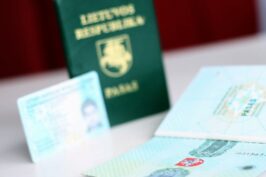
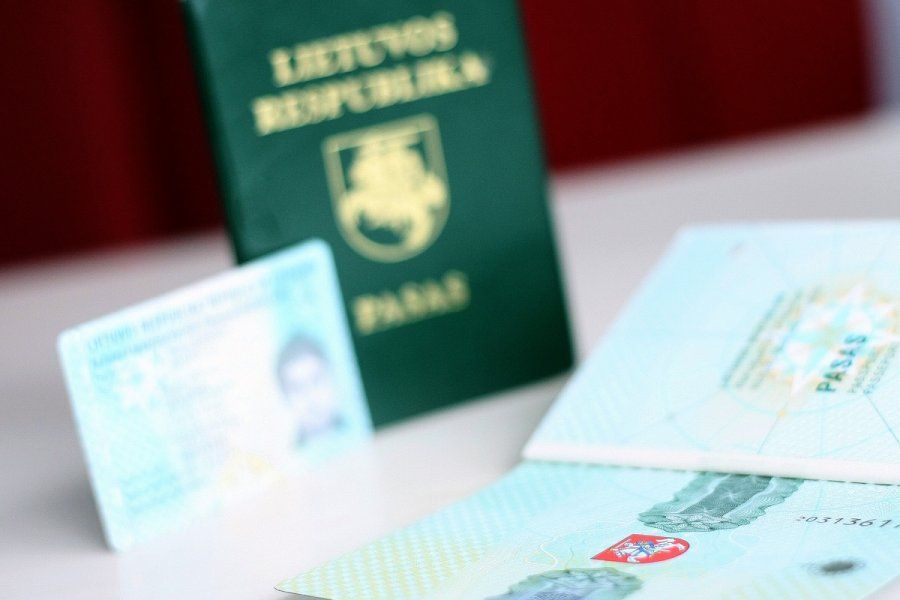
Persons whose parents or grandparents or one of the parents or grandparents is or was Lithuanian and who consider themselves Lithuanian and declare that in writing, shall be entitled to obtain a certificate confirming the Lithuanian descent. This document shall form a basis for the application due to the issuance of an annual multiple-entry Schengen visa.
A temporary multiple-entry Schengen visa (C) may be issued to aliens who have submitted documents confirming the Lithuanian descent, as well as to family members of these aliens. This visa can be valid up to 2 years.
When applying for the issuance of multiple-entry Schengen visa as a person of the Lithuanian descent, the person, along with documents which are usually submitted to obtain Schengen visa and a document confirming the Lithuanian descent, must also prove his/her honesty and credibility, i.e. a lawful usage of previous visas, as well as his/her economic status, allowing to travel to another states and return thence, and an intention to depart from the territory of the Member States before the expiry of the visa applied for.
Usually, a consular fee of 60 euros shall be charged for the acceptance and investigation of documents to obtain visa in Diplomatic Missions of the Republic of Lithuania and Consular Offices abroad. Exceptions are granted to persons of the Lithuanian descent. They shall be exempt from the consular fee.
A person must submit the application for the issuance of the certificate confirming the Lithuanian descent in person upon the arrival at the Reception of the Migration Department or the Diplomatic mission of the Republic of Lithuania or the Consular office in a foreign country, if the person lives abroad. If a person lives in the Republic of Lithuania, the application and other accompanying documents shall be submitted through the territorial police office by the person’s place of residence.
Documents to be submitted by the person applying for the certificate confirming the Lithuanian descent:
The person, who applies for the issuance of a document confirming the Lithuanian descent, along with the application, must submit:
1. Travel document or other document confirming personal identity;
2. Documents evidencing the Lithuanian descent. The Lithuanian descent shall be approved by documents, wherein it is stated that the person’s parents or grandparents or one of the parents or grandparents is or was Lithuanian, as well as a written statement of the person, whereby he/she declares that he/she considers himself/herself Lithuanian;
3. Documents certifying a kinship relationship with a person who is or was Lithuanian, if his/her child or grandchild applies for the issuance of certificate;
4. Documents confirming the change of name or surname if these personal data in the documents submitted do not match the data of the travel document or other document confirming personal identity;
5. Two identical photos of a person, each of 4 x 6 mm size.
The documents issued by foreign countries must be legalized or confirmed by a certificate (Apostille), unless international treaties of the Republic of Lithuania and legislative acts of the European Union provide otherwise, and translated into Lithuanian language.
The person can take a certificate confirming the Lithuanian descent in the following places: in the Migration Department, Consular office or the territorial police office by the person’s place of residence, in person or through the representative.
MIGRATION LAW CENTER
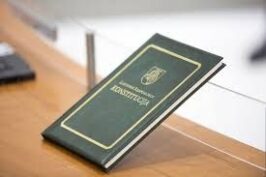
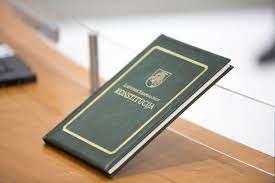
Upon re-establishment of an independent state of Lithuania on 11 March 1990, the Provisional Basic Law of the Republic of Lithuania was adopted, Part 1 of Article 13 whereof stipulated that “The attributes of Lithuanian citizenship, conditions and procedures for receiving and losing it shall be defined by the Law on Lithuanian Citizenship”.
It has been established in Article 3 of the Law “Regarding the Provisional Basic Law of the Republic of Lithuania” adopted on 11 March 1991 that “Laws and other legal acts valid in Lithuania until this moment that do not contradict the Provisional Basic Law of the Republic of Lithuania shall remain in force.” There were no legal norms in the Law on Citizenship of the Lithuanian SSR that would contradict the Provisional Basic Law, therefore this Law, which became the Law on Citizenship of the Republic of Lithuania after 11 March 1991, was valid until 10 December 1991. The concepts “Lithuanian SSR”, “Citizenship of the Lithuanian SSR”, “Citizen of the Lithuanian SSR” of this Law have been interpreted as changed into the concepts “Republic of Lithuania”, “Citizenship of the Republic of Lithuania”, “Citizen of the Republic of Lithuania”, respectively.
The Law on Citizenship adopted in 03 November 1989 was changed only once, i.e. Article 18 of this Law was amended by a new paragraph 4 in 16 April 1991, whereby the citizenship of the Republic of Lithuania was lost upon acquisition of citizenship of another state. This amendment did not alter the essence of legal regulation established by law. Thus, during the period from 11 March 1990 to 10 December 1991 citizenship of the Republic of Lithuania was acquired, lost and issues of citizenship were resolved in accordance with the Lithuanian Soviet Socialist Republic Law on Citizenship enacted by the Lithuanian SSR institution – the LSSR Supreme Council.
The Lithuanian SSR Law on Citizenship was adopted by the LSSR Supreme Council on 03 November 1989. According to Article 1 of the Law on Citizenship, the following persons shall be citizens of the Lithuanian SSR:
“1) Persons who were citizens of the Republic of Lithuania, children and grandchildren of such persons, as well as other persons who were permanent residents on the current territory of the Lithuanian SSR prior to 15 July 1940, and their children and grandchildren who now are or have been permanent residents on the territory of the Lithuanian SSR;
2) Persons who have a permanent place of residence in the Lithuanian SSR, provided they were born on the territory of the Lithuanian SSR, or have provided evidence that at least one of their parents or grandparents was born on said territory, and provided that they are not citizens of another state;
3) Other persons who, up to and including the date of entry into force of this Law, have been permanent residents on the territory of the Republic and have here a permanent place of employment or another constant legal source of support; such persons shall freely choose their citizenship during two years following the entry into force of this Law;
4) Other persons who have acquired citizenship of the Lithuanian SSR under this Law.”
Part 2, Article 2 of this Law provided for that “Persons referred to in paragraphs 1, 2, and 3 of Article 1 of this Law who wish to acquire the passport of a citizen of the Lithuanian SSR, shall sign a pledge to the Republic promising to observe the Constitution and laws of the Lithuanian SSR, and to respect the sovereignty and territorial integrity of Lithuania”.
On 05 December 1991, a new Law on Citizenship of the Republic of Lithuania was adopted.
MIGRATION LAW CENTER
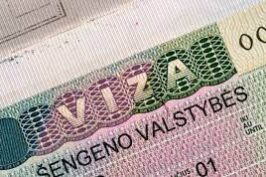
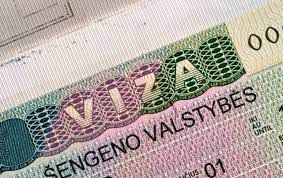
From 01 July 2023, there are no longer any visas that were issued to foreigners, who have applied for the issuance or renewal of a residence permit or a family member card of an EU citizen, for the period while the application is being processed.
Also, there are no more national visas for individuals intending to work in Lithuania: visas will be only available for seasonal workers, posted workers, and ship crew members.
Practice shows that due to busyness of the Migration Department the process of issuing a residence permit may last 1-3 months and more while the foreigner will obtain a residence permit. Temporary Schengen visas for the foreigners are issued for the period of 3 months. Until now, after a submission of documents for a residence permit, an individual could apply for the waiting visa (national visa D), which allowed the foreigners to stay in a country while their application for issuance of a residence permit is being processed.
As such visas are no longer available, the process became more complicated, i.e., the foreigners will have to depart from a country for the period during which the application is being processed and then return when they obtain a residence permit, as temporary visas are issued for 3 months, however, migration processes may take longer.
The altered procedure may lead to a more frequent handling of documents not in Lithuania, as it used to be, but through the external service providers abroad (in VFS Global offices).
It is strongly recommended to closely follow the expiry date of the held residence permits in Lithuania and do not wait until the very last day for applying for renewal of such permits. If a deadline for submitting applications for renewal of a residence permit is missed, an individual will be able to apply for a national visa, but an application for its issuance must be grounded by objective reasons, for which an individual must stay in a country while his/her application as to issuance of a residence permit is being processed (family circumstances, health, etc.). However, only practice will bring clarity whether the Migration Department will recognise those reasons as substantial, because legislation has not yet provided for any clear criteria.
MIGRATION LAW CENTER

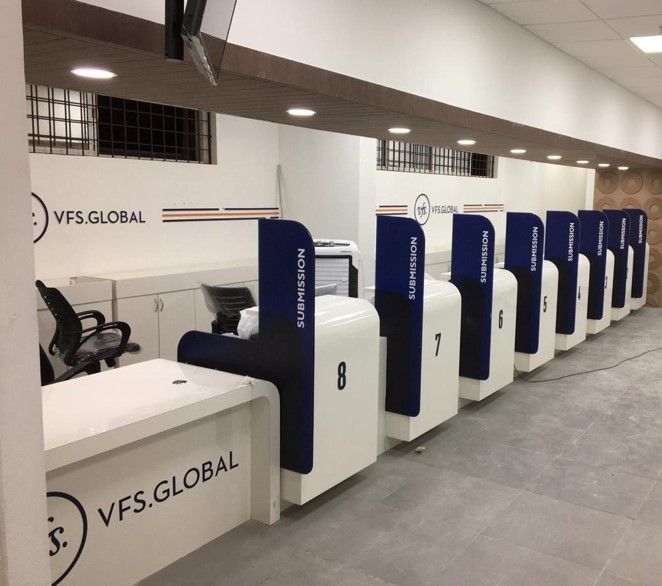
From the beginning of 2023, a new service has come into effect together with the amendments to the Law on the Legal Status of Foreigners – issuance of temporary residence permits in Lithuania through the external service provider VFS Global.
VFS Global offices in the specified countries accept applications of individuals for issuance of temporary residence permits. Foreigners can submit not only documents, but also biometric data, that is transferred to the decision-making specialists of the Migration Department. It should be noted that the list and requirements of the necessary documents which are submitted together with the applications remain the same.
When applying through VFS Global, the foreigner may select a place of collecting the produced temporary residence permit card – at a division of the Migration Department in Lithuania or upon arrival at a division of the external service provider while being abroad.
By choosing a collection through VFS Global office, foreigners will no longer need to apply for visa, but sending the document to a foreign state and obtaining it may take longer.
Those foreigners who do not need visas to arrive to Lithuania (as they have a valid visa or use the visa-free regime), will be able to order a temporary residence permit card in a foreign state and collect it in Lithuania if they prefer to come earlier. It is noteworthy that in such a case a residence permit may be collected only by the foreigner personally, and his/her stay in Lithuania must be legitimate.
If the application for issuance of a temporary residence permit was submitted at the division of the Migration Department in Lithuania, the document may be collected in three ways: upon personal arrival at the division of the Migration Department; by courier (then the document is delivered to the address specified by the foreigner throughout Lithuania and is delivered personally; this service is paid – delivery of one document costs EUR 9.99), or after giving powers of attorney to the employer or other person to collect the document which has already been produced.
Remarks:
-VSF Global services are not available in Belarus, Russia, and China. VFS Global offices operate in the following countries: Albania, Argentina, Armenia, Australia, Azerbaijan, Brazil, Canada, Kazakhstan, India, Israel, Japan, Jordan, Kazakhstan, Kyrgyzstan, Libya, Malaysia, Moldova, Nepal, New Zealand, Philippines, Singapore, Republic of South Africa, South Korea, Sri Lanka, Taiwan, Tajikistan, Thailand, Turkey, Ukraine, United Arab Emirates, United Kingdom, United States of America, Uzbekistan, Venezuela.
-Foreigners may apply to VFS Global offices, irrespective of whether they reside in that country.
-Russian nationals cannot apply for issuance of temporary residence permits through VFS Global. Russian nationals may submit applications only in Lithuania and only if they have a valid Schengen or national visa issued by Lithuania or a residence permit in Lithuania, or if they are holders of a temporary residence permit issued by another EU member state.
MIGRATION LAW CENTER
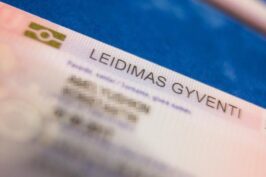
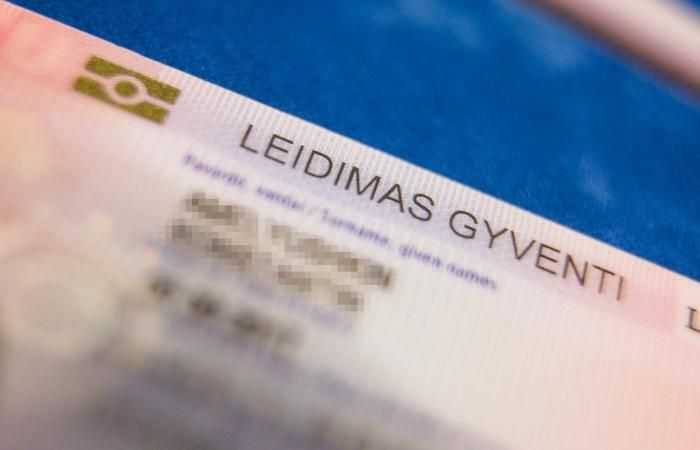
Since 01 August 2022, amendments to the Republic of Lithuania Law on the Legal Status of Foreigners have entered into force, in order to resolve an issue of talent shortage in Lithuania and reduce burden to employers intending to hire highly qualified foreigners.
From now on, foreigners will be able to apply for temporary residence permits on the basis of highly qualified employment (Blue Card) under the simplified conditions.
Firstly, the List of Shortage Occupations Requiring High Professional Qualifications has been repealed. It has been replaced by a new list “List of Shortage Occupations with High Added Value in the Republic of Lithuania”
https://www.e-tar.lt/portal/lt/legalAct/92787d70f84311ec8fa7d02a65c371ad
Foreigners whose profession is included in the latter list will have to be paid at least 1.2 times the amount of the last published average gross monthly wage for the calendar year (currently – EUR 1,895.28). However, provided the foreigner’s activity is not included in the aforementioned list, they must be paid at least 1.5 times the amount of the last published average gross monthly wage (currently – EUR 2,369.10).
Secondly, the requirement for foreigners who apply for the Blue Card to obtain a decision of the Employment Service indicating that foreigner’s job meets the needs of the labour market of the Republic of Lithuania has also been revoked.
Thirdly, when having acquired no higher education, it will now be possible to prove not only at least 5 years of professional experience, but also at least 3 years of professional experience, provided it was acquired during the last 7 years in the IT sector.
Fourthly, from now on, the minimum period for which an employer will have to employ a foreigner shall be 6 months instead of 1 year.
Fifthly, from now on, a highly qualified employee will be entitled to change a job function with the same employer without obtaining a permit of the Migration Department.
The obligation to obtain a permit from the Migration Department shall remain in force in the following cases: if a foreigner prefers to change the employer within 1 year of his/her legal employment in Lithuania or intends to take up another job requiring high professional qualifications after losing his/her job and before the expiry of the six-month period.
It should be noted that the time limits for the Migration Department to issue such a permit have also been shortened: the Migration Department took an obligation to take a decision on the permit to change an employer no later than within 14 calendar days from the date of applying thereupon (previously the term was 1 month).
If 12 months have passed from the receipt of the first Blue Card, a foreigner may change an employer without obtaining a permit from the Migration Department. Thus, the holder of Blue Card must notify the Migration Department on the change of employer no later than within 7 working days.
Sixthly, the holder of Blue Card may be recruited by more than one employer under the employment contract. The foreigner will have to notify the Migration Department on his/her employment with additional employer (provided the main employer remains the same) and do this within 7 working days from the day of conclusion of the employment contract. Nonetheless, all employers must meet the conditions of obtaining a temporary residence permit.
Finally, a foreigner who has lost his/her job in Lithuania will have 6 months to look for a new job, instead of 3 months as it used to be before.
The requirements for the qualifications of foreigners applying for the simple temporary residence permit on the basis of employment are also simplified.
Henceforward, the employer will be able to hire a foreigner who complies with at least one of the following conditions:
- a foreigner has a qualification relating to the job to be carried out, or
- a foreigner has a 1 year work experience gained in the last 3 years that is related to the work to be performed, or
- a foreigner is expected to be paid a monthly salary of at least the latest published average gross monthly wage for the calendar year in the country’s economy (also, including data of wages of individual enterprises), the amount whereof currently is EUR 1,579.40).
Amendments to laws which have come into force since 01 August also provide even more opportunities for the foreigners studying in Lithuania.
First of all, the maximum limit of working time of 20 hours per week for the foreigners, applicable during the period of study or training, has been abolished. From this moment, all foreigners will have an opportunity to work full-time during their studies or training.
Furthermore, the foreigner, who has completed studies or training under the vocational training program in Lithuania, will be able to apply for the issue of a temporary residence permit within 10 years from completion of studies (previously, such period was 2 years) and will be exempt from the requirement to obtain a decision from the Employment Service when applying for usual temporary residence permit on the basis of employment.
It is also important that family members of a foreigner studying a master’s or doctoral degree can apply for a temporary residence permit on the basis of family reunification. This opportunity can also be used by family members of a foreigner who has already completed studies and has a temporary residence permit for the purpose of job search.
MIGRATION LAW CENTER
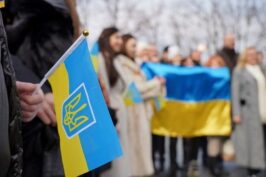
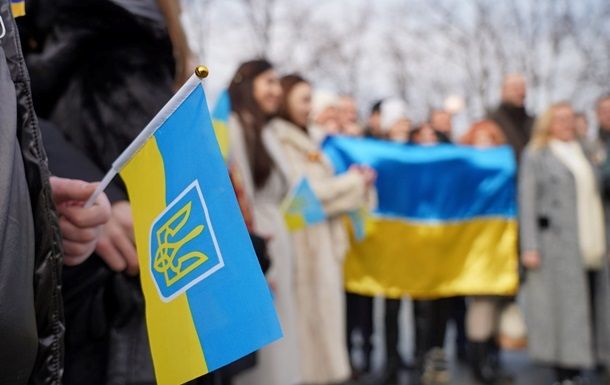
Since 01 March 2022, a new order of the Minister of the Interior of the Republic of Lithuania has become effective, on the basis of which the Ukrainian citizens fleeing the war and arriving to Lithuania, who are willing to reside and work in the Republic of Lithuania, will be subject to mitigated migration conditions.
First of all, the Ukrainian citizens arriving to Lithuania shall register in a prescribed registration centre – located either in Alytus, Pramonės St. 1B, in Marijampolė, Parko St. 9., in Vilnius, Minties St. 3 or in Klaipėda, Paryžiaus Komunos St. 16A (provided they have no place to stay in Lithuania), or register in any migration division (provided they already have a place to stay in Lithuania).
Registered Ukrainian citizens will receive a special registration certificate. Lithuanian alien registration certificate may be issued to the Ukrainian citizens and their family members, also, to stateless persons who resided in Ukraine and were forced to leave due to war, even though having no passport with them, until their legal status in the Republic of Lithuania is resolved. Moreover, such individuals may be provided with accommodation, food, medical care.
Possibilities of Residing in Lithuania
After registration, the Ukrainian citizens may apply for the following documents for further residence in Lithuania:
– A temporary residence permit on humanitarian grounds, which may be issued for a period of 1 (one) year (a legal basis of such residence permit shall be not asylum, but inability to return to the country of origin due to humanitarian reasons);
– A national visa D on humanitarian grounds (to be issued for 1 (one) year and obtained only by those persons holding biometric passports).
When applying for visas or residence permits, the Ukrainian citizens will not be required to have a valid passport, health insurance or other documents usually granting the right to enter the Republic of Lithuania. The visa or residence permit will be issued free of charge.
Employment in Lithuania
The Ukrainian citizens, their family members, and stateless persons who resided in Ukraine, but fled to Lithuania as a consequence of war actions of the Russian Federation, may enjoy the facilitated employment conditions in the Republic of Lithuania.
The Ukrainian citizens, having registered after arrival in Lithuania, can start work immediately without a requirement to obtain a work permit in Lithuania, if:
– a visa-free regime is still effective, or they have a valid Schengen visa;
– they have a temporary residence permit on humanitarian grounds;
– they hold a national visa (D) issued on humanitarian grounds.
Besides, the Ukrainians may apply for a temporary residence permit on employment grounds, or for the EU Blue Card (a temporary residence permit for highly-qualified jobs to be issued for a period of 3 (three) years), and they are exempted from the liability to obtain a decision of the Employment Service under the Ministry of Social Security and Labour of the Republic of Lithuania on the compliance of the work requiring aliens to the Lithuanian labour market needs.
The persons who have chosen to submit an application for asylum in the Republic of Lithuania, shall be entitled to work from the day of registering such application in the Lithuanian Migration Information System (previously, such right used to be acquired only after 6 (six) months).
It should be noted that the Ukrainian citizens, who arrived in Lithuania and received a temporary residence permit on humanitarian grounds, may register as self-employed persons at the State Tax Inspectorate under the Ministry of Finance of the Republic of Lithuania, and may obtain an individual activity certificate.
MIGRATION LAW CENTER
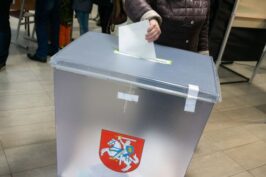
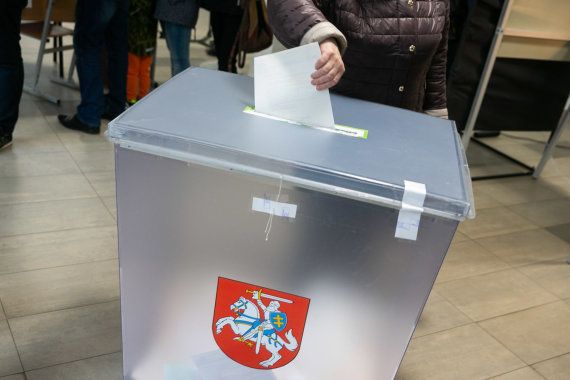
On 21 May 2021, the Commission of the Seimas of the Republic of Lithuania and the Lithuanian World Community adopted the Resolution “Regarding Announcement and Exercise of the Mandatory Referendum”, wherein it suggests to announce and organize a mandatory referendum regarding amendment of Article 12 of the Constitution of the Republic of Lithuania, – retention of Lithuanian citizenship acquired by birth after acquiring citizenship of another state, – to be held in 2024 in tandem with the presidential election, in accordance with the procedure and terms laid down by laws of the Republic of Lithuania.
The Commission of the Seimas of the Republic of Lithuania and the Lithuanian World Community has also provided in the aforesaid Resolution the following proposals to the President, the Seimas, the Government, and the Central Electoral Commission of the Republic of Lithuania:
– To consider the Referendum on amendment of Article 12 of the Constitution of the Republic of Lithuania, – retention of Lithuanian citizenship acquired by birth, – a priority issue of the Seimas and the Government of the Republic of Lithuania.
– To ensure timely funding for a large-scale pre-referendum agitation (public information) campaign.
– To commence an early Referendum agitation campaign in Lithuania and abroad, by engaging in it diplomatic missions, consular posts of the Republic of Lithuania, honorary consuls in foreign states, representatives of the Lithuanian World Community and Lithuanian diaspora, including preliminary discussions in Lithuanian regions, conferences, congresses and other events dedicated to the Referendum.
– To assess the possibility to exercise online voting in 2024 Referendum.
– To invite the representatives of the Lithuanian World Community and Lithuanian diaspora to workgroups for Referendum preparation, as well as for the wording of the issue to be provided for Referendum.
The Referendum on dual citizenship has already been held in 2019, but it failed to adopt amendment to Article 12 of the Constitution. More specifically, 71.78 percent of Referendum voters were in favour of dual citizenship, i.e. 927,410 voters, nevertheless, about 300,000 votes were not enough to amend Article 12 of the Constitution. The mentioned amendment needed at least half of all eligible voters to vote in favour for it to be adopted.
MIGRATION LAW CENTER


In Lithuania, a conclusion of marriage is possible, if at least one of the spouses is a citizen of Lithuania or an alien having a permission to reside in Lithuania, and provided that both persons are over 18 years of age.
Citizens of Lithuania willing to conclude marriage with a citizen of foreign state shall submit an application to the Civil Registry Office. The Civil Registry Office shall be selected according to the declared place of residence of one of the spouses or parents thereof. Both spouses must be present when submitting the application.
The following documents shall be submitted:
- Documents confirming the identity of a person;
- Birth certificates or extracts from birth record (if no information is available in Lithuanian registers);
- If a person who intends to marry is a citizen of foreign state, a document issued by competent authority of the state thereof, approving that there are no obstacles to his/her marriage (i.e. a certificate that a person has not previously entered into another marriage, which is still in force) shall be additionally submitted. If a citizen of foreign state is divorced or is a widower, a document issued by competent authority of the state thereof, approving his/her divorce or death of the former spouse shall be provided.
Documents issued in a foreign state (except for the passport) must be legalized or certified with an Apostille certificate, unless specified otherwise by the International Treaties of the Republic of Lithuania and the European Union legislation, and must be translated into Lithuanian.
A fee of 20 EUR for the registration of marriage shall be paid in the Civil Registry Office.
If a marriage ceremony will take place in a location chosen by the spouses, a fee of 60 EUR shall be paid.
After a submission of the application, marriage is registered for at least one month from the date of submission thereof.
MIGRATION LAW CENTER


In February 2021, by orders of the Minister of the Interior of the Republic of Lithuania, citizenship of the Republic of Lithuania was reinstated to aliens in the following descending order: Lithuanian citizenship was mostly restored to persons born in Brazil – 38 cases, the second place – to persons born in Israel – 37 cases, the third place – to persons born in South Africa – 33 cases. Altogether, in February 2021, Lithuanian citizenship was reinstated to 129 persons born in the countries mentioned thereunder:
Country of birth/Number of persons
Brazil 38
Israel 37
South Africa 33
Lithuania 5
Russia 4
United Kingdom 2
Germany 2
Australia 2
Mexico 1
Canada 1
USA 1
Uruguay 1
Argentina 1
Botswana 1
TOTAL: 129

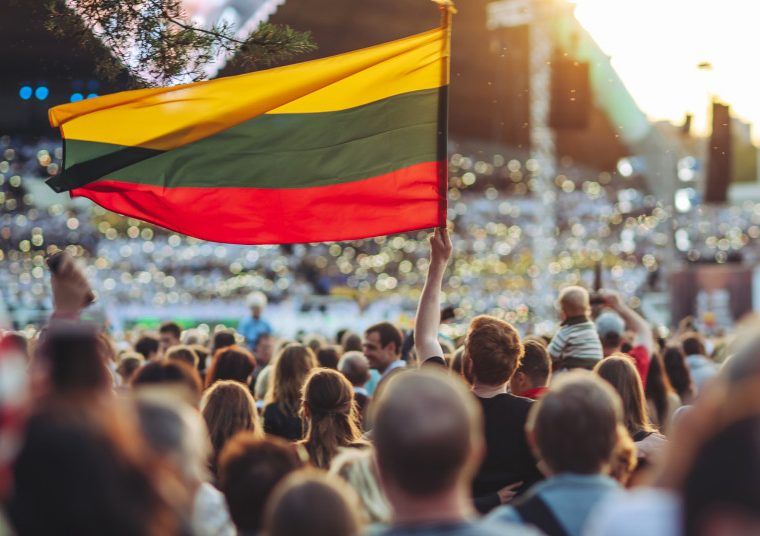
In January 2021, by orders of the Minister of the Interior of the Republic of Lithuania, citizenship of the Republic of Lithuania was reinstated to aliens in the following descending order: Lithuanian citizenship was mostly restored to persons born in South Africa – 138 cases, the second place – to persons born in Israel – 114 cases, the third place – to persons born ir Brazil – 66 cases. Altogether, in January 2021, Lithuanian citizenship was reinstated to 424 persons born in the countries mentioned thereunder:
Country of birth/Number of persons
South Africa 138
Israel 114
Brazil 66
Uruguay 31
Argentina 21
Lithuania 16
USA 12
Russia 6
Latvia 5
Belarus 3
Canada 3
United Kingdom 2
Zimbabwe 2
Kazakhstan 1
Estonia 1
Germany 1
Colombia 1
Austria 1
TOTAL: 424

The citizens of Australia, Japan, the United States of America, Canada, New Zealand and South Korea, who intend to work or engage in any legitimate activity in Lithuania, are subject to simplified immigration conditions for obtaining a temporary residence permit in the Republic of Lithuania.
Citizens of the aforementioned countries arriving to Lithuania with an aim to work or engage in any legitimate activity do not necessarily have to comply with common requirements imposed on the third-country nationals.
If a citizen of Australia, Japan, the United States of America, Canada, New Zealand and South Korea arrives to the Republic of Lithuania to work, he is only required to sign an employment contract or to obtain a written undertaking of the company to recruit him under an employment contract. Citizens of these countries are not required to obtain a decision of the Employment Service concerning a compliance of the alien’s work with the needs of the Lithuanian labour market.
If an alien is a participant or the manager of the company registered in the Register of Legal Entities and he arrives to work in that company, then a list of required documents is also shorter. If less than one year has passed since the incorporation of the company, it is necessary to provide documents evidencing that the company carries out the activities in the Republic of Lithuania specified in the incorporation documents, also, financial statements of the company, concluded employment contract and documents certifying that an alien is a participant or the manager of the company.
Furthermore, citizens of these countries may also apply for the issue of temporary residence permit in the Republic of Lithuania, provided they are engaged in any other legitimate activity, including individual activity. Such activity is considered to be any independent activity in pursuit whereof an individual seeks to derive income or any other economic benefit over a continuous period. This may be an independent commercial or industrial activity of any nature (excluding activities of real estate trade or rent), also, financial instrument transactions; independent creative, scientific or professional activity and other similar independent activity, independent sports and performing activity.
When applying for a residence permit on the basis of individual activity, it is necessary to submit supporting documents, for example, a business certifícate, or documents approving that an alien is engaged in performing or sports activities, or intends to participate in volunteering programs or implement joint governmental programs together with the foreign states.
It should be noted that the simplified immigration requirements are also applied to citizens of the above-mentioned countries who arrive to Lithuania to work or engage in activity under a regulated profession. Depending on the profession, an alien must have a document confirming that he complies with the conditions laid down in legislation of the Republic of Lithuania to engage in regulated profesional activities.
In Lithuania, regulated professions are the following: lawyer; midwife; architect; educator; bankruptcy administrator; general practice nurse; biomedical technician; dental hygienist; dental technician; dietician; occupational therapist; tourist guide; dental assistant; advanced practice nurse; physiotherapist; speech therapist; masseur; doctor of medicine; school psychologist; teacher; dentist; patent attorney; private detective; vocational teacher; restorer; restructuring administrator; social worker; social pedagogue; special pedagogue; civil engineer; surdopedagogue; tiflopedagogue; property or business valuer; pharmacist; pharmacy assistant (pharmatechnician); veterinary paramedic; veterinary surgeon.
A temporary residence permit for the above-mentioned purposes can be issued to citizens of such countries for a period of 3 years. If the period of employment or legitimate activity is expected to be shorter, then a temporary residence permit is issued for that period of employment or legitimate activity, by adding additional 3 months after expiration thereof.
Family members of citizens of such countries may jointly apply for a temporary residence permit and come to live in the Republic of Lithuania. Family members are considered to be the following persons: a spouse or registered partner, unmarried and parent-dependent minor children, or parents who have been dependent on their adult children for at least one year and are unable to use the support of other family members residing in a foreign state.
Documents for a temporary residence permit are submitted through the MIGRIS system and upon arrival to the territorial division of the Migration Department at the pre-booked visit time.
After a submission of documents at the territorial division of the Migration Department, a decision on the issue of a temporary residence permit is made within 3 months in a general procedure or within 45 calendar days, if an application is filed as a matter of urgency.


As Brexit approaches and a transition period comes to an end, on 10 November 2020, the Seimas of the Republic of Lithuania approved a Draft Law on Amending the Law on the Legal Status of Aliens prepared by the Ministry of the Interior of the Republic of Lithuania. The provisions of the draft attempt to harmonize the law with the provisions of the Agreement on the Withdrawal of the United Kingdom of Great Britain and Northern Ireland From the European Union.
The draft law is aimed at providing more information to the United Kingdom nationals and their respective family members and giving them clarity on their legal status in Lithuania at the end of the transition period, i.e., after 31 December 2020.
The United Kingdom nationals and their family members who acquired a right to reside in the Republic of Lithuania by the end of this year, can still enjoy the same conditions and are subject to the same requirements as nationals of the Member States of the European Union and their family members. Pursuant to the draft law, the United Kingdom nationals who arrive to reside in Lithuania after the new year, i.e. after the transition period, will have to comply with the preferential provisions applicable to third-country nationals.
Persons who have acquired documents confirming the right to reside in the Republic of Lithuania before the end of this year will be able to use these documents until expiry or replacement thereof. It should be noted that after the transition period such documents will entitle to reside in the Republic of Lithuania, however, the right of free movement of persons in the Schengen area will not be exercised.
The United Kingdom nationals and their family members, residing in the Republic of Lithuania and willing to move freely in the Schengen area after new year, will have to apply to the Migration Department for the change of documents in their possession.
When applying for the document change, the Migration Department will make a decision therefore no later than within one month from the date of submission of an application. The United Kingdom nationals and their family members, who acquired the right to reside in the Republic of Lithuania until the end of the transition period, will be exempt from the state fee for examination and processing of applications regarding the issue of permits to reside in the Republic of Lithuania.
MIGRATION LAW CENTER


In Lithuania, applications regarding a dissolution of marriage shall only be investigated by courts.
A claim for a dissolution of marriage must be submitted to the District Court according to a place of residence of the respondent. If the respondent has minor children living herewith – according to a place of residence of the plaintiff. When terminating marriage upon joint application of both spouses, it may be submitted according to a place of residence of one of the spouses.
In Lithuania, a marriage can be dissolved:
– By the mutual consent of the spouses. A marriage may be dissolved by the mutual consent of the spouses provided over a year has elapsed from the commencement of the marriage, the spouses have made a contract in respect of the consequences of their divorce and they have full active legal capacity. In this case, divorce shall be obtained under simplified procedures.
– Through the fault of a spouse (spouses). In this case, marriage shall be dissolved if the plaintiff proves fault of other spouse. The Court may also declare that marriage is dissolved due to the fault of both spouses.
– On the application of one of the spouses, if:
- the spouses have been separated for over a year,
- one of the spouses has been declared legally incapacitated,
- one of the spouses has been declared missing,
- one of the spouses was convicted.
The marriage shall be dissolved thirty days after the date of the Court’s judgement. Having determined a judgement on dissolution of marriage, the Court shall send a copy thereof to the Civil Registry Office, which records a divorce act and issues a certificate of divorce to former spouses (or upon request of one of the spouses).
Judgements of the Courts regarding dissolution of marriage shall be recognized throughout the European Union. Citizens of Lithuania, who have dissolved marriage abroad, must apply to the Civil Registry Office due to an inclusion of dissolution of marriage into record. A judgement of the foreign Court properly certified with a mark Apostille or certificate of divorce must be submitted to the Civil Registry Office. The date specified in a certificate of divorce issued by the foreign state or in the Court’s judgement shall be deemed to be the day of dissolution of marriage.
If a marriage would be terminated outside the European Union, in order to include dissolution thereof into record of Lithuania, such judgement of the Court should be recognized in Lithuania at first.
MIGRATION LAW CENTER


The Migration Department has prepared the methodology for processing applications for the reinstatement of citizenship of the Republic of Lithuania, which sets out the principles and order of processing applications for the reinstatement of citizenship of the Republic of Lithuania.
The aforementioned methodology states the following:
Direct evidence approving that a person or his/her parents, grandparents, great-grandparents or one of them had Lithuanian citizenship before 15 June 1940 inclusive, are documents provided for in paragraph 4 of Article 38 of the Republic of Lithuania Law on Citizenship:
1) internal or foreign passports of the Republic of Lithuania issued before 15 June 1940;
2) foreign passports of the Republic of Lithuania issued by diplomatic missions and consular posts of the Republic of Lithuania after 15 June 1940;
3) documents attesting to the person’s service in the Lithuanian armed forces or employment in the civil service;
4) birth certificates or other documents containing direct reference to citizenship of the Republic of Lithuania held by the person concerned;
5) personal certificates issued before 15 June 1940 in Lithuania or personal certificates issued on the basis of documents issued before 15 June 1940.
If a civil servant authorized by the Migration Department establishes that direct evidence was annexed to the application, it shall be considered that there were submitted sufficient documents substantiating that a person had Lithuanian citizenship before 15 June 1940, except for the cases when a person lost Lithuanian citizenship (ceased to be a citizen) or died before 15 June 1940.
If a person lost Lithuanian citizenship (ceased to be a citizen) before 15 June 1940 or died before 15 June 1940, such a person, although direct evidence was provided, shall not be considered a person who had citizenship of the Republic of Lithuania before 15 June 1940.
Indirect evidence shall be documents specified in paragraph 5 of Article 38 of the Republic of Lithuania Law on Citizenship suggesting that a person may have had citizenship of the Republic of Lithuania before 15 June 1940:
documents concerning studies, work and life in Lithuania before 15 June 1940, as well as a passport of a foreign state and other documents.
If a civil servant authorized by the Migration Department establishes that there is no direct evidence, but indirect evidence is present, the evaluation of documents, on the basis of the set of documents, shall be initiated.
If a person lost Lithuanian citizenship (ceased to be a citizen) before 15 June 1940 or died before 15 June 1940, such a person shall not be considered a person who had citizenship of the Republic of Lithuania before 15 June 1940.
If no direct evidence was submitted, citizenship of the Republic of Lithuania held by a person shall be determined on the basis of the date and place of birth of that person, citizenship held by the person’s parents and the following documents:
1. If a person was born before 09 January 1919, the following documents must be submitted:
- a document certifying birth in the current territory of Lithuania, and:
- or documents attesting a fact of life of person/ person’s parents, if a person was under-age (who have lived in Lithuania for a long time) in Lithuania before 09 January 1919 and documents approving a fact of life thereof before 15 June 1940 (e.g., documents on the birth of children when children were born since 09 January 1919 until 15 June 1940, documents on the person’s marriage, work, owned real property). It should be noted that the majority of marriage records indicated that the married persons were Lithuanian citizens;
- or documents on Lithuanian citizenship held by the person’s parents before 15 June 1940;
2. If a person was born since 09 January 1919 until 15 June 1940 in Lithuania then, except Vilnius Region and Klaipėda Region, a document approving the birth in the current territory of Lithuania of a person who had citizenship of the Republic of Lithuania before 15 June 1940. In this case, a document certifying a fact of birth is usually sufficient, nevertheless, it should be noted that in case of suspicion whether the person actually had Lithuanian citizenship or whether that person is really a relative of the applicant, a civil servant authorized by the Migration Department may request to provide, and the applicant himself/herself may provide more data, i.e., documents certifying marriage, fact of life, held property, studies or work, or other documents which would eliminate possible interpretations. Furthermore, it is worth mentioning that parents of persons who were born during this period must also have been citizens of the Republic of Lithuania, therefore, documents confirming that they were citizens of the Republic of Lithuania before 15 June 1940 must be provided.
In case when a person, whereby his/her Lithuanian citizenship held before 15 June 1940 is provable, was born before 09 January 1919 in the territory of current Lithuania, but lived during the period since 09 January 1919 until 15 June 1940 or was born and lived during the period since 09 January 1919 until 15 June 1940 in Vilnius Region, which was actually controlled by Poland since 1920, the following documents must be submitted:
- documents certifying that this person and parents thereof (if the person was under-age) were treated Lithuanian citizens on the day of exchange of documents of ratification of 12 July 1920 Lithuanian-Soviet Russian Peace Treaty, and
- documents certifying that this person and parents thereof (if the person was under-age) had a place of residence in that territory of Vilnius Region, which was established in 10 October 1939 Soviet-Lithuanian Mutual Assistance Treaty and in 27 October 1939 additional Protocol. In this case, it is important for the applicant to provide documents approving that the person had a place of residence in the territory of Vilnius Region both on 12 July 1920 and on 27 October 1939. The submitted documents may include documents of marriage, birth of children, studies, work, held real property, household book census data, various applications, certificates for public authorities, data (lists) on the elections to the Seimas in 1935–1938. As an additional document which shall be evaluated together with the set of documents is population census data in 1942 (such document alone is not sufficient).
In case when a person was born before 09 January 1919 in the territory of current Lithuania, but lived during the period since 09 January 1919 until 15 June 1940 or was born and lived during the period since 09 January 1919 until 15 June 1940 in Klaipėda Region, documents must be submitted approving that he/she acquired citizenship of the Republic of Lithuania after the Lithuania’s sovereignty over the Klaipėda Region was recognized on 16 February 1923. Klaipėda Region became a part of the territory of Lithuania on 25 August 1925 after the entry into force of the Klaipėda Region Convention signed on 08 May 1924. The said Convention established who and during which time could acquire citizenship of the Republic of Lithuania.
If on the basis of the documents submitted by the applicant and/or received by the Migration Department it is established that a person, whereby his/her Lithuanian citizenship held before 15 June 1940 is provable, voluntarily renounced or deliberately sought to renounce citizenship of the Republic of Lithuania (e.g., when acquiring citizenship of another state, indicated that he/she renounced citizenship of the Republic of Lithuania), but there is no data that the person would have lost Lithuanian citizenship (ceased to be a citizen) before 15 June 1940, it shall be considered that such person has lost citizenship of the Republic of Lithuania before 15 June 1940, and a submission of non-reinstatement of citizenship of the Republic of Lithuania shall be prepared.
MIGRATION LAW CENTER


The Migration Department announced that from 01 September 2020 it will accept electronic applications (e-applications) related to the acquisition of citizenship of the Republic of Lithuania. Since 01 September 2020, applications of the persons regarding acquisition of citizenship of the Republic of Lithuania, oath of allegiance to the Republic of Lithuania, and regarding issuance of certificates approving the Lithuanian descent or the right to restore Lithuanian citizenship, also, applications regarding children’s citizenship of the Republic of Lithuania or other matters will have to be submitted electronically through the Lithuanian Migration Information System (MIGRIS).
When submitting e-applications and other documents concerning citizenship of the Republic of Lithuania through the Lithuanian Migration Information System, a customer will have to immediately reserve a visit at the Migration Department. Having submitted documents and reserved a visit, a person will have to arrive at the territorial office of the Migration Department on selected time. During visit, a person must have originals of all the documents which were submitted together with the e-application. The authorized person or other representative specified by the person in the e-application will be able to represent that person during visit at the division of the Migration Department and will be able to provide original documents regarding citizenship of the Republic of Lithuania.
In September 2020, applications regarding citizenship of the Republic of Lithuania will still be accepted in a prior procedure, by submitting a paper application and required documents. Persons willing to submit applications regarding citizenship of the Republic of Lithuania through the consular offices of the Republic of Lithuania will have such a possibility to provide paper applications and documents throughout September.
If you need legal assistance in the process of preparing and submitting to the Migration Department documents concerning the acquisition of citizenship of the Republic of Lithuania, please feel free to contact us by e-mail: info@migration.lt, phone: +370 6 1861886
MIGRATION LAW CENTER


A Draft Law on Amending Articles 2, 7, 12, 15, 16 18, 21, 23, 24, 26, 27, 33, 37, 39, 40, 41, 411, 42 and Supplementing Article 211 of the Law on Citizenship of the Republic of Lithuania No XI-1196 has been prepared in Lithuania. It intends to expand a circle of persons eligible for dual citizenship.
Recently, dual citizenship in Lithuania is only possible in exceptional cases, which have been established in Article 7 of the Law on Citizenship of the Republic of Lithuania.
Article 7 of the Law on Citizenship of the Republic of Lithuania sets out that a citizen of the Republic of Lithuania may be a citizen of another state at the same time, provided he meets at least one of the following conditions:
1) he has acquired citizenship of the Republic of Lithuania and citizenship of another state at birth;
2) he is a person who was exiled from the occupied Republic of Lithuania before 11 March 1990;
3) he is a person who fled the Republic of Lithuania before 11 March 1990;
4) he is a descendant of a person referred to in paragraph 2 or 3 of this Article;
5) by virtue of marriage to a citizen of another state he has ipso facto acquired citizenship of that state;
6) he is a person adopted by citizens (citizen) of the Republic of Lithuania before reaching 18 years of age and, as a result of the adoption, acquired citizenship of the Republic of Lithuania pursuant to paragraph 1 of Article 17 of this Law;
7) he is a person – a citizen of the Republic of Lithuania, who was adopted by citizens (citizen) of another state before reaching 18 years of age and, as a result of the adoption, acquired citizenship of that state;
8) he has acquired citizenship of the Republic of Lithuania by way of exception while being a citizen of another state;
9) he is a person who has retained citizenship of the Republic of Lithuania or who has citizenship of the Republic of Lithuania restored for his outstanding merits to the Republic of Lithuania;
10) he has acquired citizenship of the Republic of Lithuania while having refugee status in the Republic of Lithuania.
It is intended to supplement Article 7 of the Law on Citizenship of the Republic of Lithuania by paragraph 11, establishing that a citizen of the Republic of Lithuania may be a citizen of another state at the same time, provided he is a person, who has not reached 20 years of age and who acquired citizenship of the Republic of Lithuania at birth, but who, before reaching 18 years of age, acquired citizenship of another state in other way than by birth.
Nevertheless, there is also a requirement established that such a person will be able to make an independent decision, within a period of 2 years, of which country he wants to be a citizen. In such a case, a person will have an opportunity to independently choose, within a period of 2 years (until he reaches 20 years of age), which citizenship he prefers to keep, also, to make a decision, whether to renounce citizenship of another state or to lose citizenship of the Republic of Lithuania. There would be around 300 such persons per year. A 2-year term is also set regarding the fact that a person intending to renounce citizenship of another state will have to carry out certain actions and procedures provided for in law of another state (usually, the procedure for renouncing citizenship of another state may last from 6 months to 1 year).
If a citizen of the Republic of Lithuania, who is a citizen of another state at the same time, would fail to renounce citizenship of another state(-s) when he reaches 20 years of age, he will lose citizenship of the Republic of Lithuania. This ground for loss of citizenship of the Republic of Lithuania would only be applied in cases when a person acquired citizenship of the Republic of Lithuania at birth and acquired citizenship of another state in other way than by birth until he reached 18 years of age, and when he failed to renounce citizenship of another state until he reached 20 years of age.
In order to provide opportunity for all persons to take advantage of the case provided for in paragraph 11 of Article 7 of the Law on Citizenship of the Republic of Lithuania, where a person is eligible to be a citizen of the Republic of Lithuania and a citizen of another state at the same time, a proposal was made to establish that persons who have lost citizenship of the Republic of Lithuania due to the acquisition of citizenship of another state before the entry into force of the above-mentioned law, may reinstate citizenship if they have not reached 20 years of age.
Currently, a person who has acquired citizenship of the Republic of Lithuania at birth shall lose Lithuanian citizenship, if he acquired citizenship of another state in other way than by birth.
MIGRATION LAW CENTER
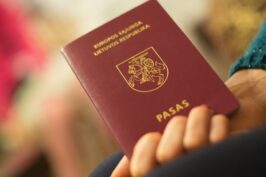
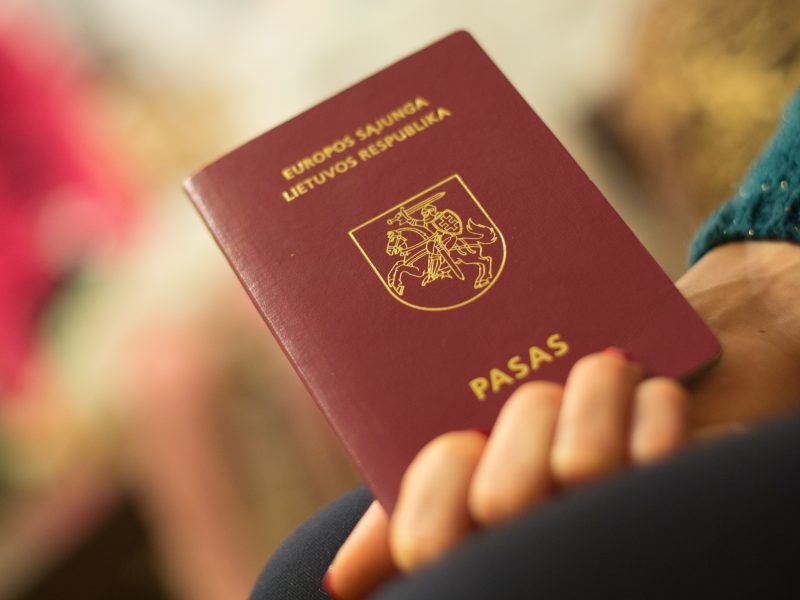
The identity and citizenship of citizens of the Republic of Lithuania shall be approved by an identity card and a passport of the Republic of Lithuania. It has been established in the Republic of Lithuania Law on Identity Card and Passport that an identity card shall be designated for use in the Republic of Lithuania and may be used to travel to foreign states where identity cards are recognized as a travel document. Citizens of the Republic of Lithuania can travel with an identity card through all the countries of the European Union, whereas a passport of the Republic of Lithuania is intended for travelling to all foreign countries, including the non-EU countries, as well as for usage in the Republic of Lithuania.
All citizens residing in the Republic of Lithuania must hold an identity card or a passport from the age of 16 years. Citizens who reside in the Republic of Lithuania and have attained the age of 16 years shall submit documents for the issue of an identity card or a passport to the division of the Migration Department not later than within one month after they attain the age of 16 years.
Citizens of the Republic of Lithuania residing abroad or citizens of the Republic of Lithuania under the age of 16 years shall also have passports issued at their request.
Identity cards and passports of the Republic of Lithuania shall be issued and replaced by the Migration Department, in certain cases – by the diplomatic missions or consular posts of the Republic of Lithuania. In order to collect a new identity document, a person must submit an identity card or a passport to be replaced. Citizens of the Republic of Lithuania may, upon request, order and hold both an identity card and a passport.
Since 04 May 2020, the Vilnius Division of the Migration Department has started to provide a new service – a collection of passport of the Republic of Lithuania on the same day, if an application is submitted before 12 p.m. Thus, it is aimed at putting forward the procedure for issuing a passport and an identity card of the Republic of Lithuania, by providing faster customer service.
Up to now, it was possible to receive a passport of the Republic of Lithuania issued in 1 working day as a matter of urgency. Such procedure shall remain in all divisions of the Migration Department, except for the Vilnius Division of the Migration Department, where a passport of the Republic of Lithuania is issued on the same day. Address of the Vilnius Division of the Migration Department: Naugarduko St. 100, Vilnius, phone for consulting: +370 707 67 000. A fee for issuance of a passport of the Republic of Lithuania on the same day is EUR 190.
After the entry into force of the amendments, the prior practice will be abandoned and there will be no longer a requirement to bring a photo of the person for a document production. A face of the person will be scanned with biometric data capture device at the division of the Migration Department, thereby ensuring photo quality and data security. Children under the age of 1 year will be subject to exceptions.
MIGRATION LAW CENTER


The immigration programme INVESTMENT I relates to immigration of business representatives to Lithuania.
The conditions of the immigration programme INVESTMENT I include:
1. An alien should be a participant, a head, a member of a collegial governing or supervisory body, a shareholder of a Lithuanian enterprise owning shares of such an enterprise with the par value equal to at least 1/3 of the Authorized Capital of the enterprise.;
2. The value of the net assets of the Lithuanian enterprise should be no less than 28’000 EUR where the funds or other assets invested by the alien amount to at least 14’000 EUR.;
3. In Lithuanian company full-time work Lithuanian, other European Union Member State or European Free Trade Association Member States citizens or aliens permanently residing in Lithuania, whose monthly wage (of all staff) – no less than 2 average monthly wages in Lithuania.;
4. the Lithuanian enterprise for at least last 6 months before application of the alien for issue a Temporary Residence Permit should be involved in the activities specified in its constituent documents.
The immigration programme INVESTMENT I includes: legal consulting, support in obtaining a Residence Permit from the beginning to the end of the process, preparation of the required documents, preparation of inquiries, arrangement of translation and notarization of documents, presentation of the alien at institutions of Lithuania, accompanying of the alien on submission of the documents to the Migration Service as well as at other state institutions and private structures, other legal services.
The terms:
Establishment of an enterprise -about 15 workdays.
Acquisition of an enterprise – about 15 workdays.
Search for business and its acquisition – the terms may differ from case to case.
Preparation of documents for issue a Residence Permit – up to 5-10 workdays.
Making a decision by the Migration Department on issue a Residence Permit – up to 2-4 months.


As of 01 January 2021, amendments to the Republic of Lithuania Law on Citizenship have entered into force, which vested the right to dual (multiple) citizenship for all minors who acquired citizenship of the Republic of Lithuania by birth. In accordance with the new provisions of the Law on Citizenship of the Republic of Lithuania, all minors until 18 years old, who acquired citizenship of the Republic of Lithuania by birth, have the right to multiple citizenship, i.e. the right to hold both Lithuanian and other country citizenship, regardless of when they acquired citizenship of other country – by birth or later, until they reached 18 years old.
Subparagraph 11 of Article 7 of the Republic of Lithuania Law on Citizenship, which regulates the cases when a citizen of the Republic of Lithuania may be a citizen of another state at the same time, establishes that a citizen of the Republic of Lithuania may be a citizen of another state at the same time, provided he is a person who acquired citizenship of the Republic of Lithuania by birth and acquired citizenship of another state until he reached 18 years old by means other than by birth.
Persons who acquired dual or multiple citizenship before 18 years old will be entitled to retain it after they reach the age of majority.
If the minors, who acquired citizenship of the Republic of Lithuania by birth, have subsequently lost it, they may have citizenship of the Republic of Lithuania reinstated.
It should be noted that a person must notify on the acquired citizenship of another state to the Migration Department or a diplomatic mission or consular post of the Republic of Lithuania, within 2 months from the date of the acquisition of citizenship of another state. The notice shall be submitted through the Lithuanian Migration Information System (MIGRIS).
Under the provisions of the Law on Citizenship of the Republic of Lithuania, regulating the matters of dual citizenship of the minors, which were effective until now, the right to multiple citizenship could only be claimed by minors who acquired citizenship of the Republic of Lithuania and of another state by birth.
MIGRATION LAW CENTER
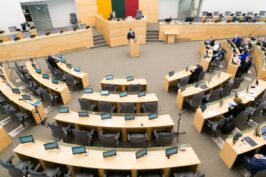
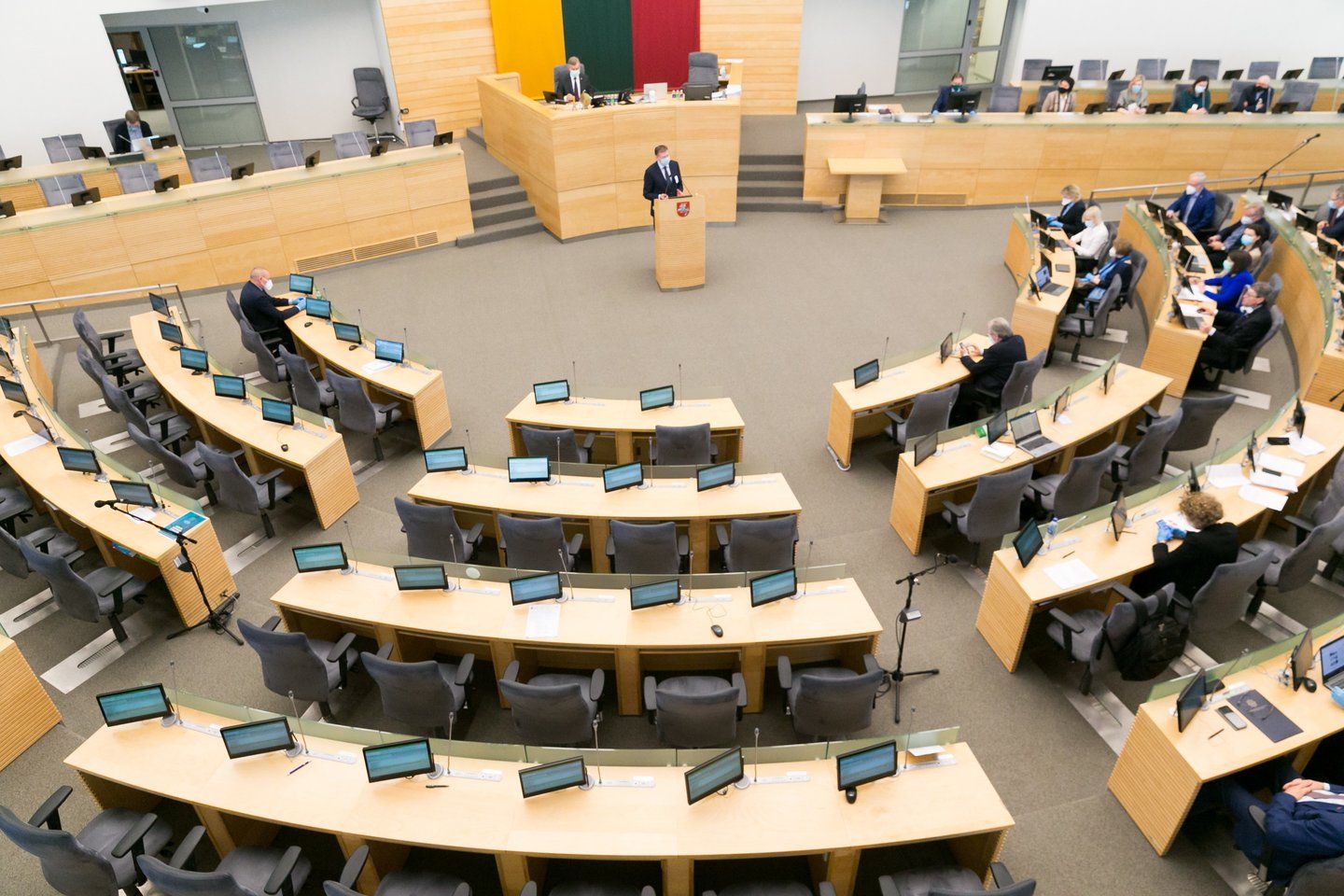
On 21 May 2021, the Commission of the Seimas of the Republic of Lithuania and the Lithuanian World Community adopted the Resolution “Regarding Exercise and Improvement of the Law on Citizenship of the Republic of Lithuania”, where, following the foreign practice when an institute of multiple/dual citizenship is considered an exception relating to the retained rights and obligations to the motherland, and drawing attention to the fact that those citizens of the Republic of Lithuania who live abroad pass to the future generations experience of statehood, acquired maturity, and provide the necessary guarantees of historical survival, the aforementioned Commission requested the President, the Seimas and the Government of the Republic of Lithuania the following:
1. To approve the Draft Law No XIVP-430 Amending Article 2 of the Law on Citizenship of the Republic of Lithuania No XI-1196, whereby it sets up the concept of a person who held citizenship of the Republic of Lithuania before 15 June 1940.
2. To amend the Law on Citizenship of the Republic of Lithuania by adding new circumstances to a list of special merits for the State of Lithuania, in order to retain Lithuanian citizenship, by way of exception, after acquiring citizenship of another state.
3. To provide for the possibility for the relevant institutions to assess individual applications of Lithuanian citizens for retention of Lithuanian citizenship after acquiring citizenship of another state, by carrying out the assessment of negative consequences after the loss of citizenship, following the principle of proportionality of the EU law.
4. To amend Article 38(4) of the Law on Citizenship of the Republic of Lithuania No XI-1196, by expanding a list of documents evidencing that a person held Lithuanian citizenship before 15 June 1940.
5. To postpone a preparation of documents concerning the loss of citizenship of the Republic of Lithuania and adoption of resolutions relating thereto, until the planned Referendum on the retention of Lithuanian citizenship to be held in 2024.
MIGRATION LAW CENTER


On 22 September 2021, by the Resolution No 761, the Government of the Republic of Lithuania has changed the Resolution No 280 of 03 April 2013 of the Government of the Republic of Lithuania “On the Grant of Authority while Exercising the Law on Citizenship of the Republic of Lithuania and Approval of the Description of the Procedure for Preparing Documents Relating to Citizenship of the Republic of Lithuania” and set forth it in a new version, and approved the Description of the Procedure for Submission and Examination of Documents Relating to Lithuanian Citizenship.
The Description of the Procedure for Submission and Examination of Documents Relating to Lithuanian Citizenship alongside other matters regulates the procedure for submitting applications for Lithuanian citizenship and notices, by stipulating the following:
Applications for citizenship of the Republic of Lithuania, notices, applications for permission to swear an oath to the Republic of Lithuania, as well as applications for issuance or change of the certificate of the right to reinstate citizenship, and applications for issuance or change of the certificate of Lithuanian origin must be completed in Lithuanian or English through the Lithuanian Migration Information System (hereinafter – MIGRIS). Moreover, the documents enclosed to these applications or notices, except for travel documents, must be drawn up in Lithuanian or a translation of such documents into Lithuanian is to be provided, which must be certified by a person or institution having a right to attest a translation from one language to another.
Further, each individual document issued by the foreign states and each individual document approved by the foreign state under the notarial or equivalent procedure must be legalized or certified by Apostille, unless otherwise specified in International Treaties of the Republic of Lithuania, or EU legislation.
When filling in an application for Lithuanian citizenship through MIGRIS, the persons shall submit data specified in the Procedure and annex digital copies of original documents or copies of such originals certified under the notarial or equivalent procedure.
If a person is willing that his or her application for reinstatement of citizenship of the Republic of Lithuania would be examined by using documents annexed to an application for Lithuanian citizenship of other person, he or she shall submit a signed application of free form, wherein this person indicates that he or she requests to examine his or her application for reinstatement of citizenship of the Republic of Lithuania by using documents annexed to an application for Lithuanian citizenship of other person, and specifies this person (name, surname, date of birth).
If the representative authorized by the person will submit original documents to the Migration Department, he or she has to additionally append a representation agreement or a certified copy thereof (where the original documents are provided by lawyers), or the power of attorney certified by the notary public (where the original documents are provided by other authorized representatives).
Finally, the Description of the Procedure for Submission and Examination of Documents Relating to Lithuanian Citizenship also regulates the procedure for acceptance and examination of applications for Lithuanian citizenship and notices, the decision-making procedure, as well as the procedure for collecting a certificate of the right to reinstate Lithuanian citizenship or certificate of Lithuanian origin, and the procedure for recognizing these certificates invalid.
MIGRATION LAW CENTER


Citizens of Lithuania who have registered marriage in foreign institutions must include it into record of Lithuania.
In order to include marriage into record of Lithuania, citizens of Lithuania shall submit documents to the Civil Registry Office by residence thereof, or to the Lithuanian Embassy or Consulate.
The following documents shall be submitted:
- Document confirming the identity of a person;
- Certificate of marriage issued by the foreign institution;
- If one of the spouses is a citizen of foreign state, who is divorced or is a widower, a document issued by competent authority of the state thereof, approving his/her divorce or death of the former spouse shall be additionally provided.
Documents issued by foreign institutions must be legalized or certified with an Apostille certificate, unless specified otherwise by the International Treaties of the Republic of Lithuania and the European Union legislation, and must be translated into Lithuanian.
After a submission of documents, the Lithuanian equivalent to this document shall be issued to citizens of Lithuania.
MIGRATION LAW CENTER
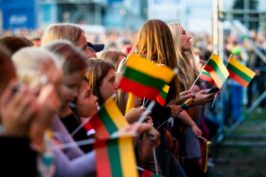
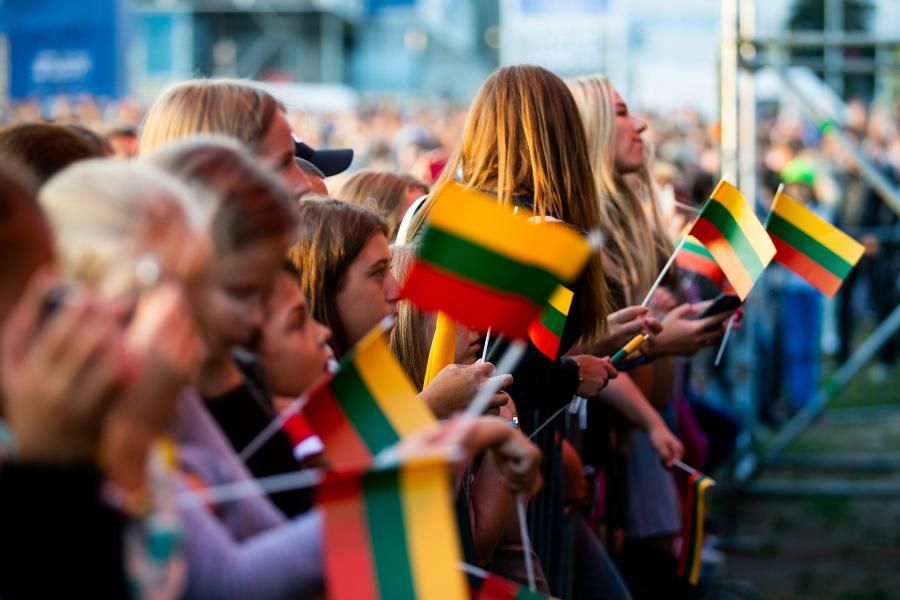
On 20 January 2022, the Seimas of the Republic of Lithuania adopted the Law Amending Article 2 of the Republic of Lithuania Law on Citizenship No XI-1196, whereby it sets up the concept of a person who held citizenship of the Republic of Lithuania before 15 June 1940.
Moreover, Article 2 of the Law on Citizenship of the Republic of Lithuania was amended by paragraph 11, which establishes that
“A person who held Lithuanian citizenship before 15 June 1940 shall mean a person who held citizenship of the Republic of Lithuania at any time prior to 15 June 1940. This concept shall not embrace individuals who have lost Lithuanian citizenship after carrying out the mandatory procedures provided for in the laws of the Republic of Lithuania and for whom decisions on the loss of Lithuanian citizenship stipulated in the laws of the Republic of Lithuania have been adopted.”
This amendment to the Law on Citizenship of the Republic of Lithuania is aimed at mitigating the burden of proof for those persons who are applying for reinstatement of Lithuanian citizenship. Clarifications of legal acts provided by the Courts of the Republic of Lithuania have determined the practice applied by the Migration Department in proceedings concerning reinstatement of Lithuanian citizenship, when individuals applying for reinstatement of Lithuanian citizenship had a disproportionately high burden of proof laid on them to provide evidence that an ancestor (or the person himself) who possessed Lithuanian citizenship had not lost it by 15 June 1940. Furthermore, a person or his ancestor (parents, grandparents, great-grandparents, or one of them) had to be a Lithuanian citizen before 15 June 1940 and on 15 June 1940.
It was assessed during the process of restoration of Lithuanian citizenship on 15 June 1940 whether a person, who fled the Republic of Lithuania before 15 June 1940, acquired citizenship of a foreign state. The moment of acquiring foreign citizenship is of vital importance, as well as the basis of acquiring citizenship of a foreign state, documents with which the person who departed from the territory of the present Republic of Lithuania lived abroad, whether he has addressed the Lithuanian mission abroad for the issuance (extension) of documents evidencing Lithuanian citizenship. Until now, the person who has acquired foreign citizenship before 15 June 1940 was considered to have lost citizenship of the Republic of Lithuania prior to 15 June 1940.
The Methodology of Examining Applications for Reinstatement of Citizenship of the Republic of Lithuania prepared by the Migration Department on 10 September 2020 laid down that if, on the basis of documents submitted by an applicant and/or received by the Migration Department, it is identified that a person, by whom citizenship of the Republic of Lithuania held before 15 June 1940 is being proved, voluntarily renounced or deliberately sought to renounce citizenship of the Republic of Lithuania (e.g. when acquiring citizenship of another state, he indicated that he had renounced citizenship of the Republic of Lithuania), but there is no data that a person would have lost (ceased) citizenship of the Republic of Lithuania prior to 15 June 1940, then such a person is considered to have lost citizenship of the Republic of Lithuania before 15 June 1940, and a submission for non-reinstatement of citizenship of the Republic of Lithuania is to be prepared.
The Supreme Court of Lithuania clarified in the Resolution in the Civil Case No e3K-3-284-219/2020 dated 04 November 2020 that provisions for the legal regulation of citizenship of the interwar Republic of Lithuania provide grounds to make a conclusion that a person, who held citizenship of the Republic of Lithuania according to norms of laws effective at that time, could have been recognized as having lost citizenship of the Republic of Lithuania in the cases established by law. It should be concluded from the specified regulation that the reasons determining this may have been related to a person’s departure to another state, his failure to perform certain obligations (to register, withdraw identity documents), and loss of connection with the Lithuanian life.
Amendments to the Law on Citizenship of the Republic of Lithuania adopted by the Seimas of the Republic of Lithuania should mitigate the burden of proof for those persons who are applying for reinstatement of Lithuanian citizenship. They should also expand the possibilities of exercising the right to reinstate citizenship of the Republic of Lithuania.
The Law Amending Article 2 of the Republic of Lithuania Law on Citizenship No XI-1196 enacted by the Seimas of the Republic of Lithuania shall come into force after it is signed by the President of the Republic of Lithuania.
MIGRATION LAW CENTER


In accordance with legislation of the Republic of Lithuania, if at least one of parents of a child who was born in a foreign state is a citizen of Lithuania, birth of a child must be included into record of the Lithuanian Civil Registry Office. Birth of a child must be included into record of Lithuania regardless of citizenship of a child.
When including birth of a child into record, the following documents must be submitted:
- Document confirming the identity of a person;
- Birth certificate issued by a foreign state. This document must be legalized or certified with an Apostille certificate, unless specified otherwise by the International Treaties of the Republic of Lithuania and the European Union legislation, and must be translated into Lithuanian.
Documents may be submitted to:
- The Lithuanian Civil Registry Office.
- The Lithuanian diplomatic mission, which will transfer documents to the Lithuanian Civil Registry Office;
- By using E-Government Gateway Portal.
Documents may be transferred in person or through an authorized person in Lithuania in the Civil Registry Office, applications have been sent whereto.
MIGRATION LAW CENTER
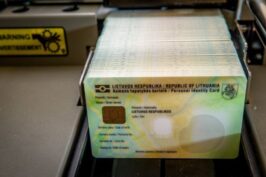
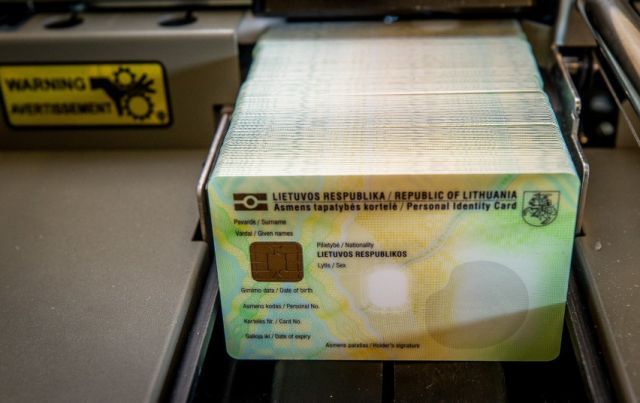
Since 21 June 2021, Lithuania has enacted e-resident card which will enable aliens to use administrative, public or commercial services electronically rendered in Lithuania. The willing persons can already submit applications for e-resident status and obtain e-resident card with a recorded electronic identification certificate and a qualified electronic signature certificate.
Thus, the aliens will be able to use the same electronic services as Lithuanian nationals, for example, a possibility of connecting to the Electronic Government Gateway and signing of documents by e-signature, as well as connecting to the Lithuanian Migration Information System (MIGRIS) through the Electronic Government Gateway. The range of services provided to e-residents will be gradually expanded in the future, by providing the aliens with opportunity to electronically develop business relationship, set up and manage a company, perform financial operations, and receive other e-services.
Applications for e-resident card are submitted through the Information System MIGRIS. Afterwards, the alien will have to physically arrive at the Migration Department in Lithuania. Decision on granting e-resident status will be taken immediately. During this visit, a production of e-resident card will be also ordered, which will be available for pick-up within 5 (five) business days. Currently, collection of e-resident card will be available only at the territorial branches of the Migration Department in Lithuania. From the next year, it is also planned to provide e-resident service to individuals residing abroad.
MIGRATION LAW CENTER


In March 2021, by orders of the Minister of the Interior of the Republic of Lithuania, citizenship of the Republic of Lithuania was reinstated to aliens in the following descending order:
citizenship of the Republic of Lithuania was mostly reinstated to persons born in South Africa – 72 persons, the second place – to persons born in Brazil – 63 persons, and the third place – to persons born in Israel – 50 persons. In total, in March 2021, citizenship of the Republic of Lithuania was reinstated to 225 persons who were born in the following countries:
Country of birth/Number of persons
South Africa 72
Brazil 63
Israel 50
USA 14
Russia 7
Argentina 4
Ukraine 4
Latvia 3
Lithuania 2
Mexico 2
United Kingdom 1
Germany 1
Australia 1
Uruguay 1
TOTAL: 225

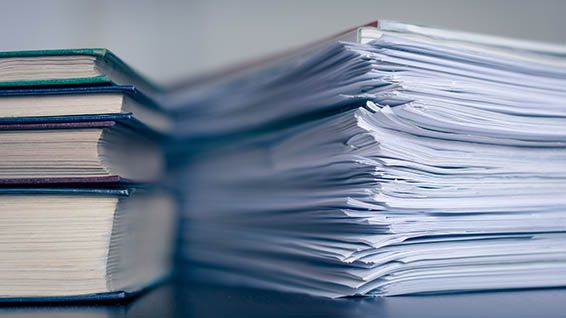
Reinstatement of citizenship of the Republic of Lithuania is regulated by the Republic of Lithuania Law on Citizenship, wherein paragraph 1 of Article 9 provides for that:
“Persons who held citizenship of the Republic of Lithuania before 15 June 1940 and their descendants, who have not acquired citizenship of the Republic of Lithuania before the entry into force of this law, shall have an indefinite right to reinstate citizenship of the Republic of Lithuania, irrespective of whether they are permanently residing in the Republic of Lithuania or in any other state.”
Persons referred to in paragraph 1 of Article 9 of the Republic of Lithuania Law on Citizenship may reinstate citizenship of the Republic of Lithuania, provided they are not citizens of another state. The requirement to renounce citizenship of another state shall not apply to persons who, pursuant to subparagraph 2, 3 or 4 of Article 7 of the Republic of Lithuania Law on Citizenship, may be citizens of both the Republic of Lithuania and another state at the same time.
Subparagraph 2, 3 and 4 of Article 7 of the Republic of Lithuania Law on Citizenship, regulating the cases when a citizen of the Republic of Lithuania may be a citizen of another state at the same time, establishes that a citizen of the Republic of Lithuania may be a citizen of another state at the same time, provided he meets at least one of the following conditions:
- he is a person who was exiled from the occupied Republic of Lithuania before 11 March 1990 (Subparagraph 2 of Article 7 of the Republic of Lithuania Law on Citizenship)
- he is a person who fled the Republic of Lithuania before 11 March 1990 (Subparagraph 3 of Article 7 of the Republic of Lithuania Law on Citizenship)
- he is a descendant of a person referred to in subparagraph 2 or 3 of this Article (Subparagraph 4 of Article 7 of the Republic of Lithuania Law on Citizenship)
Attention should be drawn to the fact that, in accordance with the currently valid case law of the Republic of Lithuania, a matter of the loss of citizenship of the Republic of Lithuania prior to 15 June 1940 is relevant in a process of reinstating citizenship of the Republic of Lithuania, i.e. it is important that, at the moment of departure from the current territory of the Republic of Lithuania, a person would not only be a citizen of the Republic of Lithuania, but also would not have lost citizenship of the Republic of Lithuania before 15 June 1940 due to the voluntary actions thereof.
It should be noted that the loss of citizenship of the Republic of Lithuania used to be approved by data and/or documents in the Lithuanian Central State Archives regarding the loss of person’s citizenship of the Republic of Lithuania.
On 10 September 2020, the Methodology of Examining Applications for Reinstatement of Citizenship of the Republic of Lithuania prepared by the Migration Department laid down that if, on the basis of documents submitted by an applicant and/or received by the Migration Department, it is identified that a person, by whom citizenship of the Republic of Lithuania held before 15 June 1940 is being proved, voluntarily renounced or deliberately sought to renounce citizenship of the Republic of Lithuania (e.g. when acquiring citizenship of another state, he indicated that he renounced citizenship of the Republic of Lithuania), but there is no data that a person would have lost (ceased) citizenship of the Republic of Lithuania prior to 15 June 1940, then such a person is considered to have lost citizenship of the Republic of Lithuania before 15 June 1940, and a submission for non-reinstatement of citizenship of the Republic of Lithuania is being prepared.
The Supreme Court of Lithuania clarified in 04 November 2020 Resolution in the Civil Case No e3K-3-284-219/2020 that provisions for the legal regulation of citizenship of the interwar Republic of Lithuania provide grounds to make a conclusion that a person, who held citizenship of the Republic of Lithuania according to norms of laws effective at that time, could have been recognized as having lost citizenship of the Republic of Lithuania in the cases established by law. It should be concluded from the specified regulation that the determining reasons may have been related to a person’s departure to another state, his failure to perform certain obligations (to register, withdraw personal documents), and loss of connection with the Lithuanian life.
Pursuant to the afore-mentioned case law of the Republic of Lithuania, the Migration Department has tightened up assessment of the loss of citizenship of the Republic of Lithuania before 15 June 1940. It is currently being assessed whether a person, who fled the Republic of Lithuania before 15 June 1940, acquired citizenship of another state, the moment of acquisition of foreign citizenship is relevant, as well as the basis for acquiring foreign citizenship, documents with which the person, who fled the current territory of the Republic of Lithuania, lived abroad, whether he has applied to the Lithuanian mission for the issue (renewal) of documents confirming citizenship of the Republic of Lithuania. At present, it is recognized that a person, who acquired citizenship of foreign state before 15 June 1940, shall be deemed to have lost citizenship of the Republic of Lithuania before 15 June 1940.
MIGRATION LAW CENTER


The Ministry of Foreign Affairs of the Republic of Lithuania (MFA) has submitted a proposal to the Migration Department under the Ministry of the Interior of the Republic of Lithuania to allow Lithuanian emigrants and descendants thereof to reinstate citizenship of the Republic of Lithuania, only if they come to the Republic of Lithuania to submit such applications physically. It should be noted that the Ministry of Foreign Affairs of the Republic of Lithuania has denied this fact by issuing a notice pleading an error as regards thereof.
In accordance with the Republic of Lithuania Law on Citizenship, persons who held citizenship of the Republic of Lithuania before 15 June 1940 and their descendants shall have a right to reinstate citizenship of the Republic of Lithuania. Whereas the persons shall have a right to reinstate citizenship of the Republic of Lithuania without renouncing the held citizenship of another state, provided they are persons who held citizenship of the Republic of Lithuania before 15 June 1940 and exiled from the occupied Republic of Lithuania or left the current territory of the Republic of Lithuania before 11 March 1990, and descendants of such persons.
Due to an increased number of applications for reinstatement of citizenship of the Republic of Lithuania in several regions of the world – South Africa and Latin America, a decision was made to encourage foreign Lithuanians, who are willing to reinstate citizenship of the Republic of Lithuania, to visit the Republic of Lithuania, get acquainted with its history and culture, thereby inducing them to participate in the activities of the Lithuanian community abroad.
Following the discussion and dissatisfaction concerning such obligation emerged between the Lithuanian emigrants, the Ministry of Foreign Affairs of the Republic of Lithuania has submitted an official clarification on the submission of documents of persons seeking to reinstate citizenship of the Republic of Lithuania, wherein it approved that persons willing to reinstate citizenship of the Republic of Lithuania and submit documents in this regard to competent authorities of the Republic of Lithuania, will not be obliged to arrive in the Republic of Lithuania. It should be noted that such a procedure is not provided for and arrival in person to the Migration Department under the Ministry of the Interior of the Republic of Lithuania for the matter of reinstatement of citizenship shall remain not an obligation, but rather an opportunity.
Pursuant to information provided by the Ministry of Foreign Affairs of the Republic of Lithuania, persons entitled to reinstate citizenship of the Republic of Lithuania and seeking to do hereof, will be able to continue doing this by choosing a more convenient way – coming to the diplomatic mission or consular post of the Republic of Lithuania or directly to the Migration Department under the Ministry of the Interior of the Republic of Lithuania.
The proposal of the Ministry of Foreign Affairs of the Republic of Lithuania was related to implementation of a new procedure for submitting documents regarding citizenship of the Republic of Lithuania. The Ministry of Foreign Affairs of the Republic of Lithuania offers that a person will have to fill in applications regarding citizenship of the Republic of Lithuania, in Lithuanian or English, through the Lithuanian Migration Information System (MIGRIS) and attach supporting documents to the application. The person should come to the diplomatic mission or consular post of the Republic of Lithuania and submit the originals of these documents only after receiving the confirmation of the Migration Department under the Ministry of the Interior of the Republic of Lithuania, that the application was submitted through MIGRIS and supporting documents thereof are acceptable. Thereby, a repeated arrival to the diplomatic mission or consular post of the Republic of Lithuania for submission of supporting documents would be avoided.
MIGRATION LAW CENTER
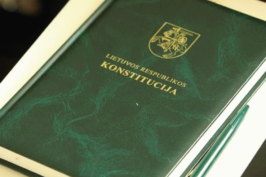
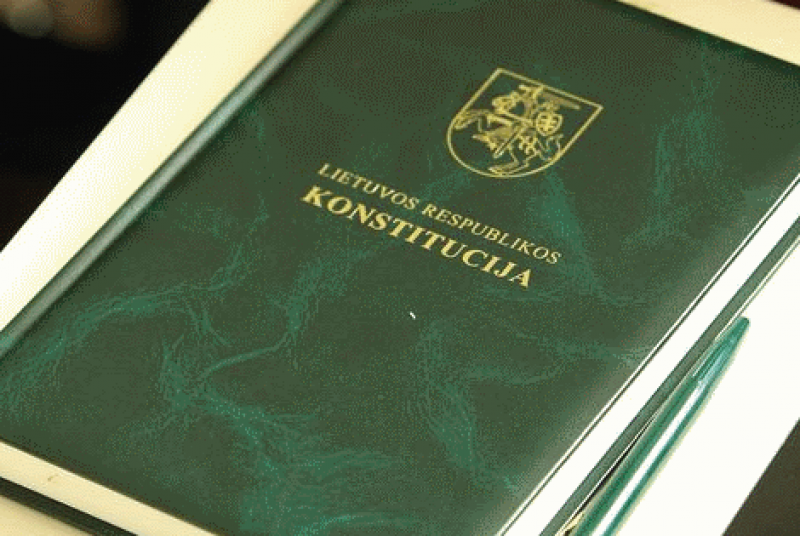
Upon restoration of independence of the Republic of Lithuania on 11 March 1990, issues of citizenship of the Republic of Lithuania were solved on the basis of the Lithuanian SSR Law on Citizenship of 03 November 1989.
Upon re-establishment of an independent state of Lithuania on 11 March 1990, the Provisional Basic Law of the Republic of Lithuania was adopted, Part 1 of Article 13 whereof stipulated that “The attributes of Lithuanian citizenship, conditions and procedures for receiving and losing it shall be defined by the Law on Lithuanian Citizenship”.
It has been established in Article 3 of the Law “Regarding the Provisional Basic Law of the Republic of Lithuania” adopted on 11 March 1991 that “Laws and other legal acts valid in Lithuania until this moment that do not contradict the Provisional Basic Law of the Republic of Lithuania shall remain in force.” There were no legal norms in the Law on Citizenship of the Lithuanian SSR that would contradict the Provisional Basic Law, therefore, this Law became the Law on Citizenship of the Republic of Lithuania after 11 March 1991. The concepts “Lithuanian SSR”, “Citizenship of the Lithuanian SSR”, “Citizen of the Lithuanian SSR” of this Law have been interpreted as changed into the concepts “Republic of Lithuania”, “Citizenship of the Republic of Lithuania”, “Citizen of the Republic of Lithuania”, respectively.
According to Article 1 of the Lithuanian SSR Law on Citizenship of 03 November 1989, the following persons shall be citizens of the Lithuanian SSR:
“1) Persons who were citizens of the Republic of Lithuania, children and grandchildren of such persons, as well as other persons who were permanent residents on the current territory of the Lithuanian SSR prior to 15 July 1940, and their children and grandchildren who now are permanent residents on the territory of the Lithuanian SSR;
2) Persons who have a permanent place of residence in the Lithuanian SSR, provided they were born on the territory of the Lithuanian SSR, or have provided evidence that at least one of their parents or grandparents was born on the said territory, and provided that they are not citizens of another state;
3) Other persons who, up to and including the date of entry into force of this Law, have been permanent residents on the territory of the Republic and have here a permanent place of employment or another constant legal source of support. Such persons shall freely choose their citizenship during two years following the entry into force of this Law;
4) Other persons who have acquired citizenship of the Lithuanian SSR under this Law.”
Part 2, Article 2 of this Law provided for that “Persons referred to in paragraphs 1, 2, and 3 of Article 1 of this Law who wish to acquire the passport of a citizen of the Lithuanian SSR, shall sign a pledge to the Republic promising to observe the Constitution and laws of the Lithuanian SSR, and to respect the sovereignty and territorial integrity of Lithuania”.
According to the Lithuanian SSR Law on Citizenship adopted on 03 November 1989, citizenship of foreign state could only be retained by citizens of another state, who acquired citizenship of the Republic of Lithuania by way of exception.
On 05 December 1991, a new Law on Citizenship of the Republic of Lithuania was adopted, which was valid until 01 January 2003. Then a new Law on Citizenship of the Republic of Lithuania was adopted on 17 September 2002.
Upon adoption of the Law on Citizenship of the Republic of Lithuania on 05 December 1991, a requirement not to have citizenship of another state was not applied to persons of Lithuanian descent who had citizenship of the Republic of Lithuania and departed from Lithuania during the period from 15 June 1940 to 11 March 1990, and to persons residing in other states, who have applied for the reinstatement of citizenship of the Republic of Lithuania.
On 04 April 2011, the Law on Citizenship of the Republic of Lithuania adopted on 02 December 2010 came into force, which clearly defined cases when a citizen of Lithuania may be a citizen of both the Republic of Lithuania and another state at the same time. This Law is also applicable now. On the basis of the Law on Citizenship of the Republic of Lithuania of 02 December 2010, the following are the cases when dual citizenship in the Republic of Lithuania is possible:
- A person was exiled from the occupied Republic of Lithuania before 11 March 1990 or is a descendant of the person who was exiled from the occupied Republic of Lithuania before 11 March 1990 (child, grandchild or great-grandchild);
- A person departed from the Republic of Lithuania before 11 March 1990 or is a descendant of the person who departed from the Republic of Lithuania before 11 March 1990 (child, grandchild or great-grandchild);
- A child has acquaired dual citizenship by birth;
- Cases of adoption;
- Cases of marriage;
- Acquisition of citizenship of the Republic of Lithuania by way of exception or while having refugee status.
Person exiled from the occupied Republic of Lithuania before 11 March 1990 means a person who held citizenship of the Republic of Lithuania before 15 June 1940 or his descendant, who were forcibly expelled from Lithuania by decisions of institutions or courts of occupation regimes in the period from 15 June 1940 to 11 March 1990 for reasons of resistance to occupation regimes, political or social reasons, or reasons of origin.
Person who fled Lithuania before 11 March 1990 means a person who held citizenship of the Republic of Lithuania before 15 June 1940 or his descendant, who left the current territory of the Republic of Lithuania before 11 March 1990 to reside permanently in another state, if their permanent residence on 11 March 1990 was outside Lithuania. This term does not embrace persons who departed from the territory of Lithuania to the territory of the former Soviet Union after 15 June 1940.
According to the data of the Migration Department under the Ministry of the Interior of the Republic of Lithuania, since April 2011 citizenship of the Republic of Lithuania has been restored to 9 661 persons having connection with citizenship of the Republic of Lithuania until 15 June 1940 – these were mostly cases of multiple citizenship. Citizenship of the Republic of Lithuania is most frequently restored by citizens of the following states: Israel, Republic of South Africa, Brazil, Argentina, Uruguay, United States of America, Russia, Ukraine, Venezuela.
MIGRATION LAW CENTER


According to the current legislation of the Republic of Lithuania and the provisions of the current action plan for political prisoners and exiles and their family members returning to Lithuania in 2015-2017, confirmed by the law dated March 5, 2014, the government assistance for immigration and social integration is provided not only to rehabilitated political prisoners and exiles who have returned to Lithuania for permanent residence but also their children.
Upon returning to Lithuania, moving expenses are compensated. In addition, upon returning to Lithuania, the family is given a lump-sum allowance and job seekers are registered in the territorial employment agency of the Republic of Lithuania, which provides them with any kind of employment services. If an employment agency fails to offer a job by profession, it may offer educational and job retraining courses. Also, it is possible to attend Lithuanian language courses. The Department organizes and pays for course attendance and exams.
A returnee who wishes to receive government assistance must submit a petition to the Department with the following documents:
1. Certificate of the legal status of a returnee being deported or certificate of rehabilitation.
2. Documents confirming the kinship.
3. Proof of expenses.
The petition is considered and a decision on it is made within 30 days after the petition is submitted.
After the decision to grant assistance is made, the money is transferred to a personal account in the bank indicated by the returnee within 5 days and the returnee receives a message about it.
The Government provides former exiles and their descendants with an opportunity to take free Lithuanian language courses. These courses are organized by the Lithuanian Language and Culture Centre at the Lithuanian University of Educational Sciences.
In different cities, similar Lithuanian language courses for foreigners and representatives of national minorities are conducted with the financial support of the Ministry of Social Security and Labour, the Educational Assistance Service, and the Department of National Minorities. Detailed information can be found on the websites of the above state institutions.
During 1992-2016, the Government provided 2,012 families of returnees with apartments. The expenses on providing accommodation for this period amounted to about EUR 32 million. In the period from 2015 to 2017, about EUR 1.5 million were spent on the integration of former deportees and returnees. Over the next three years, the government will allocate EUR 3.9 million for the above needs and EUR 3.3 million will be spent on providing people with apartments.
As of the end of 2017, there were 194 families waiting for apartments.
This Programme is carried out and implemented by the Department of Supervision of Social Services of the Ministry of Social Security and Labour.
MIGRATION LAW CENTER

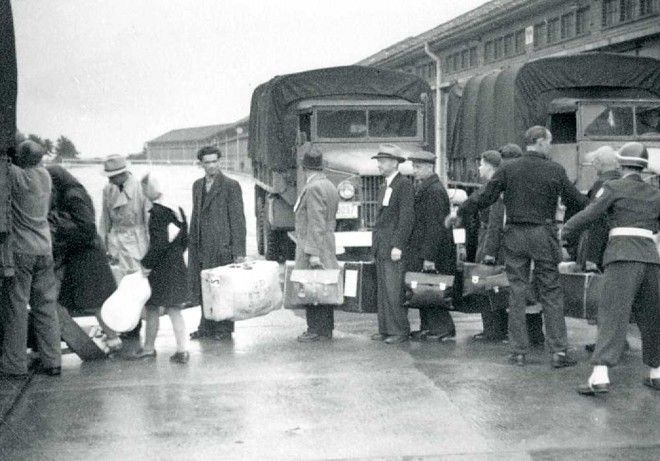
After the war between Germany and Soviet Union in 1941, Lithuania had to survive the exploitation of another occupier, atrocities and deportations, and massacres of Lithuanian citizens.
In the summer of 1944, at the approach of the German and Russian military front, Lithuanian residents massively departed to the West. It was a natural, unplanned, non-organized and unmanaged escape from home. It was thought that it would last if not days or weeks, then at least no longer than several months. These fugitives could not imagine that they would find themselves in the farthest countries of the world a few years later.
The following categories of emergence of Lithuanian residents in the West shall be distinguished:
1) Refugees who escaped due to the Soviet occupation of Lithuania on 15 June 1940. It is estimated that 1,000-2,000 people have left Lithuania.
2) Those who were moved to Germany according to the repatriation agreement concluded between Germany and the Soviet Russia on 10 January 1941. 50,141 persons departed during the period from 03 February 1941 to 25 March 1941, about 20,000 Lithuanians could be among the displaced.
3) Persons arrested under coercion and exiled during the German occupation:
a) Exiled under coercion by Germans to work in the Reich – 75,000. Their recruitment started in the middle of 1941, later on they were captured by all means. They have worked in industry and agriculture.
b) Coerted into German army or auxiliary military service – 50,000.
c) Coerted prisoners. A significant number of Lithuanian innocent victims in 1943-1944 was in prisons and concentration camps. About 10,000 Lithuanians, a total of about 30,000 Lithuanian citizens, were killed in concentration camps.
d) Evacuated to Germany, with German troops withdrawing from Lithuania, who were expelled to dig trenches, or servants escorting evacuated bodies from Lithuania.
4) Lithuanians who arrived in 1944, by saving their lives as the front and the second Soviet occupation approached.
It is estimated that about 100,000 Lithuanians were moving from their homeland at that time, but only a part of them has reached the West.
In total, more than 250,000 Lithuanians were more or less forced to leave their homeland during the war.
On 31 December 1946, 58,805 Lithuanians were patronized by UNRRA in Germany, about 6,500 Lithuanians were in other regions. Most of them consisted of refugees of 1944. There were also refugees from the Klaipėda region, that until 1939 was the territory of Lithuania. Part of those refugees should be considered Lithuanians, even though they had German citizenship and were not accepted to camps.
Under general census of Germany carried out in 1950, 49,000 people who came from the Klaipėda region were counted. Only 3 per cent of them have lived in camps and received UNRRA welfare. Thus, at least 10,000 of Lithuanians from the Small Lithuania should be added to 70,000 Lithuanians from the Great Lithuania.
Most of Lithuanians, who arrived to the West after war, settled themselves in camps of various sizes in Germany and Austria.
Provisions of the Lithuanian legislation shall entrench the right of persons who held Lithuanian citizenship until 15 June 1940 and departed from Lithuania until 11 March 1990, and the right of their descendants to restore Lithuanian citizenship upon preservation of the current citizenship (right into dual (multiple) citizenship).
A person willing to restore Lithuanian citizenship upon preservation of the current citizenship must prove the following main circumstances:
1. Lithuanian citizenship until 15 June 1940;
2. The fact of departure from Lithuania until 11 March 1990, or the fact of exile;
3. Family relationship;
4. Data change, if personal data was altered.
Documents confiming Lithuanian citizenship until 15 June 1940 are as follows:
1. Lithuanian internal or foreign passports issued until 15 June 1940;
2. Lithuanian foreign passports issued by the Lithuanian diplomatic missions or consular posts after 15 June 1940;
3. Documents certifying the person’s service in the Lithuanian Armed Forces or work in the civil service;
4. Birth certificates or other documents, wherein the held Lithuanian citizenship is directly indicated;
5. Personal certificates issued before 15 June 1940 in Lithuania, or personal certificates issued in accordance with documents that have been issued before 15 June 1940.
If the abovementioned documents are not available, the following documents can be submitted: documents about learning, work, life in Lithuania until 15 June 1940, as well as a foreign passport, and other documents.
An application for the restoration of Lithuanian citizenship shall be completed in Lithuanian. The documents enclosed thereto must be translated into Lithuanian and approved in accordance with the procedure established by legislation (Apostille or legalization procedure shall be applied).
Documents shall be submitted to the Migration Department or Lithuanian Embassy, or Consular Office abroad.
MIGRATION LAW CENTER
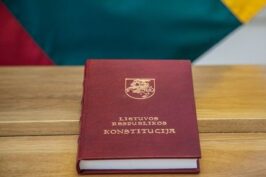
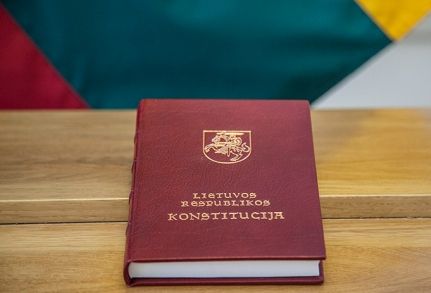
Citizens of the Republic of Lithuania shall have all rights, freedoms and responsibilities established by the Constitution, laws and other legal acts of the Republic of Lithuania, as well as international treaties to which the Republic of Lithuania is a party.
Citizen of the Republic of Lithuania must comply with the Constitution, laws and other legal acts of the Republic of Lithuania, as well as international treaties to which the Republic of Lithuania is a party, fulfil the responsibilities set forth therein, protect the interests of the Republic of Lithuania, help strengthen its power and authority, and be loyal to it.
Citizens of the Republic of Lithuania shall be entitled to freely leave the territory of Lithuania and return to it.
Citizens of the Republic of Lithuania shall freely move within the EU Member States, reside and work therein, under the same conditions as nationals of those Member States.
Citizens of the Republic of Lithuania can participate in political life of Lithuania, i.e. shall have a suffrage in Presidential elections, elections to the Seimas of Republic of Lithuania, municipal elections, and elections to the European Parliament.
The Republic of Lithuania shall defend and protect its citizens outside the territory of the Republic of Lithuania.
A citizen of the Republic of Lithuania may not be expelled from the territory of the Republic of Lithuania.
A citizen of the Republic of Lithuania may not be extradited to another state, except in cases provided for in international treaties to which the Republic of Lithuania is a party.
MIGRATION LAW CENTER
Read more:


The possession of citizenship of the Republic of Lithuania grants to a person certain rights, freedoms and guarantees, the aliens residing in Lithuania are not granted whereby, or are granted to a narrower extent. Therefore, it is a merit to be a citizen of the Republic of Lithuania for the following reasons:
– The possession of citizenship of the Republic of Lithuania shall be considered as the person’s permanent legal relationship with the State of Lithuania, which is based on mutual rights and obligatios. Citizens of the Republic of Lithuania shall have all rights, freedoms and responsibilities established by the Constitution, laws and other legal acts of the Republic of Lithuania, as well as international treaties to which the Republic of Lithuania is a party.
– The State of Lithuania shall defend and protect its citizens not only in the territory of the Republic of Lithuania, but also outside boundaries thereof.
– A citizen of the Republic of Lithuania may not be expelled from the territory of the Republic of Lithuania.
– A citizen of the Republic of Lithuania may not be extradited to another state, except in cases provided for in international treaties to which the Republic of Lithuania is a party.
– Citizens of the Republic of Lithuania shall be entitled to freely leave the territory of Lithuania and return to it.
– Citizens of the Republic of Lithuania shall freely move within the EU Member States, reside and work therein, under the same conditions as nationals of those Member States.
– Citizens of the Republic of Lithuania can benefit from visa issue privileges when travelling to countries, with which Lithuania has entered into agreements regarding an application of such privileges to its citizens (for instance, when travelling to Ukraine, Belarus, Russia).
– Citizens of the Republic of Lithuania shall participate in political life of the Republic of Lithuania, i.e. shall have a suffrage in Presidential elections, elections to the Seimas of Republic of Lithuania, municipal elections, and elections to the European Parliament.
– Citizens of the Republic of Lithuania can use services provided by the state health and social security systems, and other rights established by law.
MIGRATION LAW CENTER

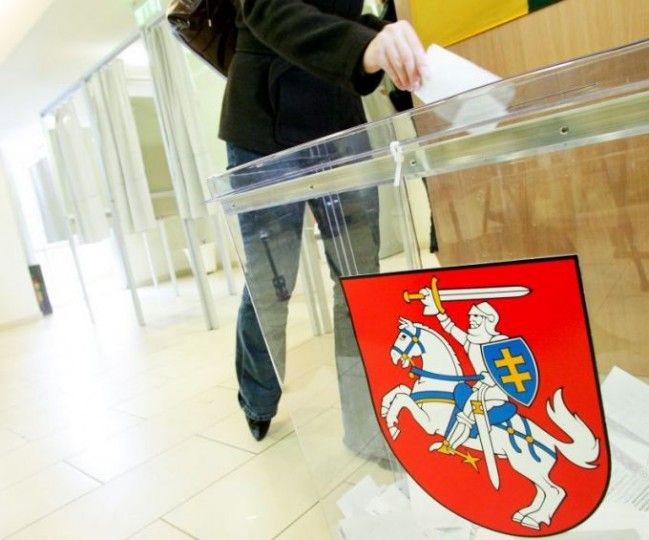
Voting on dual citizenship will take place during one day, i.e. the 12th of May, alongside the presidential elections and referendum on reducing the number of members of the Seimas from 141 to 121 initiated by the ruling Lithuanian Farmers and Greens Union herewith. This date was approved by the majority of votes of parliamentarians participating in the meeting of the Seimas. 85 members of the Seimas voted in favour of adoption, none of members of the Seimas voted “no”, and 3 parliamentarians refrained from voting.
The previously adopted Resolution of the Seimas to hold referendum on two days with a break of two weeks was explained by the Constitutional Court of the Republic of Lithuania as contradictory to the Constitution of the Republic of Lithuania. The Constitutional Court of the Republic of Lithuania has emphasized that a referendum on dual citizenship can only take place during one day, therefore, the 12th of May was chosen thereto.
The referendum will ask Lithuanian citizens whether they agree to grant dual citizenship to persons who departed to countries that comply with “Euro-Atlantic Integration Criteria”. Specific countries would be established by law.
Recently, dual citizenship cannot be acquired by emigrants who have left Lithuania after the Restoration of Independence and have acquired citizenship of another country.
Referendum on dual citizenship will be deemed happened and Article 12 of the Constitution of the Republic of Lithuania regarding citizenship will be amended, provided more than a half of all voters registered in a country votes in favour thereof.
Such high demands lead to worries of members of the Seimas that a referendum on dual citizenship may not happen, nevertheless, the majority agree that those Lithuanian citizens who have acquired citizenship of a country which complies with “Euro-Atlantic Integration Criteria” would be able to retain Lithuanian citizenship herewith.
MIGRATION LAW CENTER
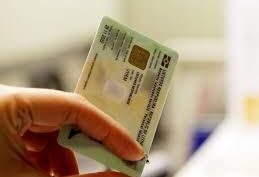
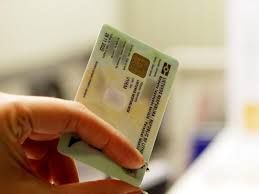
Since 01 March 2019, amendments to the Republic of Lithuania Law on the Legal Status of Aliens and Order No 1V-194 of the Minister of the Interior of the Republic of Lithuania “Regarding the Approval of the Description of the Procedure for Issuing a Certificate of the Right of Temporary or Permanent Residence in the Republic of Lithuania” as of 22 February 2019 have entered into force.
By this Order, from 01 March 2019, citizens of the Member States of the European Union and of the European Free Trade Association entitled to temporarily or permanently reside in the Republic of Lithuania will be issued with certificates of the new format – documents in the card form, wherein biometric data – facial image and two fingerprints – of EU citizens for the confirmation of identity will be electronically recorded.
Up to now, A4 format paper certificates approving the right of citizens of the European Union of temporal or permanent residence in the Republic of Lithuania were issued. Nevertheless, very often due to a document of such form EU citizens used to confront with problems in public, as well as in private life, when it was necessary to provide the certificate.
Certificates already issued will be valid for the entire specified term, however, from 01 March 2019, EU citizens will be able to replace them with the document of a new type – certificate. Terms of validity of this document remain the same, certificates confirming the right of temporal residence in the Republic of Lithuania are being issued for the duration of 5 years or for the shorter stipulated period of residence in the Republic of Lithuania, whereas the certificates confirming the right of permanent residence in the Republic of Lithuania are being issued for the period of 10 years.
The certificates will be issued no later than within one month after the submission of the application. The public fee for the issue or renewal of the certificate is EUR 8.6.
Moreover, other amendments on the convenience of EU citizens have been adopted, precisely, not only the citizen of EU himself, but also a person authorized by him/her will be able to collect certificates. In certain cases, documents may be presented not only translated to Lithuanian, but also to English.
MIGRATION LAW CENTER
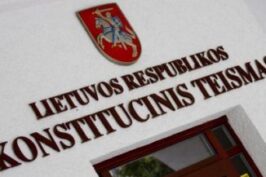
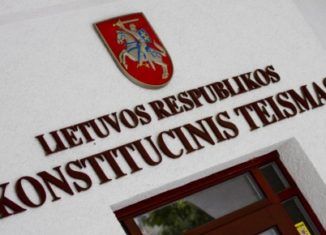
On 19 February 2019, the Constitutional Court of the Republic of Lithuania has adopted the ruling, whereby the referendum on dual citizenship cannot take place in two days. Such a ruling reduces the chances of adopting the necessary constitutional amendment, allowing more people to acquire dual citizenship.
In order for the referendum on dual citizenship to take place, the majority or about 1.3 millions voters residing in Lithuania must vote therein.
Most analysts agree that votes would be given for the amendment, allowing more people to acquire dual citizenship, however, a concern arises that it may be considered invalid due to an insufficient number of votes. The Seimas put efforts to increase the chances of success of the referendum on dual citizenship, allowing the voters to vote in two days together with the Presidential Elections in May 2019. After the Ruling of the Constitutional Court of the Republic of Lithuania allowing voters to vote only during one day, the chances of successful referendum on dual citizenship have dramatically reduced, as the set requirements are very high.
The Chairman of the Seimas Viktoras Pranckietis believes that in such a case the referendum on dual citizenship should be held on 12 May 2019, together with the first round of the Presidential Elections.
The Seimas of the Republic of Lithuania will have to adopt a new resolution regarding the procedure for referendum on dual citizenship.
MIGRATION LAW CENTER

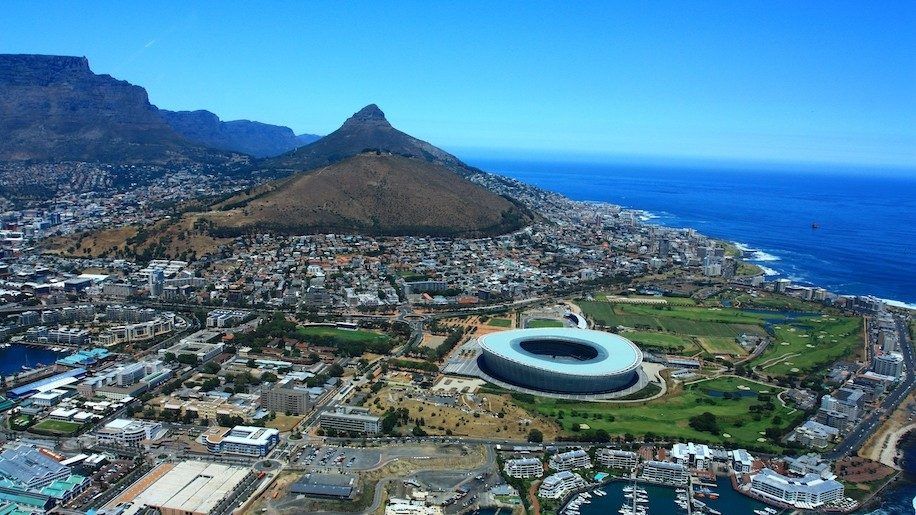
Since the end of the 19th century, Lithuania has been one of the Eastern European countries providing the largest number of emigrants to the World.
Lithuania has experienced four waves of emigration therefrom:
- economic emigration at the end of the 19th century and at the beginning of the 20th century;
- Emigration from Lithuania during the period 1920-1940;
- Emigration of political refugees who fled Lithuania at the end of World War II (Displaced Persons);
- Contemporary emigration from Lithuania.
A large number of residents emigrated from the territory of Lithuania to the present South African Republic at the end of the 19th century and at the beginning of the 20th century. Frequently, such emigration was influenced by economic reasons, as well as by ideological, political and historical motives: Czarist policy of Russification, growing national movement, defeat of the Revolution in 1905, wars, etc.
During the period of Independence of Lithuania (1918-1940), Lithuania experienced the second huge wave of emigration. The causes of such emigration were also mostly economic, but in certain cases historical and political.
In 1918–1940, after introduction of immigration quotas in the United States of America, the hugest flow of emigrants from Lithuania turned to South America. Lithuanians comprised the majority of emigrants, Jews were the second. The most part of emigrants of Jewish nationality departed to Palestine and the present South African Republic.
During the period 1920–1940, 102.511 residents emigrated from Lithuania, wherefrom 30.869 moved to the United States of America, 24.982 – to Brazil, 16.794 – to Argentina, 7.942 – to Canada, 4.437 – to Uruguay, and the rest 5.264 departed to other countries. 7.215 of all emigrants of Lithuania departed to the South African Republic, and 5.008 – to Palestine. The vast majority of those who departed to the South African Republic and Palestine were of Jewish origin. During years 1923–1939, approx. 25.000 Jews left Lithuania. During the period of 1920–1940, 7.200 Jews moved to the territory of the present South African Republic, and 5.000 Jews departed to Palestine. On the 4th decade of the 20th century, the emigration of Jews would have been much greater, but it was hindered by emigration restrictions in the United States of America and other countries, and by the policies of the English administration that restrained Jewish emigration to Palestine. The economic situation of the state was extremely difficult, at that time it was risky to set up a business, therefore, Jewish people emigrated to Palestine and the present South African Republic. The founders of the Jewish Community in the South African Republic were Jews who arrived there from Lithuania in the 19th century. In the South African Republic, the majority of Jews were comprised of aliens from Kaunas governorate. Currently, about 80 per cent of Jews in the South African Republic are Litvaks, i.e. Jews who came from Lithuania. More than a half of Litvaks in the South African Republic arrived from Panevėžys, Rietavas, Palanga, Joniškis and Šiauliai. The history of Lithuania’s Jews (Litvaks) reaches the early Middle Ages. A larger number of Jews arrived to the present territory of Lithuania at the end of the 11th century, while running from persecution of Jews during the period of Crusades, local massacre of Jews and exiles from German-speaking territories. At first, they moved to lands inhabited by Slavic people, and then reached Lithuania.
At the end of World War II, Lithuania has experienced the third wave of emigration, when political refugees started to depart from Lithuania. Reasons of such emigration were mainly political and historical, namely, World War II, consequences thereof, occupation of Lithuania. Lithuanians who forcibly fled Lithuania receded to camps for refugees, wherefrom they did not come back to the occupied homeland. These persons were forced political expatriates. After World War II, most Lithuanians settled down in German DP camps, also, in Austrian DP camps, where political refugees were protected by international organizations UNRA and IRO, which took care of the relief, placement of war refugees and later on of their further emigration. All persons who moved from their countries were named by the term Displaced Persons.
The Lithuanian Jewish Community was almost completely destroyed during the Holocaust in Lithuania. Due to the Jewish Holocaust during World War II, Lithuania has lost more than 90 per cent of its Jewish community.
After Restoration of Independence of Lithuania until now, Lithuania has experienced emigration influenced by economic reasons.
Persons who emigrated from Lithuania used to acquire citizenship of foreign state, whereas their children, grandchildren and great-grandchildren in most cases used to become non-Lithuanian citizens. It should be noted that, in accordance with Lithuanian legislation, citizenship of the Republic of Lithuania can be reinstated without renouncing the present citizenship of foreign state (dual citizenship) for persons, who held Lithuanian citizenship before 15 June 1940 and departed from Lithuania before 11 March 1991, as well as for descendants of such persons (children, grandchildren, great-grandchildren).
In such case, in order to reinstate Lithuanian citizenship without renouncing the present citizenship of another state, the following main circumstances must be proved:
- Lithuanian citizenship until 15 June 1940;
- Departure from Lithuania before 11 March 1990;
- Other circumstances (family relationship, change of name, surname, etc.).
It is established in the Law on Citizenship of the Republic of Lithuania that persons who held Lithuanian citizenship before 15 June 1940, and their descendants, who have not acquired Lithuanian citizenship before the entry into force of this law, shall have an indefinite right to reinstate Lithuanian citizenship, irrespective of whether the country of habitual residence thereof is Lithuania or another state.
Article 7 of the Law on Citizenship of the Republic of Lithuania provides for cases when the Lithuanian citizenship may be reinstated without renouncing the present citizenship of foreign state. It is established in this Article that a citizen of the Republic of Lithuania may be a citizen of another state at the same time, provided he is a person who fled the Republic of Lithuania before 11 March 1990, or is a descendant of such person.
MIGRATION LAW CENTER

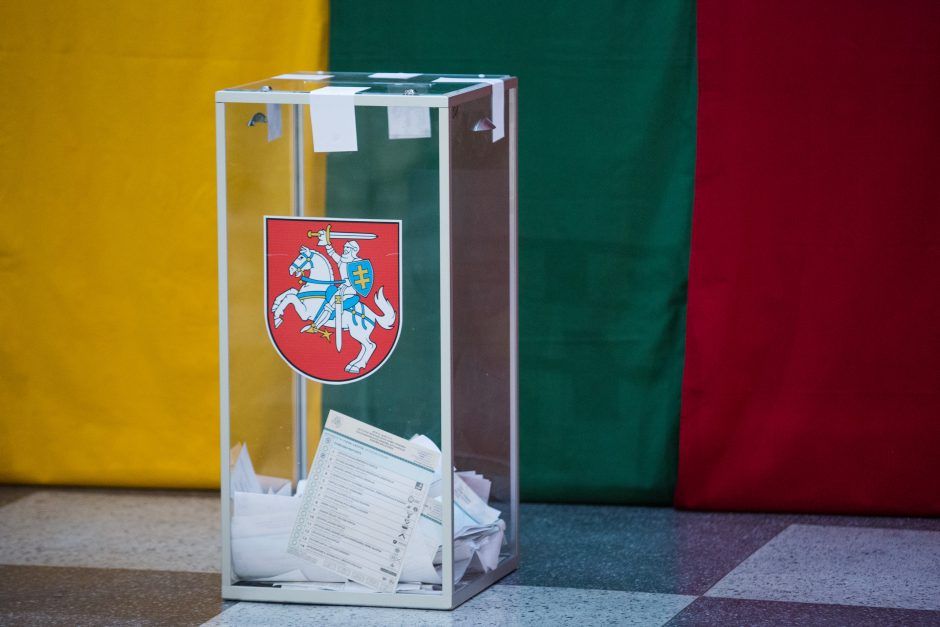
A long-awaited referendum on dual citizenship in Lithuania was held on 12 May 2019, alongside the first round of the presidential elections.
Although the referendum on dual citizenship is considered to have taken place, but votes of electors in favour thereof were insufficient. Therefore, Article 12 of the Constitution of the Republic of Lithuania regarding the retention of dual citizenship will not be amended.
Currently, there are approx. 2.4 million citizens in Lithuania who are included in the electoral register. For the referendum on dual citizenship in Lithuania to take place, a voter turnout voting in favour thereof had to be at least 1.2 million.
After having counted votes from all electoral districts, it turned out that 52.58 per cent of all eligible voters has voted in the referendum on dual citizenship. Nevertheless, in order to amend Article 12 of the Constitution of the Republic of Lithuania, 50 per cent of all registered voters of Lithuania had also to vote in favour thereof.
71.78 per cent of voters participating in the referendum has voted for the retention of dual citizenship, 26.04 per cent has voted against it. According to data of the CEC, 927,410 voters voted in favour of amendment of Article 12 of the Constitution of the Republic of Lithuania, whereas at least 1.2 million of all voters had to vote in favour thereof. It is therefore considered that this number of votes is insufficient and Article 12 of the Constitution of the Republic of Lithuania will not be amended.
MIGRATION LAW CENTER


In Lithuania the Lithuanian Migration Information System will start operating. This system is aimed at simplifying and quickening the process of submission and examination of applications and documents.
Applications of third-country nationals and EU citizens regarding documents listed thereunder will be provided to the Migration Department only by electronic means via the MIGRIS Information System:
– Applications of third-country nationals to issue/change a temporary or permanent residence permit in Lithuania;
– Applications of EU citizens to issue/change a certificate certifying the right to temporarily or permanently reside in the Republic of Lithuania;
– Applications of EU citizen’s family members to issue/change a card of permit of EU citizen’s family members to temporarily or permanently reside in Lithuania.
When submitting an application regarding the permit to reside in the Republic of Lithuania, the natural or legal person will have to sign in to the Lithuanian Migration Information System MIGRIS at address www.migracija.lt and provide all necessary documents. Application forms will have to be selected according to the alien’s nationality and purpose of arrival. Necessary documents can be provided by the alien himself or by his authorized representative, employee, higher school, etc.
When applying for an issue of permit to reside in Lithuania for the first time, the alien will have to create his personal account on a website www.migracija.lt. In order to create account, the e-mail address must be used, where the person will receive a password and will have to change it immediately, and other mandatory data.
Aliens having the right to reside in Lithuania and personal code granted herein will be able to log in the abovementioned system in the same way as Lithuanian citizens, i.e. by using e-signature, e-banking, and other opportunities. The natural or legal person of the Republic of Lithuania submitting the application for the alien will also have to use these usual means of authentication and recognition in electronic space.
When submitting an application by electronic means, the alien will have to book the time of arrival at the territorial unit of the Migration Department, arrive at the territorial unit of the Migration Department, irrespective of the declared place of residence thereof, and provide facial image and biometric data. The system will allow to choose the time of visit to the territorial unit of the Migration Department within a period of 2 months. The person will not be able to apply if he has not reserved his visit time.
Upon arrival for a visit at the territorial unit of the Migration Department, the person will have, alongside biometric data, provide originals of documents submitted electronically that were enclosed to the application. Originals will be returned after being verified by a specialist.
The alien will be able to pay the state fee for an issue of residence permit by bank transfer or cash, or bank card, upon arrival to the territorial unit of the Migration Department. There will no longer be a separate fee for document processing.
When the alien arrives at the specialist, he will check the documents submitted by the person with copies of documents submitted by e-mail, and will register the application. From the date of registration of the application, its examination term will start to be counted.
During the application examination terms which were valid until now, not only the application will be examined, but also a document will be produced.
After a positive decision is made, the person will have to come to the territorial unit of the Migration Department only to take a produced document.
If you need legal aid of lawyers of Migration Law, when submitting applications and other documents regarding an issue or change of temporary or permanent permits to reside in Lithuania, certificate of EU Citizen, or an issue or change of the card of permit of EU citizen’s family members to temporarily or permanently reside in Lithuania via the Lithuanian Migration Information System MIGRIS, please write at the following e-mail address: info@migration.lt or call by phone: +370 618 61886.
MIGRATION LAW CENTER


Lithuania has experienced four major waves of emigration of Lithuanians from Lithuania. Emigration of Lithuanians was influenced by different reasons, both economic, historical and political.
The major waves of emigration of Lithuanians from Lithuania shall be the following:
- economic emigration at the end of the 19th century and at the beginning of the 20th century;
- Emigration from Lithuania during the period 1920-1940;
- Emigration of political refugees who fled Lithuania at the end of World War II (Displaced Persons);
- Contemporary emigration from Lithuania.
The greatest emigration of Lithuanian residents to South America (Brasil, Argentina, Uruguay, Venezuela or other country in South America) occurred during the period of Independence of Lithuania. At this period, Lithuania experienced the second huge wave of emigration. The causes of this emigration were mostly economic, but in certain cases historical and political. During this period, emigration of Lithuanians to the United States of America decreased due to immigration quotas introduced in the United States of America. At that time, the majority of Lithuanians emigrated to Canada and South America (Brazil, Argentina, Uruguay, Venezuela or other country in South America), a part (mostly persons of Jewish nationality) emigrated to Palestine and South Africa. On the 3rd-4th decade of the 20th century, up to 60 per cent of all Lithuanian emigrants departed from Lithuania to South America.
In years 1920–1940, 102.511 residents emigrated from Lithuania. From this number, 30.869 residents departed to the United States of America, 24.982 – to Brazil, 16.794 – to Argentina, 7.942 – to Canada, 4437 – to Uruguay, and 5.264 moved to other countries. 7.215 residents emigrated to the South African Republic, to Palestine – 5.008 of all emigrants of Lithuania. The vast majority of those who departed to the South African Republic and Palestine were of Jewish origin.
Lithuanian emigration mostly increased to Brazil. In 1925, 22 residents moved to this country, in 1926 – 5.667 residents, in 1927 – 1.702, in 1928 – 1.199, and in 1929 – 4.536 emigrants from Lithuania. As emigration to Brazil decreased, the flow of emigrants shifted to Argentina. In 1928 – 2.151, in 1929 – 6.093, and in 1930 – 2.280 emigrants.
At the end of World War II, Lithuania has experienced the third wave of emigration, when political refugees started to depart from Lithuania. Such emigration was mainly influenced by the following political and historical reasons: World War II, consequences thereof, occupation of Lithuania. Lithuanians who forcibly fled Lithuania receded to camps for refugees, wherefrom they did not come back to the occupied homeland. These persons were forced political expatriates. After World War II, most Lithuanians settled down in German DP camps, also, in Austrian DP camps, where political refugees were protected by international organizations UNRA and IRO, which took care of the relief, placement of war refugees and later on of their further emigration. All persons who moved from their countries were named by the term Displaced Persons.
During years 1948-1950, Lithuanians from German and Austrian DP camps spread all over the World: a small part of Lithuanians left in Europe (the Great Britain, Germany, Austria), the huge wave of Lithuanians settled down in the United States of America, the rest part – in Canada, Australia, South American countries.
After Restoration of Independence of Lithuania until now, Lithuania has experienced emigration influenced by economic reasons.
Lithuanians who emigrated to countries in South America (Brazil, Argentina, Uruguay, Venezuela or other country in South America) used to acquire citizenship of foreign state, whereas their children, grandchildren and great-grandchildren in most cases used to become citizens of such foreign state. In order to maintain a legal relationship with Lithuanian emigrants, Lithuania provides for an institute for reinstatement of Lithuanian citizenship, which entitles a person, who held Lithuanian citizenship before 15 June 1940 and departed from Lithuania before 11 March 1991, to reinstate citizenship of the Republic of Lithuania without renouncing his present citizenship of foreign state (dual citizenship). Descendants of this person (children, grandchildren, great-grandchildren) can also use the possibility of reinstating the Lithuanian citizenship.
In accordance with the Law on Citizenship of the Republic of Lithuania, persons who had Lithuanian citizenship before 15 June 1940, and their descendants who have not acquired Lithuanian citizenship before the entry into force of this law, shall have an indefinite right to reinstate Lithuanian citizenship, irrespective of whether the country of habitual residence thereof is Lithuania or another state.
Article 7 of the Law on Citizenship of the Republic of Lithuania provides for cases when the Lithuanian citizenship may be reinstated without renouncing the present citizenship of foreign state. It is established in this Article that a citizen of the Republic of Lithuania may be a citizen of another state at the same time, provided he is a person who fled the Republic of Lithuania before 11 March 1990, or is a descendant of such person.
Subject to these provisions of the Law on Citizenship of the Republic of Lithuania, in order to reinstate Lithuanian citizenship without renouncing the present citizenship of another state, the following main circumstances must be evidenced:
- Lithuanian citizenship until 15 June 1940;
- Departure from Lithuania before 11 March 1990;
- Other circumstances (family relationship, change of name, surname, etc.).
MIGRATION LAW CENTER


If a citizen of a foreign state wishes to be employed in Lithuania and reside there on this base, he (she) should find a Lithuanian enterprise for employment. An alien wishing to get a job in Lithuania should have a qualification required for the desired position, the evidences of such qualification as well as (in certain cases) evidences of having at least 1-year experience in the relevant sector of activities within the 3 last years.
The list of documents required for providing a right to work and reside in Lithuania to a person depends on the character of the planned job, the qualification of the alien, the agreed salary and other circumstances.
If an alien plans to be employed as a highly qualified specialist in Lithuania, the principal documents to be submitted by him should include:
1. The evidences of the qualification of the person (such as diplomas, training completion certificates and so on);
2. The evidences of experience of the alien in the relevant sector of activities (such as a copy of the Employment Record, a Certificate issued by the Employer).
In such a case, the alien shall be issued a Work Permit. Prior to submission of the required documents to the Labour Exchange, the Lithuanian enterprise that plans to engage the alien should publish an announcement on a vacancy accessible for other pretenders as well (the announcement should be valid for at least 5 working days before the date of submission of the documents to the Labour Exchange). If another likely candidate is not found, the alien may submit the documents for issue a Work Permit. When the Work Permit is obtained, the alien may apply for issue a national visa D that provides a right to work and reside in Lithuania for a period up to 1 year to an alien. After expiry of the 1-year period, a Residence Permit may be issued to the person. The term for making a decision on issue a national visa D: up to 15 days. The term for making a decision on issue a Residence Permit: up to 2-4 months.
If a foreigner is a specialist with a high professional qualification, he (she) should apply for a residence permit in Lithuania (issuance of a Blue Card).


Setting up a new company is one of the first steps of a new business that requires special knowledge and skills. People who consider starting a business in Lithuania often ask themselves, whether it is better to set up a company, buy an already set-up company or invest in an already established and functioning business. All of the options are favourable when starting a business in Lithuania and all have their benefits and drawbacks.
Setting up a new company seems an attractive option to people because one can be sure that the company has no debts, no negative history, it may be given any name and registered at any address, one can define its branch of activity, etc. In the case of setting up a business a person may not always find it easy to create the company’s authorised capital, which currently, according to the requirements of the Lithuanian legislation, should not be lower than 3,000 EUR (in the case of Private Limited Liability Company), and in some cases it should even be higher. Meanwhile, the authorised capital of an already set up company is already created, and this is convenient in a way. The name is usually attributed to the company but it can be changed, or the company may be set up and sold to you with the name of your choice. The companies set up for sale usually have carried out no activities, therefore, there should be no worries with regard to their history.
Investing in the business that is active in Lithuania is a convenient choice because you do not have to worry about starting everything from the beginning. You may purchase a part of the business or an entire business, you may purchase shares of the company that carries out respective activity and continue the activity characteristic of critical mass, experience, necessary knowledge, strategy, etc. In this case it is recommended to check the company/business history, presence or absence of financial debts, obligations undertaken, leases and other agreements, etc.
Therefore, where should one start upon setting up a company in Lithuania? First of all, you should decide on the company name. Then the name should be registered in the Register of Legal Entities of Lithuania. After the name has been reserved and temporarily listed in the register, the step of documentation shall begin. After the necessary company documents are prepared, an accumulation account of the company is opened in one of the Lithuanian banks. The authorised capital of the company is placed in the accumulation account (in case when, according to the Lithuanian legislation, the authorised capital must be created). After the authorised capital is created, a bank certificate is obtained to confirm that. The set-up company must have the registry address of the residence. After the address of company residence is chosen, you should receive the consent of the owner of the immovable property to which address the company will be registered. The consent issued by a natural person should be in a notarial form, and the consent issued by a legal entity should be in a written form and confirmed with a legal entity’s stamp and signed by a representative of the legal entity. This consent along with other documents (company establishment act, articles of association, document of the director appointment, bank certificate on the created authorised capital, etc.) should be transferred to a Lithuanian notary for certification. The company establishment documents, certified by a notary, shall be transferred to the Register of Legal Entities. The company registry fee shall be paid. After registering the company, the Register of Legal Entities issues the statement which confirms this fact or the access key to the electronic system (you can login to this system and print the statement there). After the receipt of the statement the company stamp is ordered.
The procedure of purchasing a company (Private Limited Liability Company) usually begins with selecting a company from the list of companies on sale. After choosing the company, the sale documents of the company are prepared. From 01 January 2015 the sale and purchase documents of a company (Private Limited Liability Company) usually must be certified by a Lithuanian notary (in case 25 percent or more than 25 percent of the shares of a Private Limited Liability Company are for sale or the price of the shares is higher than 14,500 EUR). Later the change of data is registered in the Register of Legal Entities and the change of shareholders is registered in the electronic system JADIS.
In case of purchasing a business active in Lithuania, after the business has been found, the business purchase and sale documents are prepared. In case the company shares are not for sale and only the business is purchased, the documents do not need to be certified by a notary.
The company may be established, company shares or business may be purchased on the basis of the mandate. It is unnecessary to arrive at Lithuania.
Often the clients wonder what activity will my company set-up or purchased in Lithuania carry out. According to current practice, a company in Lithuania may carry out any activity that does not contradict the Lithuanian legislation and has this fact included in its articles of association. Certain branches of activity require licence or special permits.
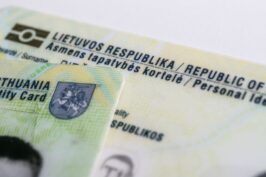
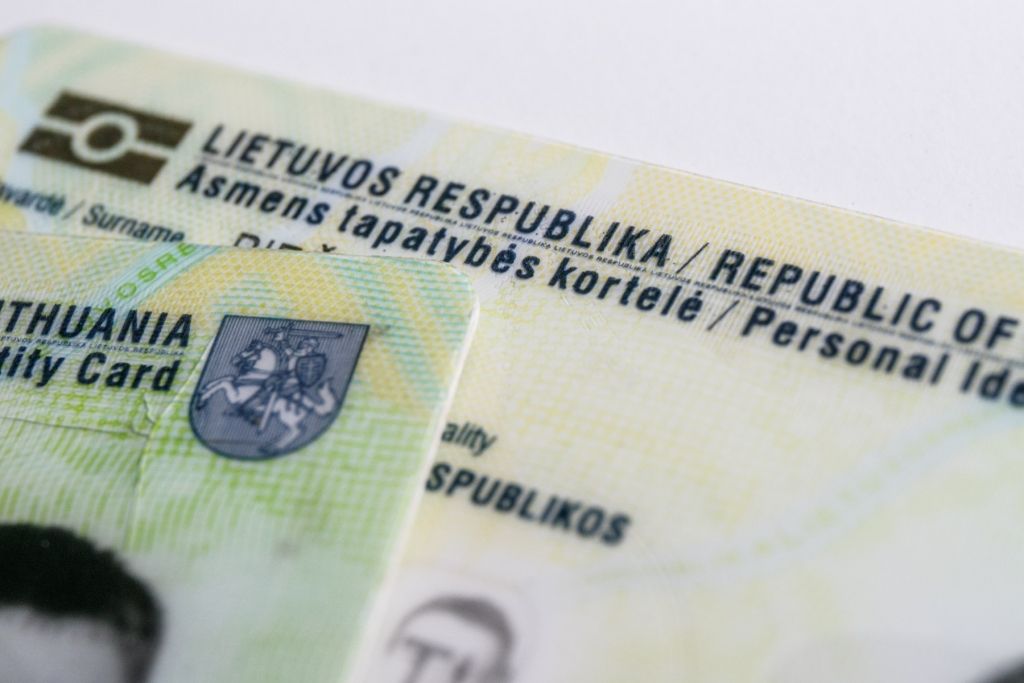
Since 31 January 2020, a possibility to order a personal identity card, as a matter of urgency, within 1 (one) working day has been renewed again.
Until now, it was necessary to wait 5 (five) working days after the order of a personal identity card as a matter of urgency. Currently, citizens of the Republic of Lithuania, who have submitted an application for identity document in any division of the Migration Department before 12 p.m., will be able to collect identity document on the next working day.
A personal identity card, as well as a passport of the Republic of Lithuania is generally issued within 1 (one) month.
Since 01 April 2020, a new service is intended to be provided – issuance of a passport of the Republic of Lithuania as a matter of special urgency, i.e. within the same working day. Currently, a passport of the Republic of Lithuania is issued, as a matter of urgency, within 5 (five) working days or 1 (one) working day.
At the moment, a legislative draft on the fee for issuing a passport of the Republic of Lithuania as a matter of special urgency has been prepared and is currently being coordinated at the Ministry of the Interior of the Republic of Lithuania. In order to collect a passport of the Republic of Lithuania as a matter of special urgency – within a few hours – a new fee of EUR 190 is intended to be established. Persons will be able to collect a passport of the Republic of Lithuania on the same day from 11 a.m., if ordered before 9 a.m., and on the same day from 2 p.m., if ordered before 12 p.m. It is worth mentioning that such a service will only be provided in Vilnius.
MIGRATION LAW CENTER


Lithuania has experienced four major waves of emigration of Lithuanians from Lithuania. Emigration of Lithuanians was influenced by different reasons, including both economic, historical and political reasons.
The main waves of emigration of Lithuanians from Lithuania shall be as follows:
- economic emigration at the end of the 19th century and at the beginning of the 20th century;
- Emigration from Lithuania during the period 1920-1940;
- Emigration of political refugees who fled Lithuania at the end of World War II (Displaced Persons);
- Contemporary emigration from Lithuania.
The greatest emigration of Lithuanian residents to Australia occurred after World War II, during the third wave of emigration from Lithuania, together with emigration of political expatriates (Displaced Persons), who fled Lithuania at the end of World War II.
At the end of World War II, the emigration of Lithuanians to Australia was affected by historical and political circumstances, namely, World War II, consequences thereof, occupation of Lithuania. Lithuanians as political refugees receded to DP camps, wherefrom they were further transferred to regions of independent countries, including Canada. Most Lithuanians settled down in German DP camps, also, in Austrian DP camps, where political refugees were protected by international organizations UNRA and IRO, which took care of the relief, placement of war refugees and later on of their further emigration. All persons who moved from their countries were named by the term Displaced Persons. During this period, a huge part of Lithuanian emigrants departed to Australia.
In 1948-1950, Lithuanians from German and Austrian DP camps spread all over the World: a small part of Lithuanians left in Europe (the Great Britain, Germany, Austria), the huge wave of Lithuanians settled down in the United States of America, the rest part – in Canada, Australia, and South American countries.
Lithuanians who emigrated to Australia used to acquire citizenship of foreign state, whereas their children, grandchildren and great-grandchildren in most cases used to become citizens of such foreign country. In order to maintain a legal relationship with Lithuanian emigrants, Lithuania provides for an institute for reinstatement of Lithuanian citizenship, which entitles a person, who held Lithuanian citizenship before 15 June 1940 and departed from Lithuania before 11 March 1991, to reinstate citizenship of the Republic of Lithuania without renouncing his present citizenship of foreign state (dual citizenship). Descendants of this person (children, grandchildren, great-grandchildren) can also use the possibility of reinstating the Lithuanian citizenship.
In accordance with the Law on Citizenship of the Republic of Lithuania, persons who had Lithuanian citizenship before 15 June 1940, and their descendants who have not acquired Lithuanian citizenship before the entry into force of this law, shall have an indefinite right to reinstate Lithuanian citizenship, irrespective of whether the country of habitual residence thereof is Lithuania or another state.
Article 7 of the Law on Citizenship of the Republic of Lithuania provides for cases when the Lithuanian citizenship may be reinstated without renouncing the present citizenship of foreign state. It is determined in this Article that a citizen of the Republic of Lithuania may be a citizen of another state at the same time, provided he is a person who departed from the Republic of Lithuania before 11 March 1990, or is a descendant of such person.
Subject to these provisions of the Law on Citizenship of the Republic of Lithuania, in order to reinstate Lithuanian citizenship without renouncing the present citizenship of another state, the following main circumstances must be substantiated:
- Lithuanian citizenship until 15 June 1940;
- Departure from Lithuania before 11 March 1990;
- Other circumstances (family relationship, change of name, surname, etc.).
MIGRATION LAW CENTER


Lithuania has experienced four major waves of emigration of Lithuanians from Lithuania. Emigration of Lithuanians was influenced by different reasons, both economic, historical and political.
The four waves of emigration from Lithuania are the following:
- economic emigration at the end of the 19th century and at the beginning of the 20th century;
- Emigration from Lithuania during the period 1920-1940;
- Emigration of political refugees who fled Lithuania at the end of World War II (Displaced Persons);
- Contemporary emigration from Lithuania.
The greatest emigration of Lithuanian residents to New Zealand occurred after the emigration of political refugees who fled Lithuania at the end of World War II, during the third wave of Lithuanian emigration from Lithuania, when the emigration of political refugees (Displaced Persons) who fled Lithuania at the end of World War II took place.
At the end of World War II, the emigration of Lithuanians to New Zealand was influenced by the following historical and political circumstances: World War II, consequences thereof, occupation of Lithuania. Lithuanians as political refugees receded to DP camps, wherefrom they were further transferred to regions of independent countries, including Canada. Most Lithuanians settled down in German DP camps, also, in Austrian DP camps, where political refugees were protected by international organizations UNRA and IRO, which took care of the relief, placement of war refugees and later on of their further emigration. All persons who moved from their countries were named by the term Displaced Persons. During this period, a huge part of Lithuanian emigrants departed to Australia.
During years 1948-1950, Lithuanians from German and Austrian DP camps spread all over the World: a small part of Lithuanians left in Europe (the Great Britain, Germany, Austria), the huge wave of Lithuanian emigrants settled down in the United States of America, the rest part – in Canada, Australia, New Zealand, and South American countries.
Lithuanians who emigrated to New Zealand used to acquire citizenship of foreign state, whereas their children, grandchildren and great-grandchildren in most cases used to become citizens of such foreign country. In order to maintain a legal relationship with Lithuanian emigrants, Lithuania provides for an institute for reinstatement of Lithuanian citizenship, which entitles a person, who held Lithuanian citizenship before 15 June 1940 and departed from Lithuania before 11 March 1991, to reinstate citizenship of the Republic of Lithuania without renouncing his present citizenship of foreign state (dual citizenship). Descendants of this person (children, grandchildren, great-grandchildren) can also use the possibility of reinstating the Lithuanian citizenship.
In accordance with the Law on Citizenship of the Republic of Lithuania, persons who had Lithuanian citizenship before 15 June 1940, and their descendants who have not acquired Lithuanian citizenship before the entry into force of this law, shall have an indefinite right to reinstate Lithuanian citizenship, irrespective of whether the country of habitual residence thereof is Lithuania or another state.
Article 7 of the Law on Citizenship of the Republic of Lithuania provides for cases when the Lithuanian citizenship may be reinstated without renouncing the present citizenship of foreign state. It is established in this Article that a citizen of the Republic of Lithuania may be a citizen of another state at the same time, provided he is a person who fled the Republic of Lithuania before 11 March 1990, or is a descendant of such person.
Pursuant to these provisions of the Law on Citizenship of the Republic of Lithuania, in order to reinstate Lithuanian citizenship without renouncing the present citizenship of another state, the following main circumstances must be proved:
- Lithuanian citizenship until 15 June 1940;
- Departure from Lithuania before 11 March 1990;
- Other circumstances (family relationship, change of name, surname, etc.).
MIGRATION LAW CENTER


There are likely to be some occasions, when old documents are necessary, it is noticed that certificates of birth of individuals or their birth records did not remain. In such a case, there is a possibility to apply for a birth record recovery.
In order to recover any record of an act of civil status, a person may apply, personally or via the representative, to the Civil Registry Office, or via the MEP Information System.
When recovering a birth record, a person must first submit to the Civil Registry Office an application for recovery of birth record.
Together with an application for recovery of birth record, the following documents must also be attached:
- Notification/ response of the Lithuanian State Historical Archives on missing birth record;
- Identity document;
- Other documents related to a person whose record will be recovered, and to his/ her parents.
In the event that a birth record is to be recovered for the deceased person, the applicant’s identity document and documents evidencing the applicant’s family relationship with the deceased person must be submitted together with an application.
The following documents shall be considered eligible: person’s, whose record is to be recovered, baptism certificate, marriage conclusion document (if a person was married), documents of marriage dissolution, birth of children, marriage of parents, if parents are deceased, then death certificates of parents, birth certificates of brothers and sisters, other extracts from the civil status records of the deceased person and his/ her close relatives, approving existence of the record which is being recovered.
After having submitted an application for recovery of birth record, the Civil Registry Office also collects information on such documents, which the applicant cannot submit, but is able to provide information thereof.
When an authorized representative applies for recovery of a record of an act of civil status, the power of attorney must specify that a person is authorized to correct, amend, recover and receive all records related to actions carried out in the Civil Registry Office.
MIGRATION LAW CENTER


The grounds for the loss of Lithuanian citizenship were established in the Lithuanian Constitutions of 1922, 1928, 1938, also, in the Provisional Law on Lithuanian Citizenship of 09 January 1919, and in the Law on Lithuanian Citizenship of 08 August 1938. The Lithuanian citizenship could be lost on acquiring citizenship of another state, moreover, when residing abroad for more than two years without a foreign passport or with an invalid foreign passport.
The Provisional Law on Lithuanian Citizenship did not establish that a person who acquired citizenship of another state should lose Lithuanian citizenship. The principle of inadmissibility of dual citizenship was firstly consolidated in the Constitution of the Republic of Lithuania of 1922, wherein it was stipulated that “Nobody can be a citizen of Lithuania and a citizen of another state at the same time” (Article 9). The analogous provision was entrenched in the first paragraph of Article 10 of the Constitution of the State of Lithuania of 1928, wherein it was specified that “Nobody can be a citizen of Lithuania and a citizen of another state at the same time”. Nevertheless, the second paragraph of this Article has made an exception clause: “A Lithuanian citizen shall not lose his/her citizenship rights when becoming a citizen of any American region, if he/she performs certain obligations provided for by law.”
An official note of the Ministry of the Interior of 21 March 1935 stated that “The Lithuanian citizen by acquiring citizenship of another state shall not lose Lithuanian citizenship, if he/she has not withdrawn from the Lithuanian citizenship in accordance with the relevant procedure, thus, having received a consent of the Ministry of the Interior to withdraw from the Lithuanian citizenship.”
It has been established in Article 10 of the Constitution of 15 May 1928 that the Lithuanian citizen who has become a citizen of any American region shall not lose his/her citizenship rights, provided he/she performs certain obligations laid down by law. It should be noted that although in accordance with the specified constitutional provision the Lithuanian citizen did not lose his/her citizenship rights only if he/she “performs certain obligations provided for by law”, however, laws did not establish what obligations must be fulfilled by the person in order to retain the held Lithuanian citizenship. Therefore, the Lithuanian citizen, after acquiring citizenship of any American region, was considered not to have lost the Lithuanian citizenship. Such person was not required to perform any duties in order to be treated the Lithuanian citizen. Nevertheless, persons who acquired citizenship of any American region and retained the held Lithuanian citizenship were not allowed to have two passports at the same time: in such cases when “Lithuanian citizen after becoming a citizen of any American region and later on settling in Lithuania requests to issue him/her the Lithuanian internal passport, request thereof must be satisfied according to the rules for internal passports, <…> his/her American passport must be stored in the internal passport issuance file without annulment thereof, and it must be returned, at the request of the holder, clean and in such case the issued internal passport must be deprived and kept in the file.”
On the other hand, the constitutional provision that the Lithuanian citizen shall not lose Lithuanian citizenship after becoming a citizen of any American region was understood in a way that the held Lithuanian citizenship shall be retained only by such person who was Lithuanian citizen before an acquisition of citizenship of any American region. Persons who acquired citizenship of any American region by birth could not be issued with the Lithuanian internal passports.
Dual citizenship issues were discussed much more clearly in the Lithuanian Constitution of 1938. It has been established in paragraph 1 of Article 13 of the Constitution that “a citizen who acquired foreign citizenship shall lose the Lithuanian citizenship.” Thus, the principle of prohibition of dual citizenship was consolidated. Nevertheless, this prohibition was not absolute: it was specified in paragraph 2 of this Article that “in cases provided for by law, a citizen having a foreign citizenship may not cease Lithuanian citizenship.”
The provision that the Lithuanian citizenship shall be lost “after accepting citizenship of foreign state” was also set out in the Law on Lithuanian Citizenship, as of 08 August 1938 (paragraph 1, Article 20). In accordance with Article 21 of this Law, “Lithuanian citizen, having accepted citizenship of foreign state, shall be allowed to retain Lithuanian citizenship with the permission of the Minister of the Interior.” The laws did not specify other cases (except for the indicated permission of the Minister of the Interior) when the Lithuanian citizen, having accepted citizenship of another state, could also preserve the held Lithuanian citizenship.
The cases when the Lithuanian citizenship used to be lost after acquisition of citizenship of another state also embraced such cases when the Lithuanian citizenship was lost by a woman, “if she married a foreigner and hereby acquired citizenship of her husband.”
Attention should be drawn to the fact that a person willing to acquire citizenship of another state had to obtain acquittance from the Lithuanian citizenship. This institute was established neither in the Provisional Law on Lithuanian Citizenship, nor in any other law. Formation thereof was influenced by the fact that the Provisional Law on Lithuanian Citizenship did not provide for the person’s right to renounce Lithuanian citizenship. Such legal regulation caused problems to those Lithuanian citizens who wanted to acquire citizenship of another state when laws of such state forbade dual citizenship and when a person was requested to provide evidence that a person no longer was a citizen of “former” state thereof. The practice gradually formed that the Lithuanian citizen willing to acquire citizenship of another state had to submit an application to the Ministry of the Interior for acquittance from the Lithuanian citizenship.
The persons willing “to withdraw from the Lithuanian citizenship” had to submit applications to the county governor, and those living abroad – to the diplomatic mission or consulate of the Republic of Lithuania.
The issuance of the document of withdrawal from the Lithuanian citizenship alone did not mean that a person lost Lithuanian citizenship thereupon. A person was considered the Lithuanian citizen until he/she acquired citizenship of another state.
It should be noted that a declaration that a statutory basis has arisen was not enough for the loss of Lithuanian citizenship. The person was considered to have lost Lithuanian citizenship only then, when the Council of Ministers adopted a decision regarding the loss of Lithuanian citizenship. Such decision could be adopted by the Council of Ministers only on a proposal of the Minister of the Interior.
Information source: V. Sipavičius “Citizenship of the Republic of Lithuania in 1918-2001”
Read more:
MIGRATION LAW CENTER
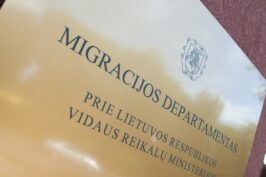

Upon the Resolution No 633 of the Government of the Republic of Lithuania of 26 June 2019 on the change of Resolution No 280 of the Government of the Republic of Lithuania of 03 April 2013 “Concerning grant of authority while implementing the Law on Citizenship of the Republic of Lithuania and approval of Description of the procedure for preparing documents relating to citizenship of the Republic of Lithuania”, the Description of the procedure for preparing documents relating to citizenship of the Republic of Lithuania has been altered. New requirements for a preparation of documents relating to citizenship of the Republic of Lithuania shall be applied since 01 July 2019.
According to the Description of the procedure for preparing documents relating to citizenship of the Republic of Lithuania that has been valid until 01 July 2019, applications regarding reinstatement, renunciation, return of citizenship of the Republic of Lithuania and grant thereof by naturalization or in simplified procedure, applications regarding children’s citizenship of the Republic of Lithuania, as well as notices were submitted directly upon arrival at the County Chief Police Commissariat or the Migration Department under the Ministry of the Interior of the Republic of Lithuania, or diplomatic missions or consular posts of the Republic of Lithuania, through an authorized person or other representative, through a courier, also, by registered mail, or by electronic means.
Since 01 July 2019, there left no possibility to submit the aforementioned applications and notices through a courier or by registered mail.
It is specified in clause 3 of the Description of the procedure for preparing documents relating to citizenship of the Republic of Lithuania which is currently in force that applications regarding reinstatement, renunciation, return of citizenship of the Republic of Lithuania and grant thereof by naturalization or in simplified procedure, applications regarding children’s citizenship of the Republic of Lithuania, as well as notices shall be submitted directly upon arrival at the Migration Department under the Ministry of the Interior of the Republic of Lithuania, through an authorized person or other representative, also, by electronic means, whereas applications and notices mentioned hereinbefore to diplomatic missions or consular posts of the Republic of Lithuania shall be submitted directly upon arrival or by electronic means.
Legal assistance and consultations of lawyers in Lithuanian citizenship matters by e-mail: info@migration.lt or by phone +370 618 61886.
MIGRATION LAW CENTER

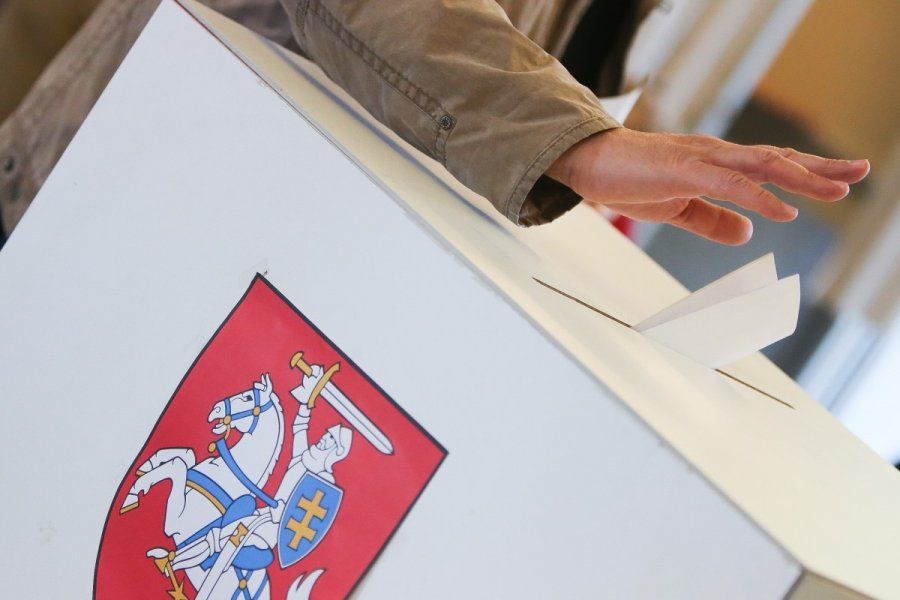
It is entrenched in the Constitution that no one may be a citizen of both the Republic of Lithuania and another state, except for individual cases provided for by law, and this provision can only be replaced by referendum. The dual citizenship legalization is mostly desirable by those who left Lithuania after the restoration of independence on 11 March 1990, who, with some exceptions, cannot have dual citizenship. Previously, the Constitutional Court has explained that dual citizenship cannot be a widespread phenomenon, and legalization thereof by law would contradict the Constitution.
Currently, two wordings are considered regarding the legalization of dual citizenship, which would allow to retain the citizenship of Lithuania by birth.
One wording sounds the following: citizenship acquired by birth cannot be lost against the will of the person. Another wording was formed in a way that Part 2 of Article 12 would be changed as follows: except for cases provided for by the Constitutional Law, no one may be a citizen of both the Republic of Lithuania and another state.
The Seimas working group has to decide on the wording of the referendum scheduled for publication in conjunction with the presidential elections in 2019 or with 2020 elections to the Seimas. In order to change Article 12 of the Constitution, more than half of the citizens need to be involved, and more than half of yes votes of all citizens must be gathered.
The Lithuanian World Community is afraid that after the announcement of referendum, it may not be possible, and suggests to choose a later date thereof. Politicians are interested to resolve this issue as soon as possible and state that it is possible to hold a referendum in 2019, but there is a need for a public awareness campaign, that all citizens of Lithuania would receive all the necessary information.
MIGRATION LAW CENTER


On 02 March 2018, the Order of the Director of the Migration Department No. 3K-54 “Regarding the approval of the description of procedure of assessing criteria which are followed when identifying whether there are serious grounds to believe that a risk of illegal migration of the alien may arise” entered into force. The provisions of the Order are aimed at ensuring an effective control of aliens entering Lithuania by preventing the abuse of established migration procedures.
From this moment when considering aliens’ applications for the issue or replacement of temporary residence permits, applications for the issue of permanent residence permits, when making decisions to annul residence permits or when determining the basis of risk of illegal migration, the criteria provided for in the Law, which are specified in clauses 6-7, will be taken into account:
- When examining an application of the alien to issue or replace a temporary residence permit, an application to issue a permanent residence permit, when making a decision to annul a temporary residence permit of the alien, and when determining whether there are serious grounds to think that a risk of illegal migration of the alien may arise, the following criteria should be taken into account:
6.1. it was found out that the alien willing to obtain a residence permit submitted to the Migration Department documents which have been unlawfully obtained or forged;
6.2. it was identified that the alien willing to obtain a residence permit submitted to the Migration Department the data which are implausible;
6.3. there are serious grounds to believe or it has been identified within the last 5 years that there are serious grounds to think that a marriage of convenience, a registered partnership of convenience or a fake adoption have been concluded, or that the company, whose participant or manager is the alien, or the host company established in the Republic of Lithuania, into which the alien is transferred inside the company, is fictitious;
6.4. it was determined that the company, wherein the alien engaged or intended to engage in legal activities, is related to persons, who are mediators in the process of obtaining visas or residence permits for the aliens, by establishing fictitious companies or concluding fictitious marriages;
6.5. it was found out that the alien’s center of interest is in another Member State of the European Union or the European Free Trade Association (for example, place of residence, place of learning or studies, workplace, place of business);
6.6. it was ascertained that the alien having a residence permit which was issued in the Republic of Lithuania resides or has resided in another Member State of the European Union for more than 6 months and has not notified the institution authorized by the Ministry of the Interior of the Republic of Lithuania or failed to comply with the requirement to declare the departure from the Republic of Lithuania set forth in Part 5, Article 4 of the Republic of Lithuania Law on Declaration of the Place of Residence;
6.7. the Member State of the European Union or the European Free Trade Association shall submit to the Migration Department an application regarding the return (readmission) to the Republic of Lithuania of the alien illegally staying in that country;
6.8. The State Border Guard Service at the Ministry of the Interior of the Republic of Lithuania (hereinafter referred to as the State Border Guard Service) has been submitted within the last 5 years a conclusion that there are serious grounds to believe that a risk of illegal migration of the alien may arise;
6.9. The State Border Guard Service submits a conclusion that there are serious grounds to believe that a risk of illegal migration of the alien may arise;
6.10. the alien refuses to be questioned personally or during the interview submits incomplete, superficial or ambiguous answers, avoids answering or does not answer the questions asked;
6.11. the alien contributes to illegal migration of other aliens (for instance, contributes to the organization of establishment of fictitious companies, a marriage of convenience, a registered partnership of convenience or a fake adoption, contributes to the preparation of documents which the aliens submit to the Migration Department in order to obtain a residence permit or visa and which contain implausible information, while being a natural person or manager of the legal entity, submits an application to approve invitation to the alien to whom the issue of visa has been denied or canceled or he has been forbidden to enter the Republic of Lithuania due to the fact that the aforementioned alien has not substantiated the purpose and conditions of the intended stay or there are serious grounds to believe that the visa was obtained in an unfair manner);
6.12. it was determined that the alien who submitted an application within a period of the last 5 years to issue a permanent residence permit in accordance with Clause 8, Part 1, Article 53 of the Law, provided he had a temporary residence permit issued, failed to comply with imperative requirements of the Law, provided for this particular basis for obtaining a temporary residence permit, and this formed a basis for the annulment of his temporary residence permit.
- When identifying whether there are serious grounds to believe that a risk of illegal migration of the alien may arise, other criteria not described herein can be assessed, when it is determined in respect of certain individual circumstances that the alien seeks or has sought during the last 2 years before the day of submission of the alien’s application for the issue or replacement of a temporary residence permit, the date of submission of the application for the issue of a permanent residence permit, or during the last 5 years until the day of formalizing a temporary residence permit issued to the alien, or changed and valid, the abuse of established procedures related to the residence and work of aliens in the Republic of Lithuania, the objectives of the alien’s entry and residence in the Republic of Lithuania are different from those declared officially, reasonable doubts arise due to the purpose and conditions of the alien’s entry or residence in the Republic of Lithuania, due to an honest intension of the alien to engage in legal activity, work, study in the Republic of Lithuania, and other circumstances (on the basis of the issue of a permanent residence permit under Clause 8, Part 1, Arctile 53 of the Law, a period of the last 5 years shall be assessed).
When identifying whether there are serious grounds to believe that a risk of illegal migration of the alien may arise, the period of the last 2 years until the date of submission of investigated application of the alien to issue or replace a residence permit or until the date of formalizing an issued or changed and valid residence permit shall be assessed following the criteria laid down in subclauses 6.2 and 6.6.
In accordance with the criteria provided for in subclauses 6.4, 6.7 and 6.10 of the Description, the period of the last 5 years until the date of submission of investigated application of the alien to issue or replace a residence permit or until the date of formalizing an issued or changed and valid residence permit shall be assessed.
It shall be treated that there are serious grounds to believe that a risk of illegal migration of the alien may arise, if after the assessment of individual circumstances related to a particular alien at least two criteria indicated in subclauses 6.2–6.8 and in clause 7 of the Description have been identified or at least one criterion specified in subclauses 6.1, 6.9–6.12 of the Description has been determined.
MIGRATION LAW CENTER


On 12 January 2018, an agreement was signed regarding an implementation of the Project “Creation of Electronic Migration Services”. This project will seek to ensure that the process of migration service provision would become consistent and clear for their recipients. The Project is planned to be implemented until January 2021.
After the implementation of this Project, an opportunity will be provided to obtain all migration services rendered through one e-services portal, electronic migration gateway – “I arrive to live in Lithuania”. It is believed that the services provided hereby will become more qualitative and efficient, and more easily accessible for users, it will save time and financial costs.
MIGRATION LAW CENTER


The Resolution of the Government of Lithuania entered into force on 14 December 2017, whereby powers to implement the Republic of Lithuania Law on Citizenship were granted to:
- Migration Department under the Ministry of the Interior of the Republic of Lithuania
- County Chief Police Commissariats
Forms of applications concerning the reinstatement of citizenship of Lithuania were approved (they cannot be followed, but the application must include information stipulated in the form); Ways of submitting applications of persons regarding citizenship of Lithuania were supplemented. Henceforth applications can be submitted:
- When directly arrived to the County Chief Police Commissariat or
- Migration Department, or
- Lithuanian diplomatic missions or consular offices,
- through an authorized person or other representative, courier,
- by registered mail,
- by electronic communications.
Also, it was established that documents on Lithuanian citizenship could be submitted to any institution authorized by the Government of Lithuania in order to ensure the implementation of the “one-stop-shop” principle.
MIGRATION LAW CENTER


For employing third country nationals in Lithuania, they should obtain the documents that provide a right to work and reside in Lithuania. For issuing the documents, an alien shall apply to the territorial Labour Exchange, the Migration Departmentand, other competent governmental institutions. The list of the required documents and the procedure of their issue depend on the qualification of the person planned for employment, the size of the agreed salary and other circumstances.
If a Lithuanian enterprise wishes to engage a highly qualified specialist from a foreign state, it should first of all carry out a search for a candidate to the vacancy in Lithuania. Prior to applying of an alien to the Labour Exchange for a Work Permit or making a decision on conformity of the alien to the needs of the labour market by the Labour Exchange, an announcement on the vacancy at the Lithuanian enterprise shall be published. If within the period of validity of the announcement (no less than 5 working days), no likely candidate is found in Lithuania, the alien shall apply to the Labour Exchange for the above-mentioned purpose. When the Work Permit is obtained, the alien may apply for the national visa D. After issue the national visa D, the alien may reside and work in Lithuania for a period up to 1 year. After expiry of 1 year, the alien shall apply for issue a Residence Permit. If the Labour Exchange passes a decision on conformity of the alien to the needs of the labour market, the alien may apply for issue a Residence Permit. The term for making a decision on issue a Residence Permit: up to 2-4 months. The term for making a decision on issue the national visa D: up to 15 days.
If a Lithuanian enterprise plans to engage a highly qualified specialist from a foreign state and pay him (her) the agreed salary no less than 1,5 average gross salary of employees of the sector of national economy according to the recent data published by Lithuanian Department of Statistics, it shall apply to the Labour Exchange for issue a decision on conformity of the alien to the needs of the labour market. Prior to application to the Labour Exchange, a search for the required specialist shall be carried out in Lithuania. The diploma of higher education issued to the alien in the foreign state should pass a procedure of recognition in Lithuania. If a likely candidate is not found in Lithuania, the documents for obtaining the said decision shall be submitted to the Labour Exchange. After a completion of the procedure at the Labour Exchange, application to competent institutions for issue a Temporary Residence Permit follows. For an alien is issued a BLUE CARD.
If a Lithuanian enterprise plans to engage a highly qualified specialist most in-demand in Lithuania or his (her) agreed salary in Lithuania will be no less than 3 average gross salaries of employees of the sector of national economy according to the recent data published by Lithuanian Department of Statistics, the alien may apply for issue the BLUE CARD according to the simplified procedure (where applying to the Labour Exchange is eliminated).
All employment procedures shall be initiated by the employer. So, a citizen of a foreign state should, first of all, find a job and then the employment procedures may be started.
It is notable that an employer assumes certain obligations on an engagement of a third country national. In addition to other obligations, an employer having engaged a citizen of a foreign state shall provide the relevant documents to competent institutions. Moreover, the employer commits itself to cover any possible expenses related to search of the employed alien and his (her) deportation from the territory of Lithuania, if the alien would hide out or run away to another European Union Member State.
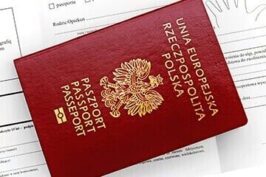
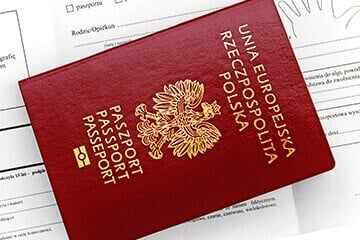
The Polish citizenship is acquired by birth, through the reinstatement, restoration, naturalisation or granting procedure. The process of reinstating Polish citizenship, as in many other countries that have suffered from Tsarist oppression, is a rather long process.
It should be noted that Polish citizenship may be inherited, even if a person was not born on the territory of Poland. Descendants of Polish nationals, who left the country before its independence, may apply for acquisition of Polish citizenship.
Already in the early 1820s, people emigrated from Poland to such countries as the USA, Canada, Australia, New Zealand, France, and South America. The earliest emigrants from Poland under the Russian control were from the Suwalki and Lomza districts, the majority of which was comprised of Jews. Most of the early emigrants to the USA have settled in Texas, Michigan, and in the area of Chicago. Emigration was not huge until 1854, a larger wave of Polish emigration began in 1870.
Most of the later emigrants departed from the southern Poland controlled by Austria and from the Russian Poland, and the majority of them went to the USA. During 1900–1915, a vast majority of Poles settled in Chicago, New York, Connecticut, New York State, Pennsylvania, New Jersey, and Massachusetts. At the turn of the 19th and 20th centuries, Polish immigration expanded even further to the USA, Canada, Brazil, Argentina, Mexico, Venezuela, Israel, and Australia, as well as through the entire former USSR.
Thus, millions of citizens of the USA, South America countries, Israel and Australia, whose grandparents left Poland, can be found in the world. Although most emigrants have lost contacts with Poland, nevertheless, pursuant to Polish laws, Polish citizenship may be reinstated to individuals having Polish ancestors, i.e. to children, grandchildren, great-grandchildren of Poles, after proving the conditions for reinstatement of Polish citizenship, they may apply for reinstatement of Polish citizenship.
Applications for the reinstatement of Polish citizenship must be based on documentary evidence of ancestors who were Polish citizens residing on the territory of Poland on 20 January 1920. Persons living on the territory of Poland on 20 January 1920 are considered to be Polish citizens (although there were exceptions) and their descendants have the opportunity to reinstate Polish citizenship.
As for citizenship of minors, this has been and still is a matter of parental rights, thus, applications must be based on ancestors, who were Polish citizens over the age of 18. If the ancestors left Poland as minors, the application must be based on citizenship of their parents. Therefore, in such cases, it is necessary to clarify the age of persons who left Poland and other facts or even details about their further life outside the territory of Poland. An exception shall be applied if the person was born before Poland regained its independence, in such a case, the application may be based on his/her rights, even though he/she left Poland as a minor.
In accordance with Polish laws, children born before 19 January 1951 inherited their rights to citizenship, taking into account the following facts:
– If a child was born in marriage – citizenship of his/her father must be taken into consideration;
– If the parents were not married at the time of the child’s birth (i.e. no marriage was concluded at the time of the child’s birth) – the mother’s citizenship is of vital importance.
It is worth mentioning that Polish adult citizens were not allowed to have dual citizenship until 19 January 1951 and the acquisition of citizenship of another state resulted in the loss of existing Polish citizenship. This shows that every Polish citizen, who born before 19 January 1933 and became a citizen of another state before 19 January 1951, has lost Polish citizenship. The descendants of such persons, who have lost Polish citizenship in this way, no longer have grounds to apply for reinstatement of Polish citizenship.
An exception only applied to men who were born before 19 January 1933 and acquired citizenship of another state before 19 January 1951. They were allowed not to lose Polish citizenship, provided they met the following two conditions:
1. They were born after 19 January 1901 (unless they were officers of the Polish army, then – born after 19 January 1891);
2. They did not join the army of that country to which they had immigrated before 19 January 1951.
When applying for reinstatement of Polish citizenship, the applicant is obliged to collect and submit documents evidencing the facts about having ancestors in Poland, and other conditions.
MIGRATION LAW CENTER


During the period of Independence of Lithuania (1918-1940), Lithuania experienced the second huge wave of emigration. The causes of such emigration were mostly economic, but in certain cases historical and political ones. In 1918-1940, the vast majority of Jewish emigrants from Lithuania left to Palestine and the current territory of the Republic of South Africa. According to official data, 5,000 Jews departed to Palestine during the interwar period.
Within the World War II, the Holocaust in Lithuania resulted in the near-total destruction of the Lithuanian Jewish community. Lithuania lost more than 90 percent of its Jewish community due to the Holocaust of the Jews during the World War II.
In 1948 after the establishment of the state of Israel, the greater part of Lithuanian Jews emigrated from Lithuania to Israel. The emigration of Lithuanian Jews to Israel was predominantly determined by the anti-Jewish policy carried out at that time and by the consequences of the World War II.
Currently, Lithuanian Jews and their descendants residing in Israel may enjoy the opportunity of reinstating Lithuanian citizenship which is laid down by the Lithuanian legislation.
It should be noted that pursuant to legislation of the Republic of Lithuania, Lithuanian citizenship may be reinstated without renouncing the present citizenship of a foreign state (dual citizenship) for persons, who emigrated from Lithuania before 11 March 1990 and held Lithuanian citizenship before 15 June 1940 and, as well as for descendants of such persons (children, grandchildren, great-grandchildren). In this case, in order to reinstate Lithuanian citizenship without renouncing the present citizenship of another state, the following main circumstances must be proved:
- Lithuanian citizenship before 15 June 1940;
- Departure from Lithuania before 11 March 1990 (1918-1990);
- Other circumstances (family relationship, change of name, surname, etc.).
The Law on Citizenship of the Republic of Lithuania establishes that persons who had Lithuanian citizenship before 15 June 1940, and their descendants, who have not acquired Lithuanian citizenship before the entry into force of this law, shall enjoy an indefinite right to reinstate Lithuanian citizenship, irrespective of whether the country of their permanent residence is Lithuania or another state.
Article 7 of the Law on Citizenship of the Republic of Lithuania provides for the cases when the Lithuanian citizenship may be reinstated without renouncing the present citizenship of a foreign state. This Article stipulates that a citizen of the Republic of Lithuania may be a citizen of another state at the same time, provided he/she is a person who departed from the Republic of Lithuania before 11 March 1990, or is a descendant of such person.
MIGRATION LAW CENTER
Read more:
Reinstatement of Lithuanian citizenship
Granting the citizenship of Lithuania according to the simplified procedure
Certificate of Lithuanian descents
A certificate certifying a right for reinstatement of the citizenship of Lithuania
A citizenship of children
Dual children citizenship
The citizen of a spouse (a husband or a wife)
Lithuanian citizenship through the ethnic descent
Lithuanian Citizenship for Persons Having Lithuanian Ancestry. Lithuanian Citizenship for Descendants of Lithuanians
Citizenship of the Republic of Lithuania for those exiled from Lithuania. Dual citizenship in Lithuania
Lithuanian citizenship. Reinstatement of Lithuanian Citizenship without renouncing existing one (Dual Citizenship)
Lithuanian passport. Order of issuing and deadlines
Retention of dual citizenship in the case of the departure from Lithuania after 11 March 1990
Oath of Allegiance to the Republic of Lithuania
Reinstatement of Lithuanian citizenship and service in Lithuanian armed forces. Military service in Lithuania
For reinstatement of citizenship of Lithuania, it is necessary to retain citizenship of Lithuania on 1940 06 15
The Jews (Litvaks) and other emigrants who left Lithuania during the interwar period and their descendants will be able to reinstate Lithuanian citizenship or acquire double citizenship without bureaucratic obstacles
If you have any questions regarding Lithuanian citizenship or should you require more information or help, please contact us by e-mail: info@migration.lt or phone: + 370 6 1861886. We will gladly help you.

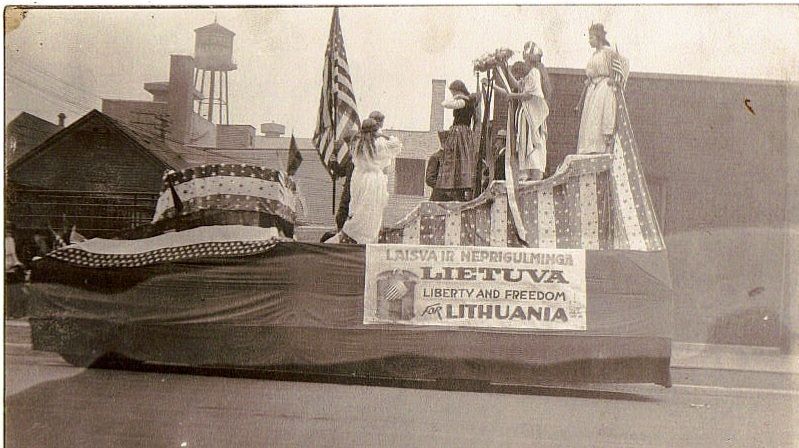
Lithuanian citizenship through the ethnic descent
Lithuanian citizenship may be acquired on certain bases provided in the Law of Republic of Lithuania on citizenship. One of the key paths is Lithuanian descent, which may entitle a person either to acquire citizenship via simplified procedure or to reinstate Lithuanian citizenship if their ancestors were citizens before June 15, 1940.
This article explains the differences between Lithuanian ethnic origin and citizenship, who qualifies, what documents are required, and how the process works under current law.
Lithuanian Origin vs. Lithuanian Citizenship
It’s important to distinguish between Lithuanian origin (ethnicity) and Lithuanian citizenship.
- Lithuanian origin should not be equalized to Lithuanian citizenship. Lithuanian origin is related to the ethnicity, the national affiliation of a person, his (her) belonging to a certain nation, ethnos or another historically developed group of people with common characteristics, such as language, culture, religion and so on, attributed to them.
- A person of Lithuanian origin can be not a citizen of Lithuania and a person of another origin (such as Jewish, Russian, Ukrainian etc.) can be a citizen of Lithuania.
Following the relevant provisions of the Law of Republic of Lithuania on citizenship, a person of Lithuanian origin is a person whose:
- parents or grandparents or at least one of the parents or the grandparents are or were of Lithuanian origin
- who self-identifies as a Lithuanian and declares this by a declaration in writing.
Simplified Procedure for Lithuanian Citizenship by Descent
A person of Lithuanian origin may be endued with Lithuanian citizenship according to the simplified procedure. In such a case, the person should renounce the previous citizenship of the other state. In addition, Certificate of Lithuanian descent and a permit for residence in Lithuania may be issued to such a person.
Reinstatement of Lithuanian Citizenship
Another way for acquisition of Lithuanian citizenship is Reinstatement of Lithuanian citizenship. Lithuanian citizenship may be reinstated for a person, if he (she) was a citizen of Lithuania before 15 June 1940 or his (her) ancestors (parents, grandparents or great-grandparents) were citizens of Lithuania before 15 June 1940. In such a case, the citizenship of the person or his (her) ancestors, not their origin, is taken into consideration. For a reinstatement of Lithuanian citizenship upon retention of the previous citizenship (Dual citizenship), the following supplemental conditions shall be satisfied:
Conditions for Dual Citizenship
- The person was deported from occupied Lithuania before 11 March 1990;
and (or) - The person had left Lithuania before 11 March 1990;
- The person is a descendant (a child, a grandchild or a great-grandchild) of the above-specified persons.
Definition of Deportation and Emigration Before 1990
A person deported from occupied Lithuania before 11 March 1990 is a person who was a citizen of Lithuania before 15 June 1940 or a descendant of such a person who were deported from Lithuania under compulsion in the period between 15 June 1940 and 11 March 1990 according to a decision of authorities or a court of the occupation regime for a resistance to the regime or political, social or origin-related reasons.
A person having left Lithuania before 11 March 1990 is a person who was a citizen of Lithuania before 15 June 1940 or a descendant of such a person having left the territory of today Lithuania for permanent residence in another state before 11 March 1990, if their place of permanent residence was out of Lithuania on 11 March 1990. This conception is not applicable to persons having left the territory of Lithuania after 15 June 1940 for any other location of the former Soviet Union.
Legal Amendments and Dual Citizenship Criteria Since 2016
Before June 2016, the Migration Department under the Ministry of Interior assessed the reasons of leaving Lithuania. For reinstatement of Lithuanian citizenship upon retaining the previous citizenship, such reasons could be historical and political (not social). After the adoption of amendments to the Law of Republic of Lithuania on 23 June 2016 by Seimas, the reasons of leaving Lithuania before 11 March 1990 ceased to be an important criterion in the process of Reinstatement of Lithuanian citizenship. If a person applies for reinstatement of Lithuanian citizenship upon retaining the previous citizenship (Dual citizenship), he (she) shall prove an existence of the following crucial circumstances:
Key Requirements for Citizenship Reinstatement
- Lithuanian citizenship before 15 June 1940;
- The fact of leaving Lithuania before 11 March 1990 and permanent residence out of Lithuania on 11 March 1990 or the fact of deportation;
- The kinship;
- The change of the personal data (the first name or the surname).
Documents Required to Prove Lithuanian Citizenship Before 1940
The documents certifying Lithuanian citizenship before 15 June 1940 include:
- Lithuanian passports (government-issued passports or passports for travelling abroad) issued before 15 June 1940;
- Lithuanian passports for travelling abroad issued by diplomatic missions or consular institutions of Lithuania after 15 June 1940;
- Documents attesting military service of the person in Lithuanian Army or his (her) involvement in civil service;
- Certificates of birth or other documents where Lithuanian citizenship of the person is specified;
- Identification documents issued in Lithuania before 15 June 1940 or identification documents issued on the base of the documents issued in Lithuania before 15 June 1940.
If the above-listed documents are absent, documents on learning, working or residing in Lithuania documents issued in Lithuania before 15 June 1940 as well as a passport of a foreign state and other documents may be submitted.
Application Requirements and Translation Guidelines
An Application for a reinstatement a Lithuanian citizenship shall be written in Lithuanian. The documents enclosed to the Application shall be translated into Lithuanian and certified according to the procedure provided in legal norms (by Apostile or according to the legalization procedure).
Where to Submit Lithuanian Citizenship Applications
The documents shall be submitted to:
- the Migration department in Lithuania – Migration department
- a diplomatic mission or a consular institution in a foreign state – Lithuanian diplomatic missions and Consular institutions
Lithuanian Citizenship Through the Ethnic Descent Benefits
Acquiring Lithuanian citizenship through the ethnic descent offers a unique opportunity for individuals of Lithuanian heritage to reconnect with their ancestral roots. This pathway allows descendants of Lithuanians — regardless of where they currently live — to obtain Lithuanian citizenship based on their lineage. One of the key benefits is the right to live, work, and study anywhere in the European Union, as Lithuania is an EU member state. In addition to EU rights, successful applicants gain access to social services, simplified property acquisition in Lithuania, and a stronger cultural and personal connection to their Lithuanian identity. Unlike other routes to naturalization, the ethnic descent process may be faster and more flexible, especially for those who can prove their Lithuanian origin through documentation. This is a powerful legal and emotional benefit for families looking to preserve their heritage for future generations.
Free Legal Assessment for Lithuanian Citizenship Eligibility
Free Legal Assessment: Lithuanian Citizenship Eligibility
The lawyers of MIGRATION LAW CENTER offer a free legal Assessment (analysis) of your options for obtaining Lithuanian citizenship. To receive a detailed analysis, please complete an application form by clicking this link – FORM.
Following a thorough legal analysis of your options that would allow to obtain Lithuanian citizenship, our lawyers will provide you with a written response (analytical results) regarding your options of obtaining Lithuanian citizenship and further requirements as well as procedure processes.
If you have any questions regarding Lithuanian citizenship or should you require more information or help, please contact us by e-mail: info@migration.lt or phone: + 370 6 1861886. We will gladly help you.
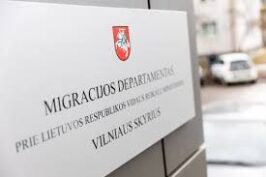
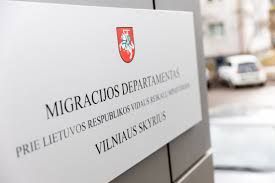
Institute of Restoration of Lithuanian Citizenship
The institute of restoration of Lithuanian citizenship is regulated by the provisions of the Law on Citizenship of the Republic of Lithuania and other legislation. The practice of restoring Lithuanian citizenship is also influenced by the practice of Lithuanian courts on the issue of restoration of Lithuanian citizenship.
Legal Amendments and Regulations in 2024
Amendments to legal acts regulating issues of the Lithuanian citizenship that are provided for do not entrench the major changes in the institute of restoration of Lithuanian citizenship in 2024.
Provisions of the Law on Citizenship of the Republic of Lithuania regulating the issues of restoration of Lithuanian citizenship, which have been in force until now, are to be still applied in 2024.
What is Restoration of Lithuanian Citizenship?
Restoration of Lithuanian citizenship – it is implementation of a right to restore Lithuanian citizenship on grounds and procedure established in the Law of Citizenship of the Republic of Lithuania.
Eligibility Criteria for Restoration
Lithuanian citizenship may be restored for a person, when this person and/or his parents, grandparents, great-grandparents, or one of them were citizens of Lithuania before 15 June 1940.
Indefinite Right to Reinstate Citizenship (Article 9)
Article 9 of the Law on Citizenship of the Republic of Lithuania sets out that “Persons who had Lithuanian citizenship before 15 June 1940, and their descendants, who have not acquired Lithuanian citizenship before the entry into force of the Law on Citizenship of the Republic of Lithuania, shall enjoy an indefinite right to reinstate Lithuanian citizenship, irrespective of whether the country of their permanent residence is Lithuania or another state.”
Definition of Eligible Persons
A person who held Lithuanian citizenship before 15 June 1940 shall mean a person who held citizenship of the Republic of Lithuania at any time prior to 15 June 1940. This concept does not embrace individuals who have lost Lithuanian citizenship after carrying out the mandatory procedures provided for in the laws of the Republic of Lithuania and for whom decisions on the loss of Lithuanian citizenship stipulated in the laws of the Republic of Lithuania have been adopted.
Required Documents to Prove Pre-1940 Citizenship
Documents proving that a person concerned held citizenship of the Republic of Lithuania before 15 June 1940 are the following:
-
Internal or foreign passports of the Republic of Lithuania issued before 15 June 1940;
-
Foreign passports of the Republic of Lithuania issued at diplomatic missions or consular posts of the Republic of Lithuania after 15 June 1940;
-
Documents attesting to the person’s service in the Lithuanian Armed Forces or employment in the civil service;
-
Birth certificates or other documents containing direct reference to citizenship of the Republic of Lithuania held by the person concerned;
-
Personal certificates issued before 15 June 1940 in Lithuania or personal certificates issued on the basis of documents issued before 15 June 1940;
-
In the absence of above-mentioned documents, documents concerning studies, work, and life in Lithuania before 15 June 1940, as well as a passport of a foreign state and other documents may be provided.
Dual Citizenship and Restoration Conditions
The aforementioned persons may restore the Lithuanian citizenship, provided they are not citizens of other state, except for certain cases when a person may be a Lithuanian citizen and a citizen of another state simultaneously, i.e., when a double or multiple citizenship is available.
Exceptions for Dual Citizenship (Article 7)
Article 7 of the Law on Citizenship of the Republic of Lithuania lays down the cases where a person may be a Lithuanian citizen and a citizen of another state at the same time, when the requirement for a person to renounce a citizenship of another state is not being applied. Pursuant to this Article of the Law on Citizenship of the Republic of Lithuania, Lithuanian citizenship can be reinstated to a person without renouncing the held citizenship of a foreign country, if a person concerned is:
-
A person who was exiled from the occupied Republic of Lithuania before 11 March 1990;
-
A person who fled the Republic of Lithuania before 11 March 1990;
-
A descendant of a person referred to above (child, grandchild, great-grandchild).
Definition of Exiled and Fled Persons Before 1990
A person exiled from the occupied Lithuania before 11 March 1990 shall mean a person who had Lithuanian citizenship before 15 June 1940 or his descendant, who were forcibly expelled from Lithuania by decisions of institutions or courts of occupation regimes in the period from 15 June 1940 to 11 March 1990 for reasons of resistance to occupation regimes, political or social reasons or reasons of origin.
A person who fled Lithuania before 11 March 1990, shall mean a person who had Lithuanian citizenship before 15 June 1940 or his descendant, who departed from the current territory of Lithuania prior to 11 March 1990 to permanently reside in another state, if their permanent residence on 11 March 1990 was outside Lithuania. The said concept does not include persons who left the territory of Lithuania after 15 June 1940 and departed to the territory of the former Soviet Union.
Grounds for Refusal of Restoration
Lithuanian citizenship shall not be reinstated, provided there are circumstances set forth in Paragraph 1 or 2 of Article 22 of the Law on Citizenship of the Republic of Lithuania:
-
A person has prepared, attempted to commit or committed international crimes such as: aggression, acts of genocide, crimes against humanity, war crimes;
-
A person has prepared, attempted to commit or committed criminal acts against the State of Lithuania.
Citizenship of the Republic of Lithuania may be restored only once.
Application Process and Language Requirements
The application for restoration of Lithuanian citizenship must be filled in Lithuanian or English through the Lithuanian Migration Information System MIGRIS. Documents attached to the application for restoration of citizenship of the Republic of Lithuania must be drawn up in Lithuanian, or you must submit a translation of these documents into Lithuanian, which must be certified by a person or institution entitled to certify translation from one language to another, by submitting the documents certifying the right of translation.
Legalization of Foreign Documents
Each individual document issued by foreign countries and each individual document certified by a foreign country’s notarial procedure, or an equivalent procedure must be legalized or certified with a certificate (Apostille), unless the international treaties of the Republic of Lithuania or the legal acts of the European Union provide otherwise.
Decision-Making Authority and Timeline
Decisions regarding restoration of the Lithuanian citizenship are made by the Minister of the Interior. The process of restoring Lithuanian citizenship lasts approximately 6 months. Having examined the applications for restoration of Lithuanian citizenship and identified that the collected documents and data are sufficient for taking a decision of the Minister of the Interior as to the Lithuanian citizenship, the Migration Department shall, no later than within 5 (five) months from the day of accepting the application or documents regarding restoration of Lithuanian citizenship at the Migration Department or consular post, provide an offering to the Minister of the Interior, whereas the Minister of the Interior shall, no later than within 1 (one) month from the day of receipt of such offering of the Migration Department at the Ministry of the Interior of the Republic of Lithuania, adopt a decision concerning restoration (non-restoration) of citizenship of the Republic of Lithuania.
If you have any questions regarding Lithuanian citizenship or should you require more information or help, please contact us by e-mail: info@migration.lt or phone: + 370 6 1861886. We will gladly help you.
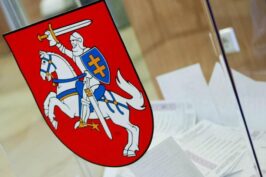
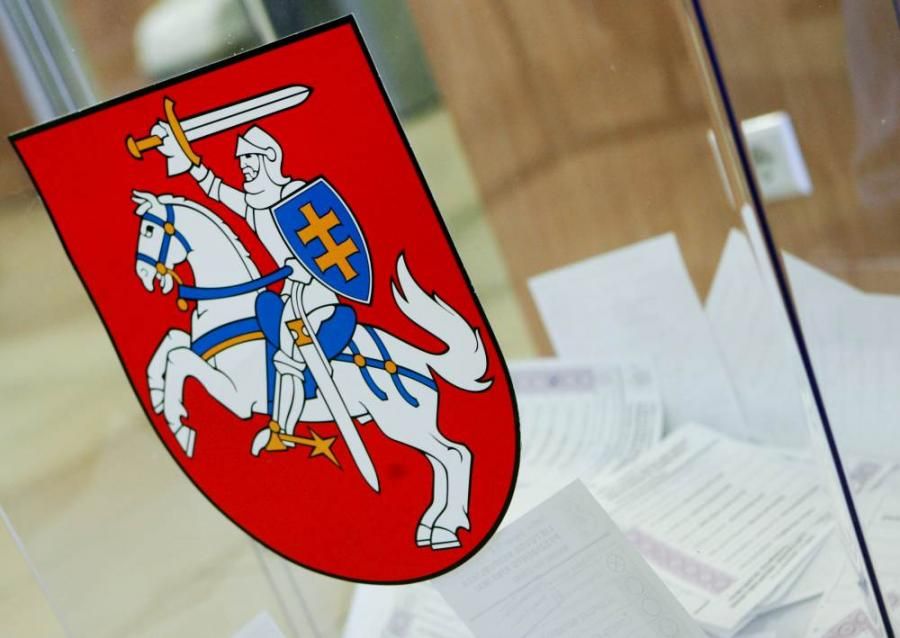
On 18 October 2018, the Seimas of the Republic of Lithuania adopted the Resolution on calling the mandatory referendum regarding the amending of Article 12 of the Constitution that defines the acquisition of citizenship.
The referendum will take place on 12 and 26 May 2019. The two days for voting are proposed subject to the fact that the provisions of the Constitution may be altered only if more than a half of the citizens of Lithuania with the electoral right, who are entered into lists of voters, vote in favour thereof. The Presidential elections and elections to the European Parliament will also be planned on these days.
According to the present Article 12 of the Constitution, citizenship of the Republic of Lithuania shall be acquired by birth or on other grounds established by law, with the exception of individual cases provided for by law, no one may be a citizen of both the Republic of Lithuania and another state at the same time.
In the mandatory referendum the following amendment to Article 12 of the Constitution will be put to vote: “Citizenship of the Republic of Lithuania shall be acquired by birth or on other grounds established by the Constitutional Law. The citizens of the Republic of Lithuania by origin shall retain their citizenship of the Republic of Lithuania when they acquire the citizenship of the state that meets the criteria of European and transatlantic integration pursued by of the Republic of Lithuania. In other cases, no one may be a citizen of both the Republic of Lithuania and another state at the same time, with the exception of individual cases provided for by the Constitutional Law. The procedure for the acquisition and loss of citizenship shall be established by the Constitutional Law.”
The Seimas working group on the referendum concerning dual citizenship decided to recommend to the Seimas to recognize member states of the European Union, as well as states belonging to NATO and OECD organizations as countries that meet the European and transatlantic integration criteria. The European and transatlantic integration criteria of the states will be established in the Constitutional Law on Citizenship.
If enough votes are gathered by the referendum, the amendments to the Constitution adopted will come into force on 01 January 2020.
MIGRATION LAW CENTER
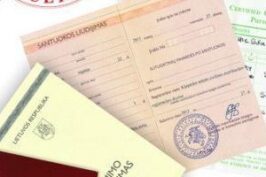
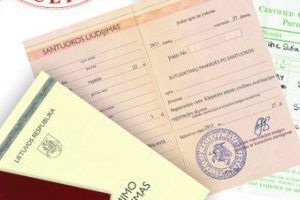
Search and Order of Birth Certificates in Lithuania
A birth certificate is one of the most important personal documents, containing essential information about a person’s birth. It may be required in various life situations – whether you’re applying for the restoration of Lithuanian citizenship, handling inheritance matters, or managing migration-related issues.
Since January 1, 2017, in Lithuania, certificates of civil status registration have been replaced by extracts certifying entries in the civil status register. These are official documents issued in accordance with the form approved by the Minister of Justice of the Republic of Lithuania.
These extracts can be obtained in several ways:
-
Immediately after the civil status act (e.g., birth) is registered;
-
At any time by contacting a Civil Registry Office, a Lithuanian diplomatic mission abroad, or via the State Enterprise Centre of Registers;
-
Online via www.epaslaugos.lt, if you have electronic identification or online banking.
Civil Registry Office Archives: Whose Records Are Stored?
The archives of the Civil Registry Office store birth records for individuals born after 1940.
Who Can Access Civil Registry Office Archives?
- Individuals aged 16 and older can request their own extract.
- For younger individuals, their parents or legal guardians can apply.
Do You Need to Submit an Application?
Yes, to obtain an extract, you must submit an application including the following details:
- Person’s first name(s);
- Person’s last name(s);
- Date of birth or at least the year of birth;
- Place of birth.
Obtaining Birth Certificate Extracts for Relatives
If you need a birth certificate extract for relatives such as parents, grandparents, great-grandparents, spouse, or others, it can only be issued with the consent of the individual or in the event of their death. In such cases, the following additional documents are required:
- The individual’s consent or their death certificate;
- Documents proving the family relationship (e.g., birth certificate(s), marriage certificate).
Records of Individuals Born Before 1940
The search for birth records of individuals born before 1940 is conducted at the Lithuanian State Historical Archives, located at Mindaugo g. 8, Vilnius. These archives hold the metric books of all religious communities and churches.
While the archives contain records dating back to the 16th century, not all documents have survived. The Catholic Church has the most comprehensive collection of preserved records, while records from Orthodox, Old Believers, Lutheran, Reformed Evangelical, Muslim, and Karaite communities are less extensive.
If you are submitting a request to search for birth records of individuals born before 1940, you must provide the following information:
- First name(s);
- Last name(s);
- Date of birth or at least the year of birth;
- Place of birth;
- Father’s first and last name;
- Mother’s maiden name (first and last name before marriage);
- Religious community or denomination (if known).
How Long Does the Search Take at the Lithuanian State Historical Archives?
You can choose how quickly the search will be conducted:
- Standard processing takes approximately one month;
- Faster processing takes about 10 business days;
- The fastest option completes in approximately 5 business days.
Is a Birth Certificate Search in Lithuanian Archives Important for Acquiring Lithuanian Citizenship?
Yes, a birth certificate is a crucial document for both restoring and acquiring Lithuanian citizenship, as it serves as direct evidence of kinship ties. To learn more about the requirements and procedures for obtaining Lithuanian citizenship, we invite you to visit our Lithuanian Citizenship section.
Can My or My Ancestors’ Birth Certificate Be Ordered in Lithuania and Sent to My Address?
Yes, on the basis of legal representation, the Migration Law Center lawyers can order your or your ancestors’ birth certificate. If needed, the document can also be sent to your specified address. Additionally, the document can be translated, certified with an Apostille or legalized, if required.
Why is it worth turning to professionals?
Searching for a birth certificate, especially when documents are old or incomplete, can be a complex process. That’s why it’s advisable to consult legal professionals who are well-versed in the structure of archives, document requirements, and procedural steps. Their expertise helps avoid mistakes, saves time, and ensures that the documents are obtained properly and on time.
For more information about the birth certificate search process or to request legal assistance with obtaining a birth certificate, please contact us:
- Email: info@migration.lt
- Phone: +37068563053
MIGRATION LAW CENTER


The most popular forms of legal entities (companies) in Lithuania, and their differences.
The most popular and the most common registered legal entities (companies) in Lithuania are:
Private Company Limited by Shares (LTD)
Individual Enterprise (IE)
Public Limited Company (PLC);
Other.
Since September 1, 2012, in Lithuania, it is allowed to establish a new form of a legal entity, which is Limited Liability Partnership (LLP).
The following table compares the legal entities.
| Legal form | Liability | Number of participants | Minimum amount of authorized capital | Management |
| LTD | Limited civil liability* | 1-249 sharegolders | 2500 euros | Director, also there could be an executive body, which is the board |
| IE | Unlimited civil liability** | 1 owner | undetermined | IE owner is also a director of the company, althought, other person can also be appointed for this position |
| PLC | Limited civil liability* | Number of shareholders is unlimited | 40 000 euros | Director, also there could be an executive body, which is the board |
| LLP | Limited civil liability* | 1-10 members | undetermined (amount of contributions is determined by the members of LLP) |
Meeting of members (there should be ao appointed representative) or Sole governing body (director) |
* Limited civil liability: it means that participants (shareholders, owners, or members) with their assets are not liable for the obligations of a legal entity (company).
** Unlimited civil liability: it means that if there is insufficient amount of assets to fulfill the obligations of a legal entity (company), a participant (owner) is liable for company’s obligations, and pays with his/her own assets.
Establishment of a company.Steps, expenditures, and terms.
The main stepsof establishing a company:
1. Selection and reservation of a company’s name;
2. Preparation of establishment documents;
3. Formation of the authorized capital, opening a saving account in a bank (when needed);
4. Provision of the establishment documents for the notary’s confirmation;
5. Provision of notary’s confirmed establishment documents to the Registry of Legal Entities.
Certain forms of enterprises can be established via internet, if the founder has qualified electronic signature and if other necessary conditions determined by the law are fulfilled.
Term for establishing a company: 5 – 10 working days and more.
Purchase of a company. Steps, expenditures, and terms.
The main steps of selling-purchasing a company:
1. Agreement. Preparation of documents;
2. Paying for shares;
3. Signing sale-purchase documents of the company;
4. Registration of sale-purchase documents at the Registry of Legal Entities.
Expenditures of selling-purchasing a company: about 750 euros.
Term for selling-purchasing a company: 5 – 10 working days and more.
Taxes and minimum costs for maintaining a company
The main taxes in Lithuania:
* The tax should be calculated, declared, and paid by an employer.
** If the average number of employees in the list is up to 10 people, and income of taxing period does not exceed 1 million Litas.
Monthly minimal costs for maintenance of a company:
1. Mandatory monthly taxes (indicated in the table above);
2. Employees’ wages;
3. An accountant: around 100 Euro or 950 Euro per year (when needed);
4. Office rent: by agreement (when needed).
Are there any restrictions for foreigners in order to establish or buy a company in Lithuania?
Foreigners, who want to establish or buy a company in Lithuania, have the same rights as the citizens of Lithuania, and there are no specific restrictions applied.
When establishing or buying a company in Lithuania, does a founder/buyer has to participate directly, and does he/she has to come to Lithuania?
A company can be established, and changes, related to the transaction of company’s sale-purchase, have to be registered at the Registry of Legal Entities on the basis of appropriate form of authorization, i.e. without direct participation of the founder/buyer.
The right of a foreigner, who established or bought a company in Lithuania, to be and/or live in Lithuania.
A foreigner, who has a company in Lithuania, has the right to come and be in Lithuania on the basis of visa, if he/she does not exceed a period of time indicated in the visa.
A foreigner, who legally operates in Lithuania and whose staying in Lithuania is required in order to achieve company’s aims and do business, can acquire a permit of temporary residence in Lithuania on the basis of business matters.
A temporary residence permit: it is a document granting a foreigner the right to live in Lithuania for a temporary period of time, which is indicated. A foreigner has the right to choose a place of residence in Lithuania, change it, leave from Lithuania, and come back if temporary residence permit is still valid. A foreigner, who has the permit of temporary residence in Lithuania, can travel to the Schengen countries, and be there up to 3 months. A person, who leaves Lithuania for more than 6 months, must declare his/her departure.
A temporary residence in Lithuania permit is issued to a foreigner, who is not a citizen of a European Union Member State. It is usually issued for one year.


An alien who intends to work legally in Lithuania must obtain a work permit and a national visa D.
An alien who wishes to work in Lithuania should first find an employer – Lithuanian company that would like to hire him/her. Once finding an employer, an alien shall apply on the issue of a work permit in the Republic of Lithuania and national visa D.
Before submitting the documents for the issue of a work permit in Lithuania, the Labour Exchange of Lithuania must register a vacant position in the Lithuanian company. The vacant position shall be registered no less than 5 working days before the submission of documents for the issue of a work permit in Lithuania. During this period, citizens of Lithuania and permanent residents of Lithuania, meeting the employer’s requirements, shall have the right to apply for the vacancy. If, during this period, the employer – Lithuanian company cannot find a suitable candidate for the vacancy, the alien may submit documents for the issue of a work permit in Lithuania to an alien.
The employer will be able to employ a foreigner who meets at least one of the following conditions:
– the foreigner has a qualification related to the work to be performed, or
– the foreigner has 1 year of work experience gained in the last 3 years related to the work to be performed, or
– the foreigner is expected to be paid a monthly wage at least equal to the last published average monthly gross wage in the country’s economy for the calendar year (including the wage data of individual companies).
Place for the submission of documents for a work permit in Lithuania – a local labour exchange office.
In order to employ the alien under the employment contract, the following documents must be submitted to the Employment Service:
- An application;
- A copy of passport;
- Employer’s information on the alien’s qualification and at least one year of working experience according to his/her qualification within the last 3 years;
The employer must make sure that the alien has documents approving his/her own qualification (diploma, certificate, etc.) and at least one year of working experience according to his/her qualification within the last 3 years (work book, certificate from the previous workplace).
- Obligation to employ a foreigner in accordance with the employment contract and the employee’s average salary, if the company has more employees working in the same job as the foreigner is requested to work for;
- A copy of the payment order or a check for the issue of work permit.
Foreign documents must be legalized or certified with an Apostille in accordance with the established procedure, unless otherwise provided for by other legislation. The translation into Lithuanian of documents drawn up not in Lithuanian must be confirmed by a signature of translator. Copies of documents must be approved by signature and stamp of the head of the company.
Time limits for the issuance of a work permit in Lithuania – up to 7 working days.
After the getting of a work permit in Lithuania, documents for the issue of a national visa D shall be submitted.
Place for the submission of documents for a national visa D – a diplomatic mission or a consular post of Lithuania abroad.
Time limits for the issuance of a national visa D – up to 15 days.

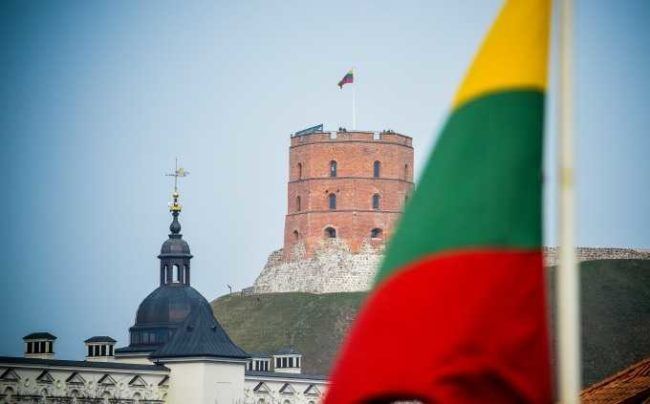
On 09 January 1919, the Provisional Law on Lithuanian Citizenship was adopted. This is the first Law on Lithuanian Citizenship. Today this Law celebrates its Centenary.
The contemporary concept of Lithuanian citizenship emerged after the restoration of the independent state of Lithuania in 1918, hereupon, the institute of Lithuanian citizenship has been established.
In 1919-1940, Lithuanian citizenship was regulated by Lithuanian laws, legislation issued by public authorities and international treaties of Lithuania.
Lithuanian laws and legal acts issued by public authorities shall be referable to: 1) Constitution of Lithuania; 2) Provisional Law on Citizenship of Lithuania of 09 January 1919, Law on Citizenship of Lithuania of 08 August 1939; 3) Introductory Law on the Management of Vilnius City and its Area of 27 October 1939; 4) Statutes of Passports; 5) legal acts issued by the minister of the interior and by both the minister of the interior and the minister of justice, and explanations on issues of citizenship; 6) circulars of the Department of Civil Rights Protection and the Department of Administration under the Ministry of the Interior, as well as explanations on issues of citizenship; 7) circulars of the Ministry of Foreign Affairs on issues of citizenship.
It has been established in the first Law on Lithuanian Citizenship, the Provisional Law on Lithuanian Citizenship of 09 January 1919, that the following persons were considered to be citizens of Lithuania: “1) persons whose parents and grandparents have lived in Lithuania since ancient times and who themselves always live in Lithuania; 2) children of persons indicated in the first subsection, who even though did not always live in Lithuania, but returned to live thereto; 3) persons who have lived in Lithuania no less than ten years before 1914 and who had: a) either their own real property, b) or permanent job; 4) children of a citizen of Lithuania; 5) his wife or widow; 6) children of a not married citizen of Lithuania, if they have not been accepted by the alien as his children.”
Both this law and the current institute of Lithuanian citizenship is based upon the principle of blood law (Ius sanguinis), which is grounded by kinship, i.e. citizenship of born person shall be determined according to citizenship held by his/her parents (or one of them). In this case, the territorial factor does not play any role, citizenship of a person shall not depend on the state where he/she was born.
The Provisional Law on Lithuanian Citizenship with amendments thereto was valid until 08 August 1939, when the Law on Lithuanian Citizenship was adopted.
MIGRATION LAW CENTER


The Seimas of Lithuania has adopted amendments to the Republic of Lithuania Law on Citizenship, which will ensure retention of Lithuanian citizenship for adopted children. After an adoption of these amendments to the Republic of Lithuania Law on Citizenship, a requirement for adopted persons to decide upon retention of Lithuanian citizenship thereof until 21 years of age will not be applied. Children who have acquired dual citizenship due to adoption will be able to retain it for life.
A version of Paragraph 6 and 7 of Article 7 of the Republic of Lithuania Law on Citizenship valid hitherto has entrenched that “A citizen of the Republic of Lithuania may be a citizen of another state at the same time, provided he is a person under 21 years of age and was adopted by citizens (citizen) of the Republic of Lithuania before reaching 18 years of age and, as a result of the adoption, acquired citizenship of the Republic of Lithuania pursuant to paragraph 1 of Article 17 of this Law. Also, if he is a person under 21 years of age, provided he, being a citizen of the Republic of Lithuania, was adopted by citizens (citizen) of another state before reaching 18 years of age and, as a result of the adoption, acquired citizenship of that state.”
On the basis of provisions of the Republic of Lithuania Law on Citizenship valid hitherto, an adopted person had to decide upon country of citizenship which he/she wants to keep until he/she reaches the age of 21 years.
Amendments to the Law on Citizenship of the Republic of Lithuania enacted by the Seimas of Lithuania on 18.10.2018, which came into force on 31.10.2018, will enable adopted persons to retain dual citizenship indefinitely.
A new version of Paragraph 6 and 7 of Article 7 of the Republic of Lithuania Law on Citizenship entrenches that “A citizen of the Republic of Lithuania may be a citizen of another state at the same time, provided he is a person adopted by citizens (citizen) of the Republic of Lithuania before reaching 18 years of age and, as a result of the adoption, acquired citizenship of the Republic of Lithuania pursuant to paragraph 1 of Article 17 of this Law. Also, if he is a person – a citizen of the Republic of Lithuania, who was adopted by citizens (citizen) of another state before reaching 18 years of age and, as a result of the adoption, acquired citizenship of that state.”
Upon enactment of amendments to the Law on Citizenship of the Republic of Lithuania adopted by the Seimas of Lithuania, rights of children who were born in a family and rights of adopted children will be equalized in respect of dual citizenship. Both types of children will be able to retain dual citizenship throughout the entire life thereof, and they will not be subject to the requirement to decide upon country of citizenship they want to keep until they reach 21 years of age.
MIGRATION LAW CENTER
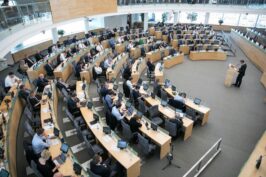
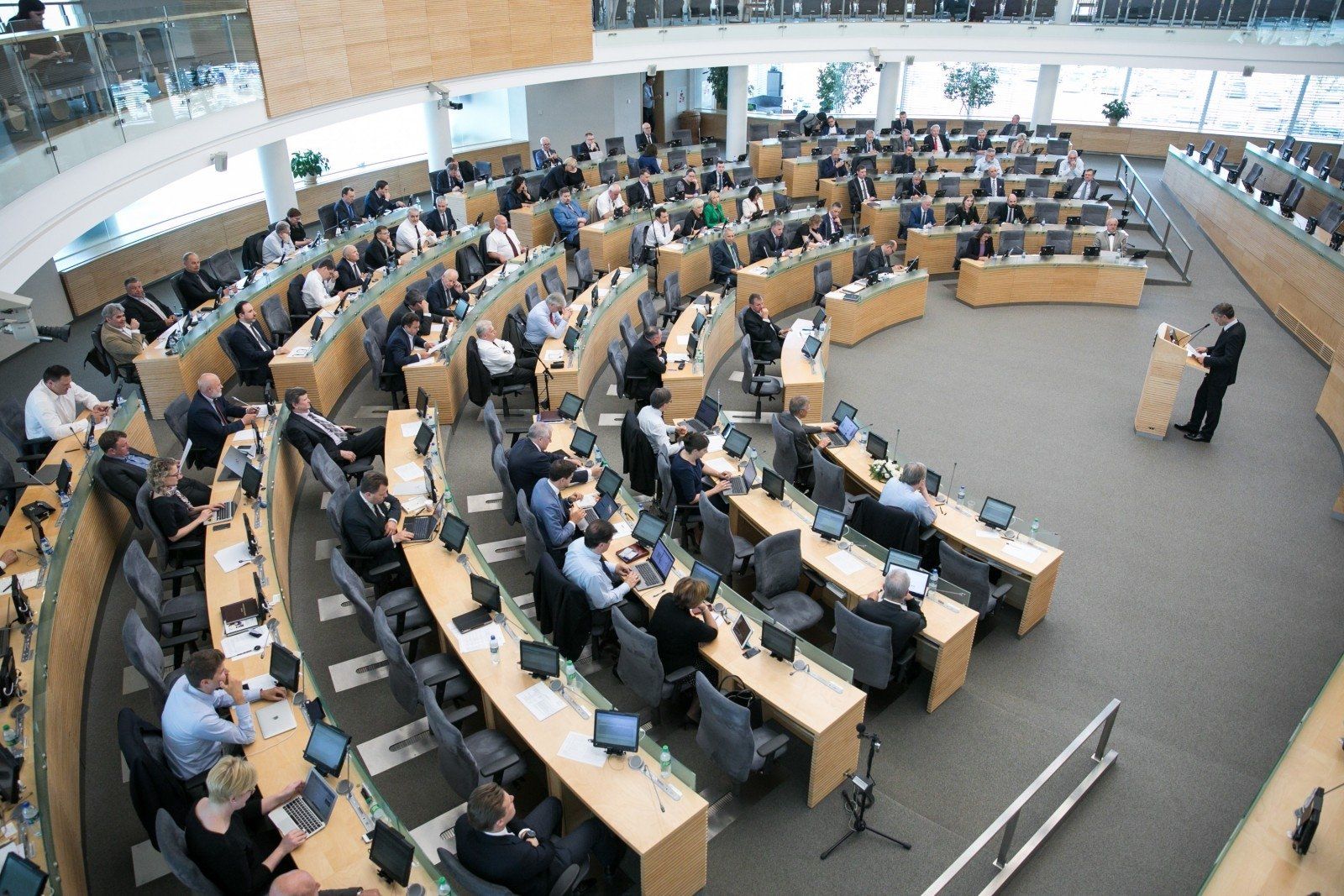
The Seimas working group resolving issues of referendum on dual citizenship has decided upon the formulation provided for referendum on dual citizenship.
It is proposed to provide for in Article 12 of the Constitution that “Citizenship of the Republic of Lithuania shall be acquired at birth and on other grounds established by the Constitutional Law. Citizens of the Republic of Lithuania by origin, who have acquired the citizenship of another state chosen by the Republic of Lithuania and consistent with the criteria of European and transatlantic integration established under the Constitutional Law of the Republic of Lithuania, shall not lose the citizenship of the Republic of Lithuania. In other cases, a citizen of the Republic of Lithuania may not be a citizen of another state, except for the cases provided by the Constitutional Law. The procedure for the acquisition and loss of citizenship is established by the Constitutional Law.”
The Seimas working group has considered 3 possible formulations thereof and selected the formulation suggested by prof. dr. Vytautas Sinkevičius and dr. Ingrida Danėlienė.
At the next meeting, the working group is preparing to discuss the Constitutional Law and consider the exceptions thereof.
At present, Article 12 of the Constitution provides for that “Citizenship of the Republic of Lithuania shall be acquired by birth or on other grounds established by law. With the exception of individual cases provided for by law, no one may be a citizen of both the Republic of Lithuania and another state at the same time. The procedure for the acquisition and loss of citizenship shall be established by law.”
Referendum on dual citizenship in Lithuania will be held in 2019 with Presidential elections herewith, through the first and second round of Presidential elections. The first round of Presidential elections in Lithuania is due to be held on 12 May 2019, whereas the second round thereof – on 26 May 2019.
The Lithuanian World Community has doubts whether it is possible to properly prepare for referendum already in 2019.
The Chairwoman of the Lithuanian World Community Dalia Henke states that it may be impossible to properly prepare for referendum in 2019, in such case it could be held in 2020, in tandem with Elections to the Seimas.
MIGRATION LAW CENTER
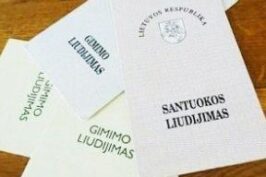
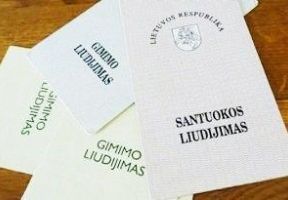
As of January 1, 2017, civil registry offices in the Republic of Lithuania issue extracts confirming entries of civil status acts, as determined by the Minister of Justice of the Republic of Lithuania, instead of civil status registration certificates. Applicants can obtain this extract immediately after the registration of a civil status act— in this case, after the marriage registration— or at any later time.
The extract can be obtained by applying to the Civil Registry Office in Lithuania, a consular office, or the Center of Registers. This procedure applies not only to marriage registration but also to divorce, birth, death, or changes of name or surname.
Marriage Registered After 1940
Marriage entries registered after 1940 are kept in the archives of the Civil Registry Office. Therefore, requests for extracts must be submitted to the archive of the Vilnius Civil Registry Office at K. Kalinausko St. 21, or to the Center of Registers, or a consular office.
Documents Required to Obtain a Marriage Entry Extract:
To obtain an extract of your marriage entry, you must submit a request and provide the following details:
- Names and surnames of the individuals;
- The date of marriage or at least the year;
- The place where the marriage was registered.
If you wish to obtain a marriage entry extract for relatives, such as parents, grandparents, or great-grandparents, you must provide the following additional documents:
- The individual’s consent or a death certificate;
- Documents proving kinship (e.g., birth certificate, marriage certificate, or documents confirming name or surname changes).
How Long Does the Process Take?
Requests submitted to the Civil Registry Office archives are processed in order of receipt, usually within 1 month.
Marriage Registered Before 1940
Marriage entries registered before 1940 are searched in the Lithuanian State Historical Archives, located at Mindaugo St. 8, Vilnius. These archives hold metric books of various religious communities and churches. While some books date back to the 16th century, not all documents have survived. The majority of surviving records belong to the Roman Catholic Church, but there are also records from Jewish, Orthodox, and other religious communities.
Documents Required for Searching Marriage Records:
When submitting a request to search for a marriage record, the following details must be provided:
- The names and surnames of the spouses;
- The date of marriage or at least the year;
- The place of marriage registration;
- The religion or denomination (if known).
If the parish or religious denomination is unknown, the search can begin with the bride’s place of birth, as marriages were typically registered in the bride’s parish.
How Long Does the Search Take?
The Lithuanian State Historical Archives processes requests in order of receipt within approximately 1 month. Expedited services are available within 10 or even 5 working days for an additional fee.
Is the Marriage Entry Important for Obtaining Lithuanian Citizenship?
Yes, a marriage certificate is an important document for the process of restoring or obtaining Lithuanian citizenship. It serves as proof of the marriage and, in some cases, evidence of a name or surname change.
For more information about the requirements and procedures related to obtaining Lithuanian citizenship, we invite you to visit our Lithuanian Citizenship section.
Can My or My Ancestors’ Marriage Certificate Be Ordered in Lithuania and Sent to My Address?
Yes, with legal representation, the Migration Law Center lawyers can order your or your ancestors’ marriage certificate. If needed, the document can be sent to your specified address. Additionally, the document can be translated, certified with an Apostille, or legalized if necessary.
For more information about the marriage certificate search process or to order legal assistance, please contact us:
- Email: info@migration.lt
- Phone: +370 685 63053
MIGRATION LAW CENTER

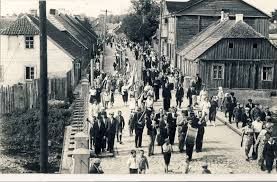
One of the ways in which Lithuanian citizenship may be acquired is a reinstatement of citizenship of the Republic of Lithuania. Lithuanian citizenship may be reinstated for a person, whose ancestors (parents, grandparents, great-grandparents, or one of them) were citizens of Lithuania before 15 June 1940, or who himself/herself was a citizen of Lithuania before 15 June 1940.
Lithuania was established as an independent state in 1918. The first law regulating the institute of Lithuanian citizenship was the Provisional Law on Lithuanian Citizenship adopted on 09 January 1919. The Provisional Law on Lithuanian Citizenship dated 09 January 1919 establishes that the citizens of Lithuania shall be:
1. Persons, whose parents and grandparents have resided in Lithuania for quite a while, and they have always resided in Lithuania themselves;
2. Children of persons specified in the first Item, who, even though have not always resided in Lithuania, finally returned to reside there;
3. Persons, who had resided in Lithuania for not less than ten years until 1914 and:
a) either owned their own real property, or
b) had a permanent job;
4. Children of a Lithuanian citizen;
5. His wife or widow;
6. Children of an unmarried woman, who is a Lithuanian citizen, if they are not accepted by a foreigner as his children.
Pursuant to the Law on Citizenship of the Republic of Lithuania that is currently in force, documents proving that the person concerned held citizenship of the Republic of Lithuania before 15 June 1940 shall be as follows:
1. Internal or foreign passports of the Republic of Lithuania issued before 15 June 1940;
2. Foreign passports of the Republic of Lithuania issued by diplomatic missions and consular posts of the Republic of Lithuania after 15 June 1940;
3. Documents attesting to the person’s service in the Lithuanian armed forces or employment in the civil service;
4. Birth certificates or other documents containing direct reference to citizenship of the Republic of Lithuania held by the person concerned;
5. Personal certificates issued before 15 June 1940 in Lithuania or personal certificates issued on the basis of documents issued before 15 June 1940;
in the absence of above-mentioned documents, documents concerning studies, work and life in Lithuania before 15 June 1940, as well as a passport of a foreign state and other documents may be provided.
Lithuanian citizenship may be reinstated for a person, if he/she renounces citizenship of another state, or without renunciation of it (retention of dual (double) citizenship). In order to reinstate citizenship of the Republic of Lithuania without renouncing the held citizenship of another state, it is not sufficient to prove the fact that a person held Lithuanian citizenship before 15 June 1940. For retention of dual (double) citizenship, such a person shall prove the following additional circumstances:
1. The fact of exile from the occupied Lithuania before 11 March 1990 (i.e. a person or his/her parents, grandparents or great-grandparents or at least one of them were exiled from Lithuania prior to 11 March 1990 or were forcibly expelled from Lithuania by decisions of institutions or courts of occupation regimes in the period from 15 June 1940 to 11 March 1990 for reasons of resistance to occupation regimes, political or social reasons or reasons of origin);
or
2. The fact of fleeing Lithuania before 11 March 1990 (i.e. a person or his/her parents, grandparents or great-grandparents or at least one of them fled Lithuania before 11 March 1990 and
their permanent residence on 11 March 1990 was outside Lithuania. It should be noted that the said concept shall not include the persons who left the territory of Lithuania after 15 June 1940 for the territory of the former Soviet Union).
An application for reinstatement of Lithuanian citizenship shall be completed in Lithuanian. The documents enclosed to an application, if they have been drawn up in another language, shall be translated into Lithuanian and certified in accordance with the procedure established by legislation (legalisation of document or approval certificate (Apostille)).
The documents shall be submitted at the Migration Department or the Embassy of the Republic of Lithuania, or a consular post in a foreign state.
FREE analysis of your options for obtaining Lithuanian citizenship
https://www.migration.lt/nemokama_analize
MIGRATION LAW CENTER
Should you have any questions regarding Lithuanian citizenship or require further information or help, please contact us by e-mail: info@migration.lt or WhatsApp/ Viber: +370 685 63053. We will gladly help you.


The independent Lithuanian state, re-established in 1918.
In 1919-1920, Polish and Soviet Russian troops occupied Vilnius several times in succession. Vilnius was repeatedly alternately occupied by Polish and Soviet Russian troops. In 1922, Vilnius was incorporated into Poland by military force. Over a short period between 1918 and 1922, during repeated changes of power – the Republic of Lithuania, Soviet Lithuania, the armies of Poland and Soviet Russia, the Jewish community again had to undergo significant economic hardship and national troubles.
The Lithuanian Jewish community, whose centre was the interim capital city of Kaunas, and its various representatives were actively involved in the establishment, strengthening and military defence of the Lithuanian state and in diplomatic activities aimed at its international recognition. More than 500 Jewish volunteers took part in the battles for Lithuanian independence.
The Constitution of the Republic of Lithuania of 1922 contained a provision declaring that all Lithuanian citizens were equal before the law. A special section “Rights of National Minorities” stated that to the extent prescribed by law, these minorities were autonomous in administering the affairs of their national culture, i.e. public education, charity, and mutual assistance. They elect their representative bodies to manage the affairs.
The years of 1919-1922 are marked in the historiography of Lithuanian Jews as the “golden” or “honeymoon period”. In addition to ministers, Jews had their representatives in the Sejm. The 1920 law granted the Jewish Kagals broad rights in administering spiritual religious affairs, charity, social aid, public education, and the keeping of civil status certificates.
Over a short time, Jewish organisations did a lot of work to improve the lives of thousands of Jews who had returned from Soviet Russia, to settle and provide them with work, to rebuild the devastated region, to establish a wide network of their schools, healthcare, charity, social assistance, and culture institutions.
Unfortunately, right-wing reactionary forces were strengthening in Lithuania at the time, and the liberal-democratic trend of development was weakening. The Jewish national autonomy recognized by the state, with all its organs, was gradually shrinking and was finally abolished. This also influenced the representation of Jews in the State Sejm, as well as the use of the Jewish language in state bodies. From 1924, the Minister for Jewish Affairs was no longer in government. The activities of the Jewish National Council were prohibited. In March 1926, the Jewish community kagals were abolished. The functions of civil registration were transferred to the rabbis.
After the signing of the peace treaty, about 100,000 Jews returned to Lithuania from Soviet Russia. According to the 1923 census, Lithuania (without the Klaipėda region) had 2.03 million inhabitants, including 1.7 million (84.2%) of Lithuanians and 153.7 thousand (7.6%) of Jews. As regards urban residents, 57.1% were Lithuanians, and 32% were Jews, while in rural areas, 23% of residents were Jews. In Ukmergė, they were 37%, in Panevėžys 36%, in Kaunas 27%, and in Šiauliai 25%. They lived in almost all townships.
The Jews managed to restore or re-build their homes. In many areas of trade, industry, and crafts the Jews proved to be an important force in terms of the development of new enterprises and workshops.
The unfolding of Jewish life in the environment of the Republic of Lithuania should be generally assessed positive. However, in the light of the specific historical process, it was still contradictory and dangerous tendencies had already appeared in it, the manifestations of which have initially obscured and later shook the fate of the Jews.
A military coup took place on 17 December 1926. An authoritarian-police regime was established and consolidated. Gradually, the democratic rights and freedoms, previously curtailed, were ultimately abolished. Even before the coup, in the first half of the twenties, when the Lithuanian state was consolidating, the Jewish national-cultural autonomy was liquidated in violation of international obligations and constitutional provisions.
Antisemitism became increasingly evident in Lithuania at the outbreak of the economic crisis in the late twenties and early thirties, and as Hitler came to power in neighbouring Germany in 1933. After a nine-year gap, there were no representatives of national minorities in the elected Sejms in 1936. The Constitution of 1938 no longer contained any provisions on them.
Jews became increasingly painfully aware of the uncertainty of the future under these unfavourable conditions. Concern arose about the prospects for Jewish youth in Lithuania. The only real solution was to emigrate. From 1920 to 1940, 102.5 thousand people, about 20% of them Jews, emigrated from Lithuania. Of 41.3 thousand who emigrated in 1928-1939, about 13.9 thousand (33.2% of all Lithuanian Jews) were forced to emigrate to Lithuania. Of 41,300 who emigrated in 1928-1939, 13,900 (33.6%) were Jews. In 1920-1940, 7,200 persons went to South Africa and 5,000 to Palestine, almost all of them Jewish. Jewish emigration in the 1930s could have been much greater, but it was held back by restrictions imposed by the US and some other countries, and by England’s policy of preventing Jews from moving to Palestine.
The emigration of Lithuanian Jews (Litvaks) began in the mid 19th century and continued until the late 1930s to the USA, Canada, Palestine, South America, South Africa, and Australia.
Litvaks in many places, including the US and Canada, were the first publishers, editors, and journalists of Jewish newspapers and magazines in Hebrew and Yiddish.
The first founders of the Jewish community in South Africa were Lithuanian Jews who arrived in the nineteenth century, and later a large part of the country’s Jews came from the province of Kovno. Lithuanian Jews also played an important and honourable role in the revival and expansion of the historical national hearth of Jews in Palestine.
Persons who emigrated from Lithuania commonly acquired citizenship of a foreign country, and their children, grandchildren, and great-grandchildren usually became citizens of that foreign country.
In order to maintain legal relations with Lithuanian emigrants, Lithuania provides for the institution of restoration of Lithuanian citizenship, which entitles a person who had Lithuanian citizenship before 15 June 1940 and who left Lithuania before 11 March 1990 to restore Lithuanian citizenship without giving up their existing citizenship (dual citizenship). This person’s descendants (children, grandchildren, great-grandchildren) can also benefit from the possibility to restore Lithuanian citizenship.
Under the Lithuanian Citizenship Law, persons who held Lithuanian citizenship before 15 June 1940 and their descendants who did not acquire Lithuanian citizenship before the entry into force of this Law shall have an indefinite right to restore their Lithuanian citizenship, regardless of the state in which they permanently reside.
Article 7 of the Lithuanian Citizenship Law provides for cases where Lithuanian citizenship may be restored without giving up the existing citizenship of a foreign state.
This article stipulates that a Lithuanian citizen may also be a citizen of another state if he or she is a person who left Lithuania before 11 March 1990 or is a descendant of such a person.
Considering the following provisions of the Lithuanian Citizenship Law, in order to restore Lithuanian citizenship without renouncing the citizenship held, the following key circumstances must be proven:
- Lithuanian citizenship until 15 June 1940;
- Departure from Lithuania by 11 March 1990;
- Other circumstances (kinship, change of name, surname, etc.)
MIGRATION LAW CENTER
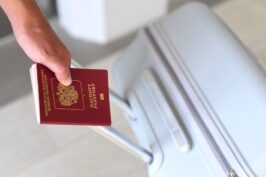
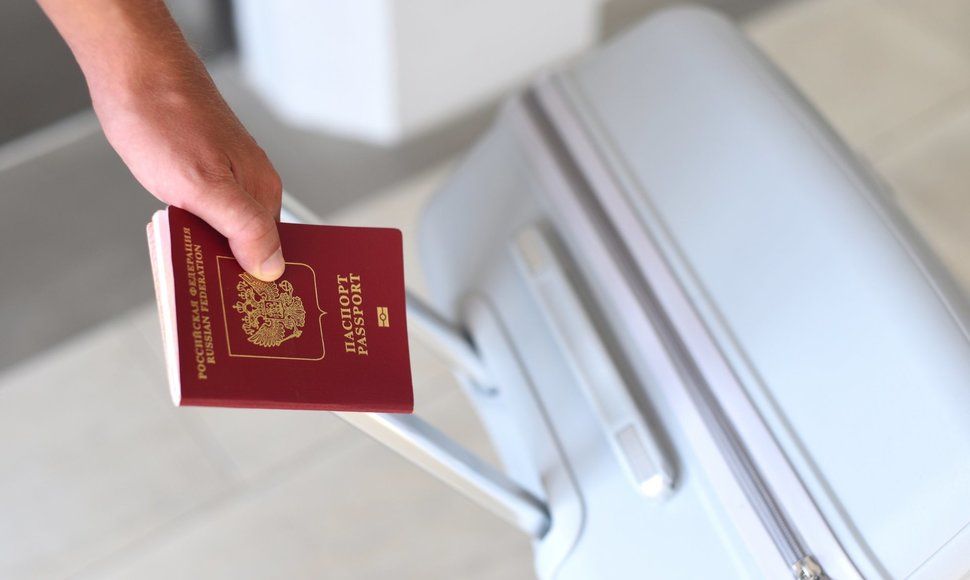
One of the major methods of acquiring Lithuanian citizenship for the Russian and Belarusian citizens is reinstatement of the Lithuanian citizenship, as well as granting the Lithuanian citizenship under a simplified procedure.
The Lithuanian citizenship may be restored to a person, whose ancestors (parents, grandparents, great-grandparents, or one of them) were citizens of Lithuania before 15 June 1940 or who himself was the Lithuanian citizen prior to 15 June 1940.
A person who held Lithuanian citizenship before 15 June 1940 shall mean a person who held citizenship of the Republic of Lithuania at any time prior to 15 June 1940. This concept does not embrace individuals who have lost Lithuanian citizenship after carrying out the mandatory procedures provided for in the laws of the Republic of Lithuania and for whom decisions on the loss of Lithuanian citizenship stipulated in the laws of the Republic of Lithuania have been adopted.
Documents proving that a person concerned held citizenship of the Republic of Lithuania before 15 June 1940 are the following:
- Internal or foreign passports of the Republic of Lithuania issued before 15 June 1940;
- Foreign passports of the Republic of Lithuania issued at diplomatic missions or consular posts of the Republic of Lithuania after 15 June 1940;
- Documents attesting to the person’s service in the Lithuanian Armed Forces or employment in the civil service;
- Birth certificates or other documents containing direct reference to citizenship of the Republic of Lithuania held by the person concerned;
- Personal certificates issued before 15 June 1940 in Lithuania or personal certificates issued on the basis of documents issued before 15 June 1940.
In the absence of above-mentioned documents, documents concerning studies, work, and life in Lithuania before 15 June 1940, as well as a passport of a foreign state and other documents may be provided.
Lithuanian citizenship may be reinstated for a person, if he renounces citizenship of another state, or without renunciation of it (dual or multiple citizenship). In order to reinstate citizenship of the Republic of Lithuania without renouncing the held citizenship of another state, it is not sufficient to prove the fact that a person held Lithuanian citizenship before 15 June 1940. For having Lithuanian citizenship and citizenship of other state at the same time and holding a dual (multiple) citizenship, a person concerned shall prove the following additional circumstances:
- The fact of exile from the occupied Lithuania before 11 March 1990;
A person exiled from the occupied Lithuania before 11 March 1990 shall mean a person who had Lithuanian citizenship before 15 June 1940 or his descendant (child, grandchild, great-grandchild) who were forcibly expelled from Lithuania by decisions of institutions or courts of occupation regimes in the period from 15 June 1940 to 11 March 1990 for reasons of resistance to occupation regimes, political or social reasons or reasons of origin;
or
- The fact of fleeing Lithuania before 11 March 1990;
A person who fled Lithuania before 11 March 1990 shall mean a person who had Lithuanian citizenship before 15 June 1940 or his descendant, who departed from the current territory of Lithuania prior to 11 March 1990 to permanently reside in another state, if their permanent residence on 11 March 1990 was outside Lithuania. The said concept does not include the persons who left the territory of Lithuania after 15 June 1940 and departed to the territory of the former Soviet Union.
The Lithuanian citizenship may be granted to a person under a simplified procedure, provided the person concerned proves that he is an individual of Lithuanian descent. In accordance with the provisions of Lithuanian legislation, a person of Lithuanian descent is an individual, whose parents, grandparents or one of them is or was Lithuanian (nationality, ethnicity), who considers himself Lithuanian and declares this in a written statement.
Lithuanian citizenship under a simplified procedure may be granted to a person of Lithuanian descent, who did not hold Lithuanian citizenship until now.
In the case of granting citizenship of the Republic of Lithuania as per simplified procedure, a person must renounce his present citizenship of a foreign state.
Lithuanian descent shall be certified by documents indicating that both or one of the parents or grandparents of a person is or was Lithuanian, as well as a person’s written statement whereby he declares that he considers himself Lithuanian.
Where the Citizenship Commission states that there is not sufficient documentary evidence of Lithuanian descent, such data may be established by court.
On 04 April 2023, the Seimas of the Republic of Lithuania has approved after consideration the draft law on the amendment of the Law on International Sanctions No XIVP-2493 and the accompanying draft law on imposing restrictive measures in connection with the military aggression against Ukraine No XIVP-2496(2) which aimed at protecting the Lithuania’s national security and foreign policy interests, after which the Restrictive measures for Russian and Belarusian citizens were imposed.
More information can be found here:
It should be noted that members of the Seimas decided that a possibility to obtain Lithuanian citizenship will not be restricted neither to Russian, nor to Belarusian nationals. Both Russian and Belarusian citizens shall enjoy the right to apply for the Lithuanian citizenship, their applications are being processed and decisions made.
Decisions regarding restoration of the Lithuanian citizenship are taken by the Minister of the Interior of the Republic of Lithuania. Decrees on the granting of Lithuanian citizenship under a simplified procedure are signed by the President of Lithuania. The orders of the Minister of the Interior of the Republic of Lithuania and the decrees of the President of Lithuania are published in the official Register of Legal Acts, by specifying the person’s name(s), surname(s), date of birth and the name of the country where the person was born. The Register of Legal Acts of Lithuania, wherein orders of the Minister of the Interior of the Republic of Lithuania, decrees of the President of Lithuania and other legal acts of Lithuania are published, can be found by clicking on the link below: www.e-tar.lt
MIGRATION LAW CENTER
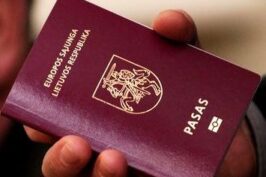
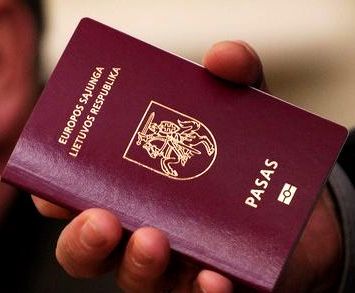
On 31 October 2017, a new resolution of the Supreme Administrative Court of Lithuania was adopted in the case of reinstatement of citizenship of Lithuania.
In the case, the applicant appealed against the order of the Minister of the Interior regarding a non-reinstatement of citizenship of Lithuania. The applicant has acquired the citizenship of another country and does not intend to renounce this citizenship. He may restore Lithuanian citizenship and have dual citizenship if he would meet the exception provided for in Subsection 7, Article 7 of the Law on Citizenship of the Republic of Lithuania – is a descendant of the person who departed from Lithuania before the restoration of independence of Lithuania on 11 March 1990. The applicant was a descendant of the person who departed from Lithuania during the World War II.
The applicant was born on 05 April 1937 not in Lithuania. His father was born on 01 January 1912 in Panevėžys and had citizenship of Lithuania. The father left Lithuania in 1935 and, in 1937, lost Lithuanian citizenship because he had voluntarily acquired the citizenship of another state. Already being a citizen of another country, he arrived in Lithuania without obstacles in 1938 and lived here until the occupation of the Soviet Union in 1941.
The applicant’s father’s departure during the World War II in 1941 may already have been influenced by political reasons. However, the father at that time was no longer a citizen of Lithuania, and the acquisition of the citizenship of another country was in 1937 due to his previous actions, not related to the political situation or the occupation regime.
The concept is entrenched in the case-law that a person who departed from Lithuania until 11 March 1990 shall be considered as a person who had Lithuanian citizenship until 15 June 1940, or as his descendant, or as persons departed from the current territory of Lithuania before 11 March 1990 to permanently live in other country, if their permanent place of residence was not in Lithuania. This concept does not embrace persons who departed from the territory of Lithuania to the former territory of Soviet Union after 15 June 1940.
On the basis of explanation of legal norms, to apply for the restoration of citizenship of Lithuania, together retaining the current citizenship of another state, can only these persons, who:
- Had citizenship of Lithuania on 15 June 1940, and the descendants of such persons.
Due to these reasons, the defendant in the case challenged the applicant’s compliance with the provisions of Section 4, Part 1, Article 7 of the Law on Citizenship of the Republic of Lithuania, and stated that they cannot be applied to the applicant as a citizen of Lithuania, who departed from Lithuania before 11 March 1990, because the departure of his father from Lithuania in 1941 does not comply with the purpose of legal regulation established by the law.
In the case-law, when applying provisions of dual citizenship exceptions, a period of Lithuanian citizenship is not defined by the date 15 June 1940 inclusive, but it is important that:
- The departure of a person from the territory of Lithuania should have been influenced by emerging or already existing unfavorable political reasons;
- At the time of departure, such person should have been Lithuanian citizen or had lost Lithuanian citizenship until 15 June 1940, not due to his volitional actions, but due to unfavorable political reasons.
Even though in the case the departure of the applicant’s father from Lithuania in 1941 could be influenced by political reasons, the Court accentuated that at that moment he was no longer a citizen of Lithuania and acquired a citizenship of other state voluntarily by previous actions, thus, he does not comply with the departure of Lithuanian citizen from Lithuania defined by law until 11 March 1990. Due to this reason, provisions of Section 4, Part 1, Article 7 of the Republic of Lithuania Law on Citizenship cannot be applied to him, regarding the exception to acquire dual citizenship as a descendant of the person who departed from Lithuania before the restoration of independence on 11 March 1990.
Therefore, the Supreme Administrative Court of Lithuania has stated in the Resolution that only those persons can apply for the restoration of citizenship of Lithuania, together retaining the current citizenship of another state, who had citizenship of Lithuania until the occupation by the former Soviet Union in 15 June 1940, and the descendants of such persons.
MIGRATION LAW CENTER
